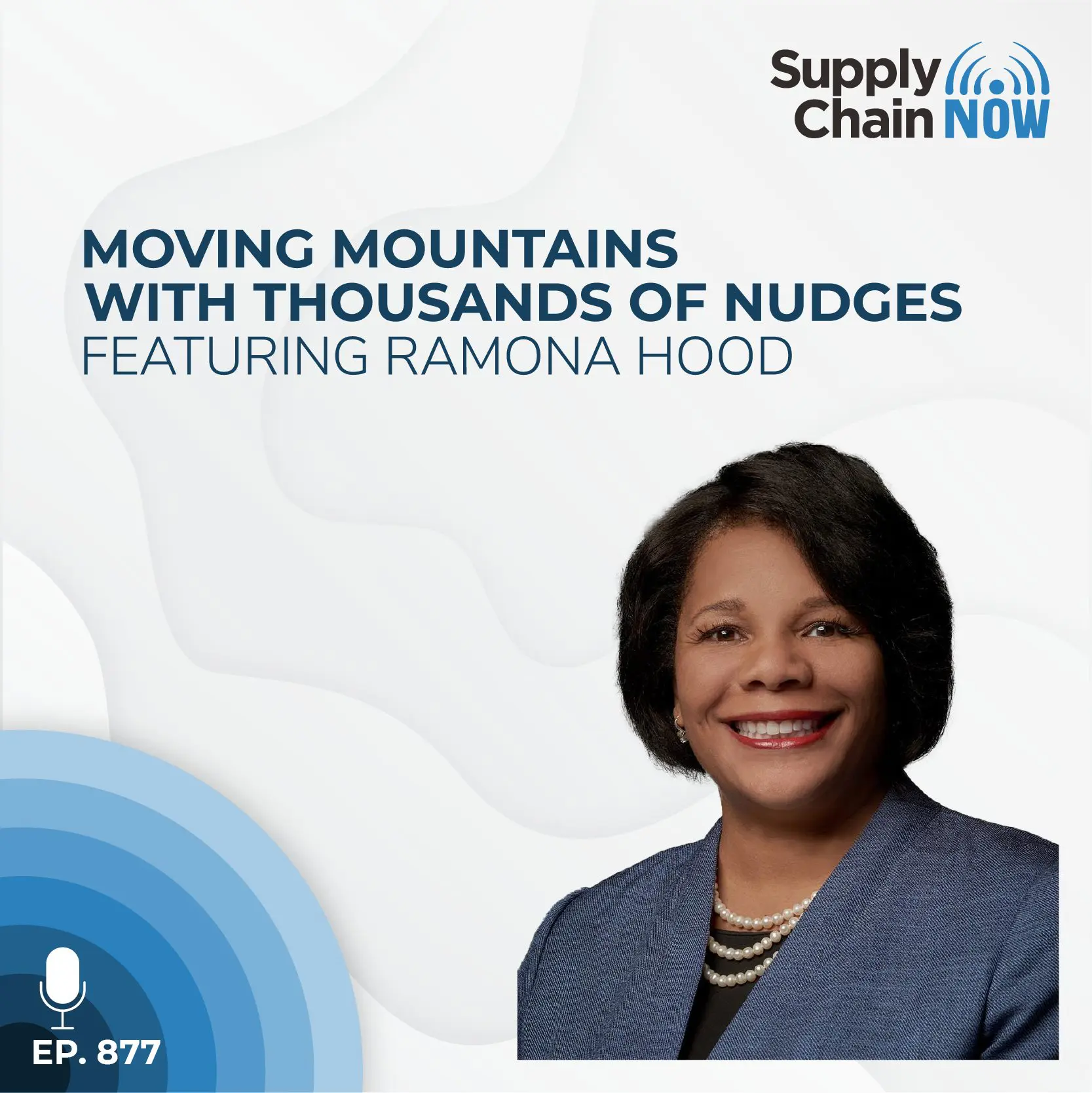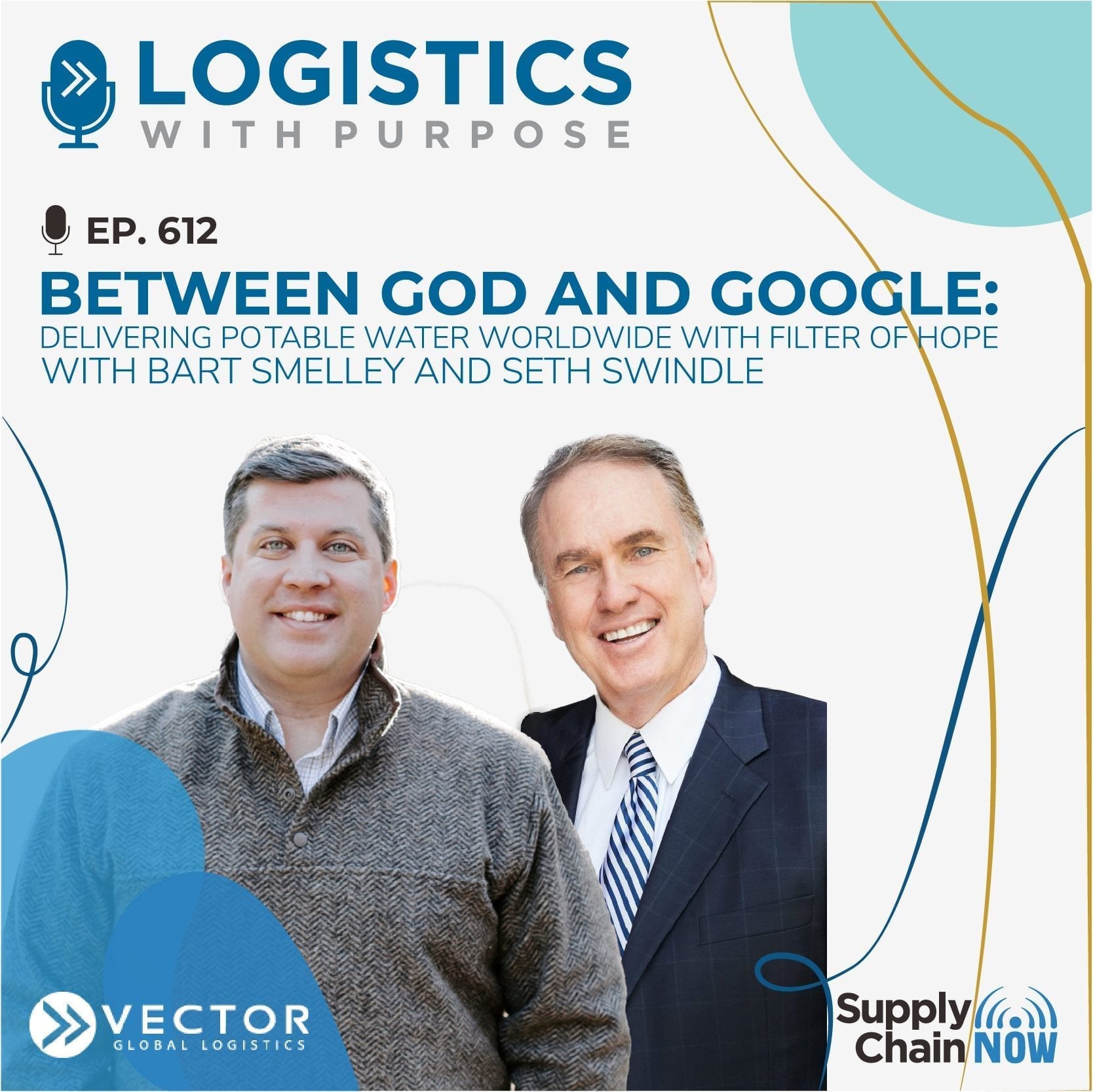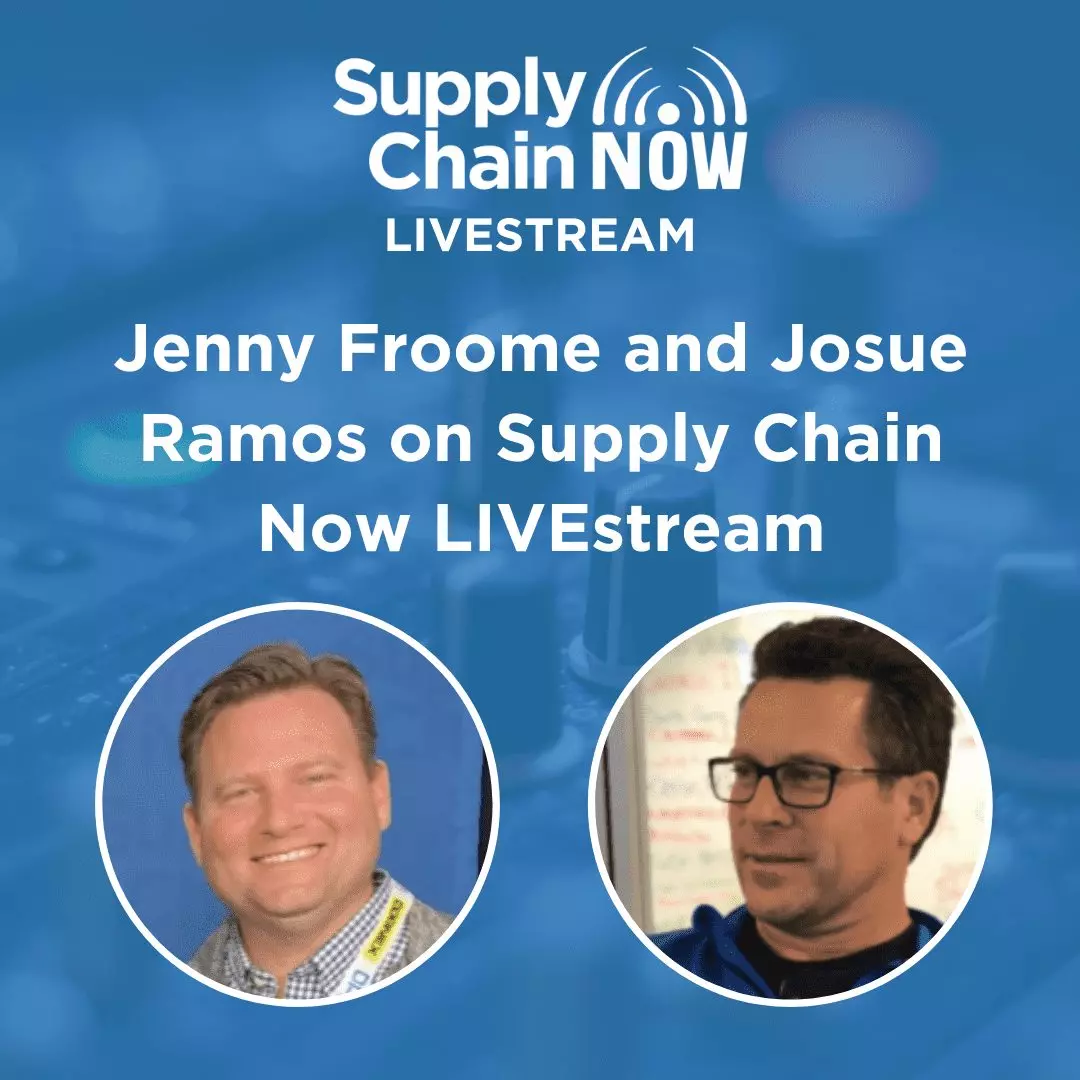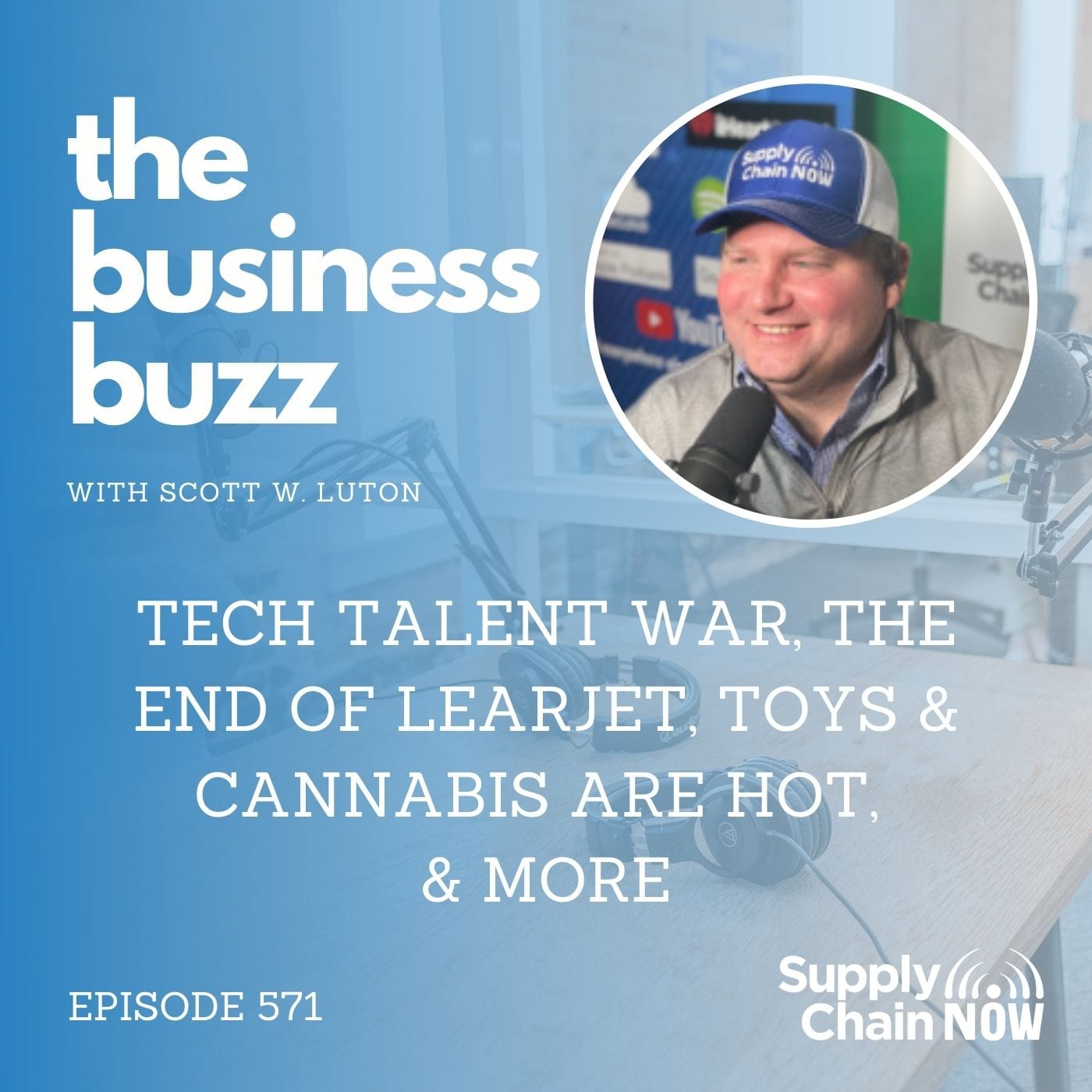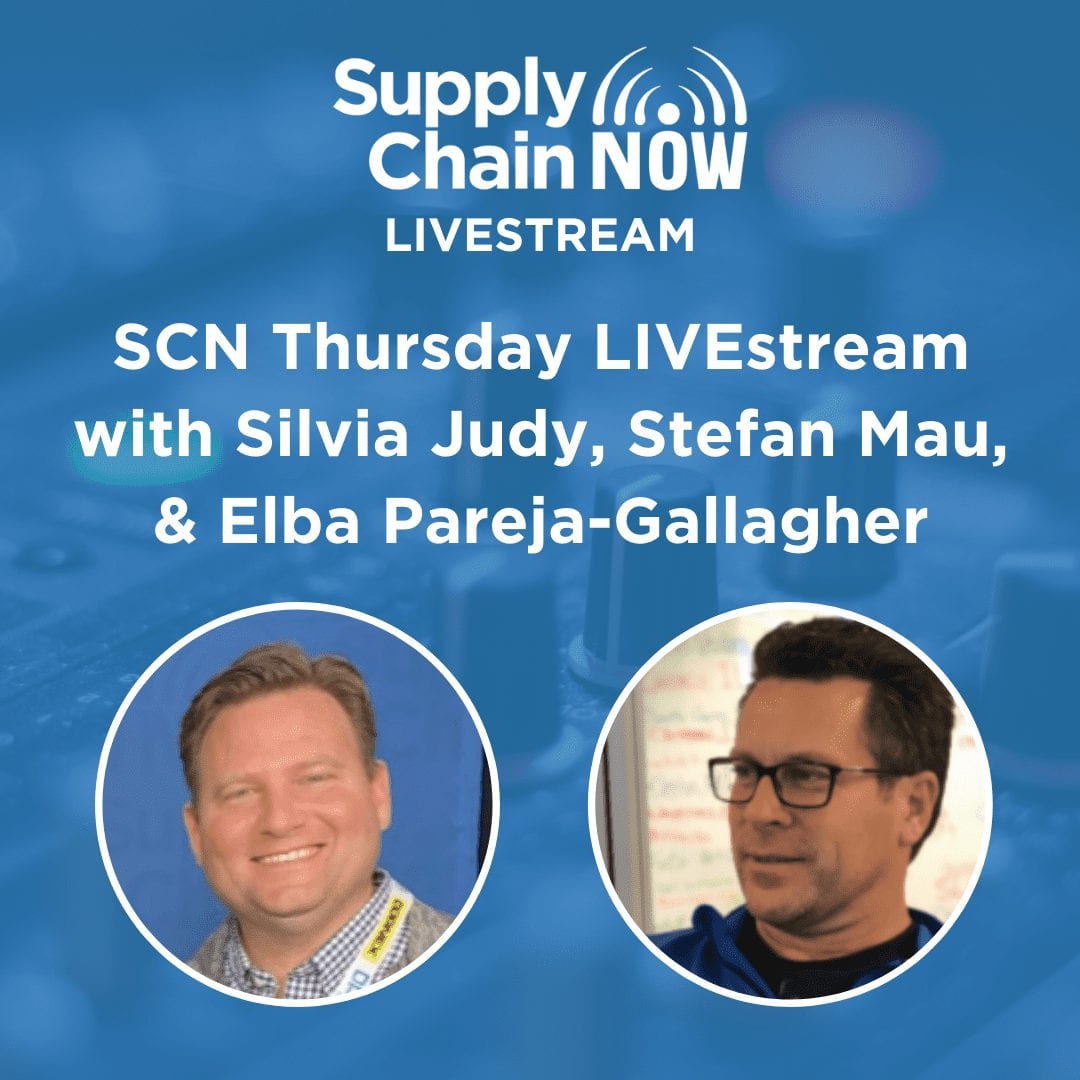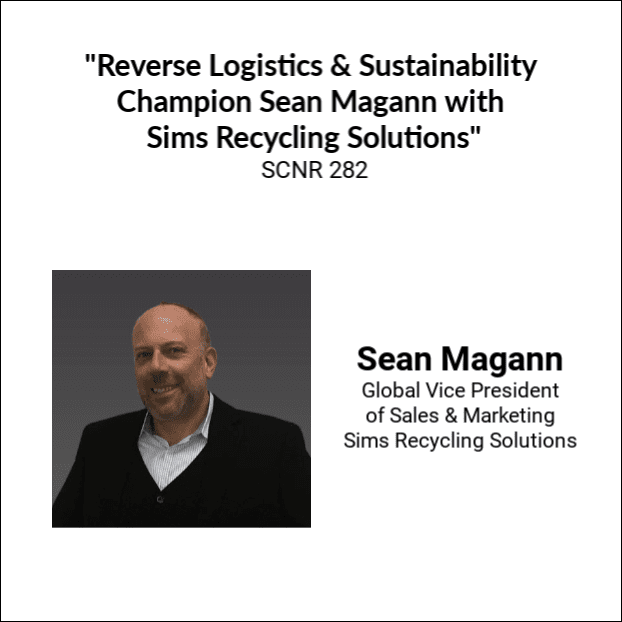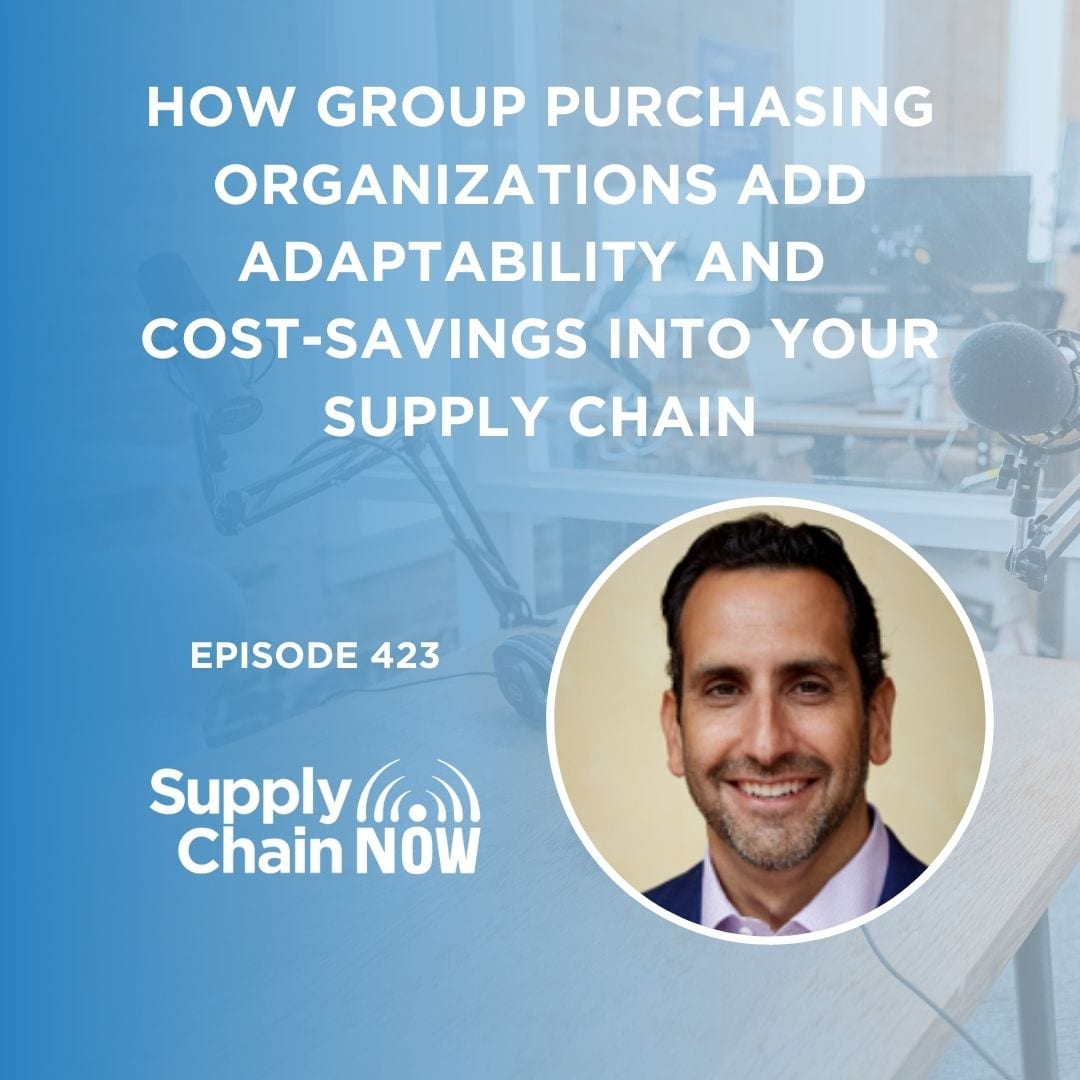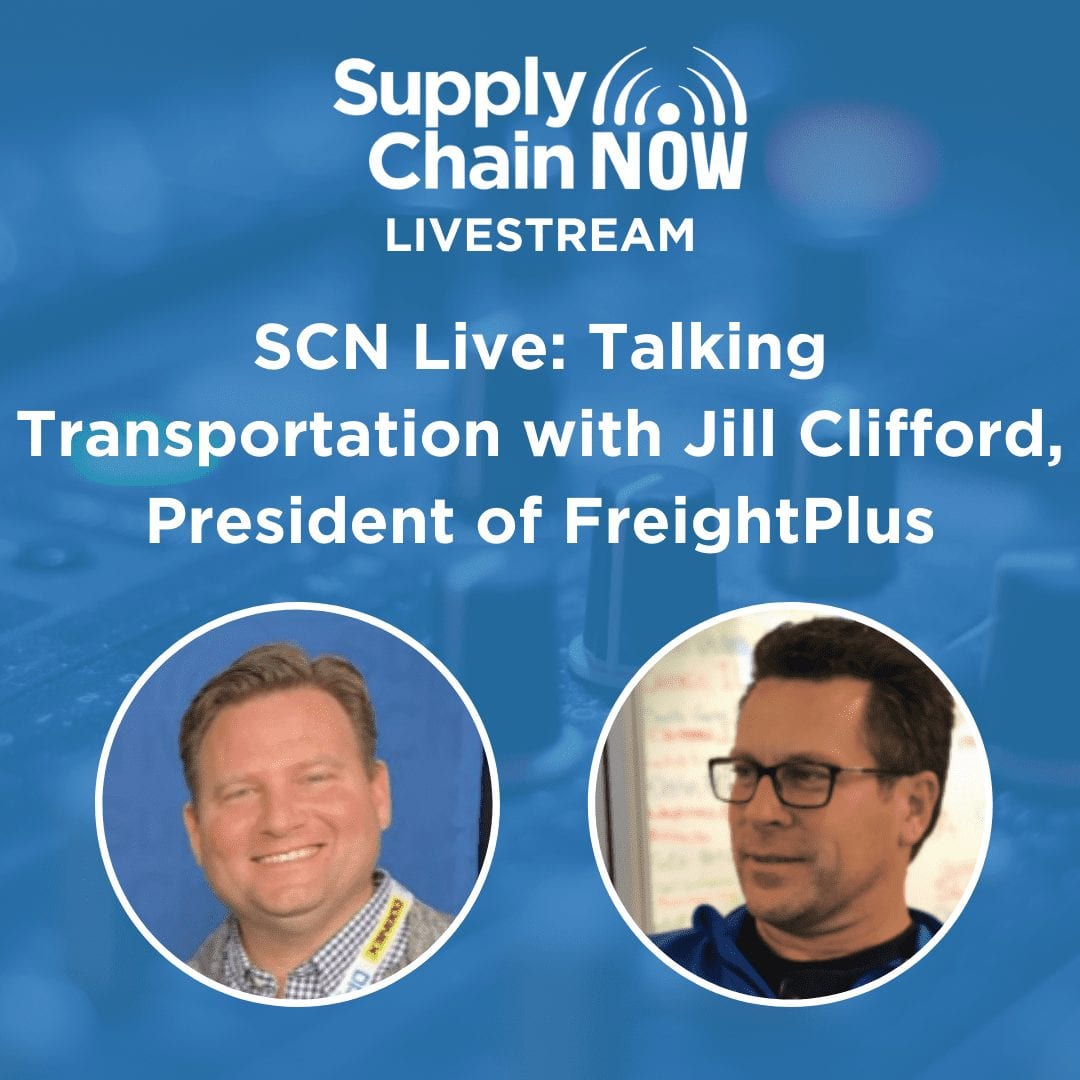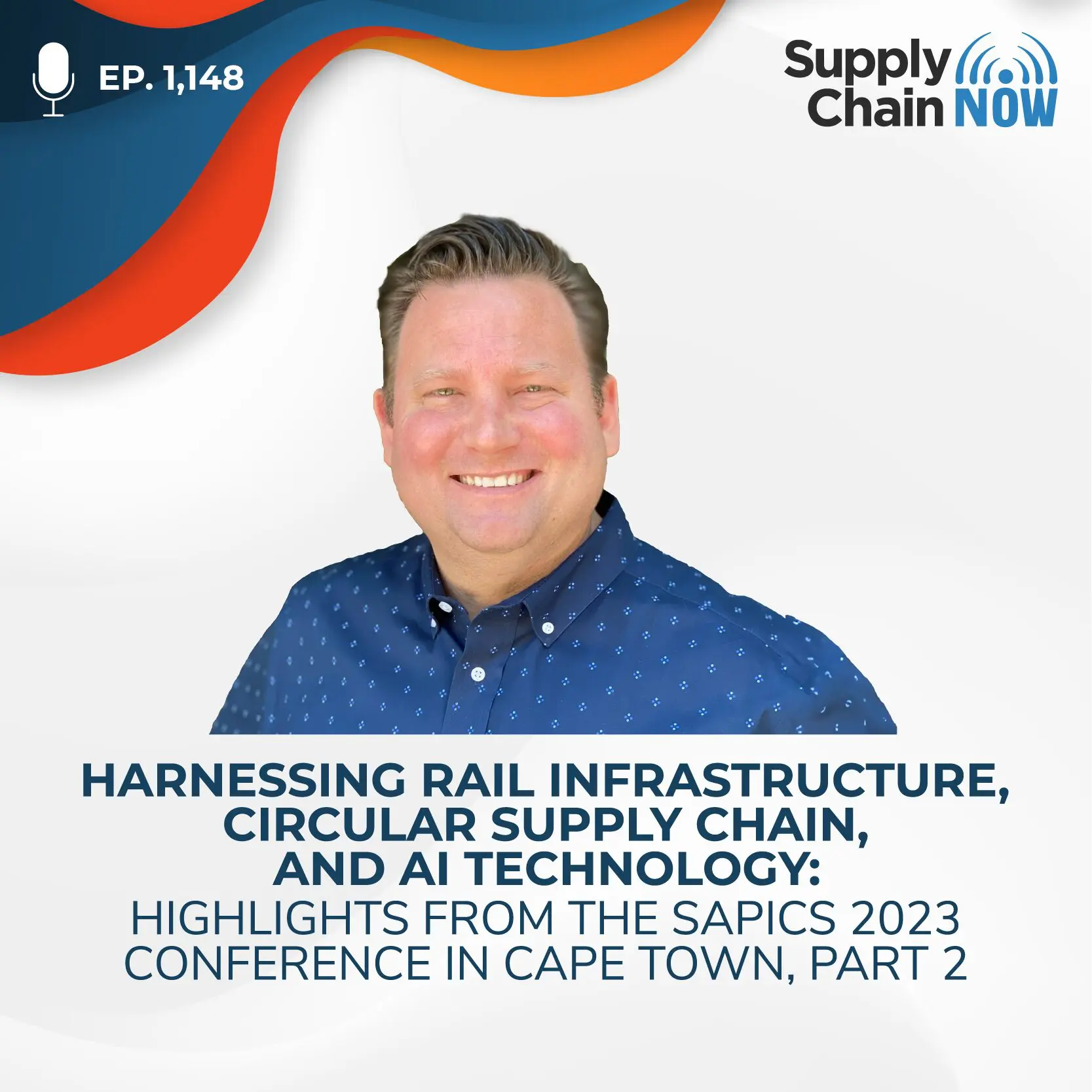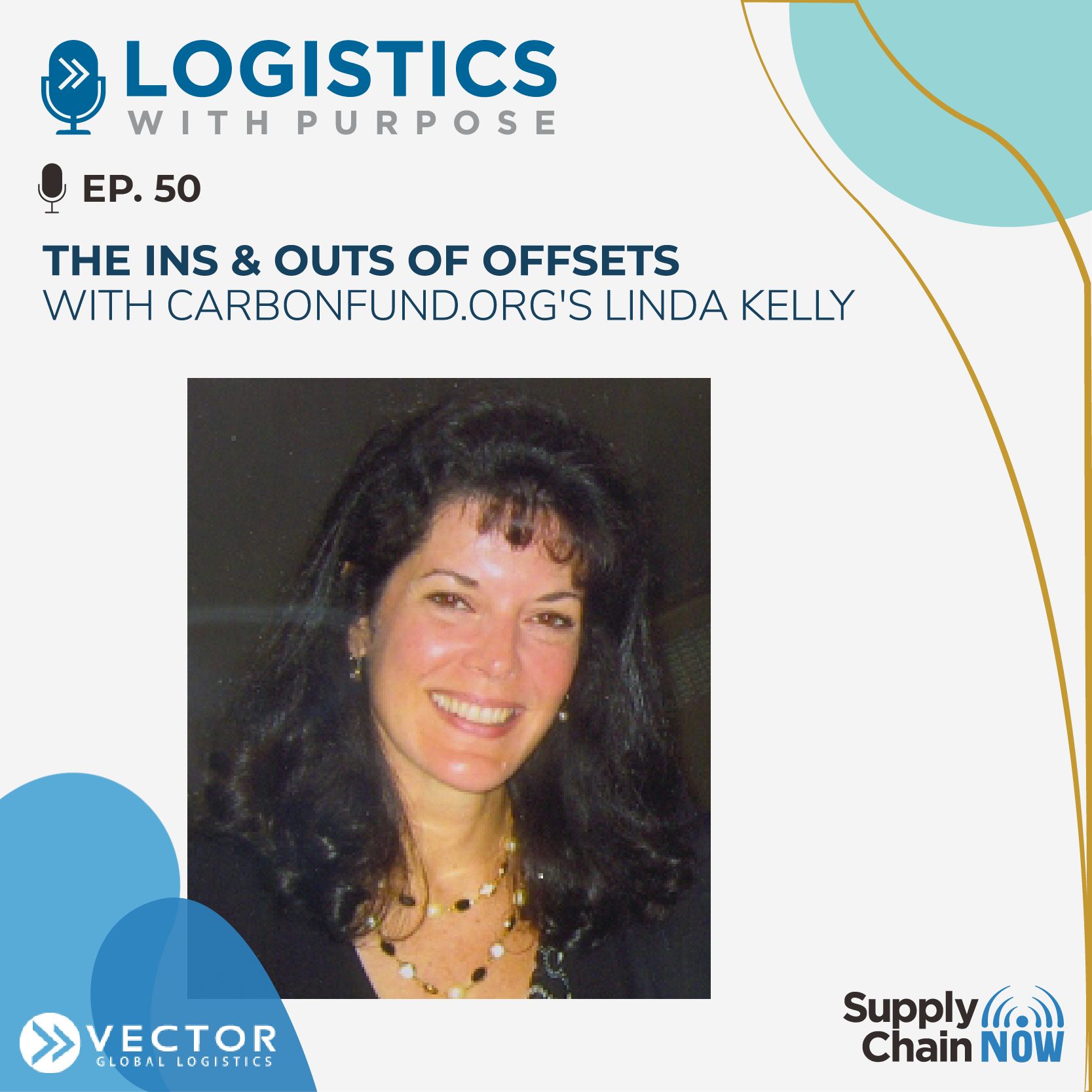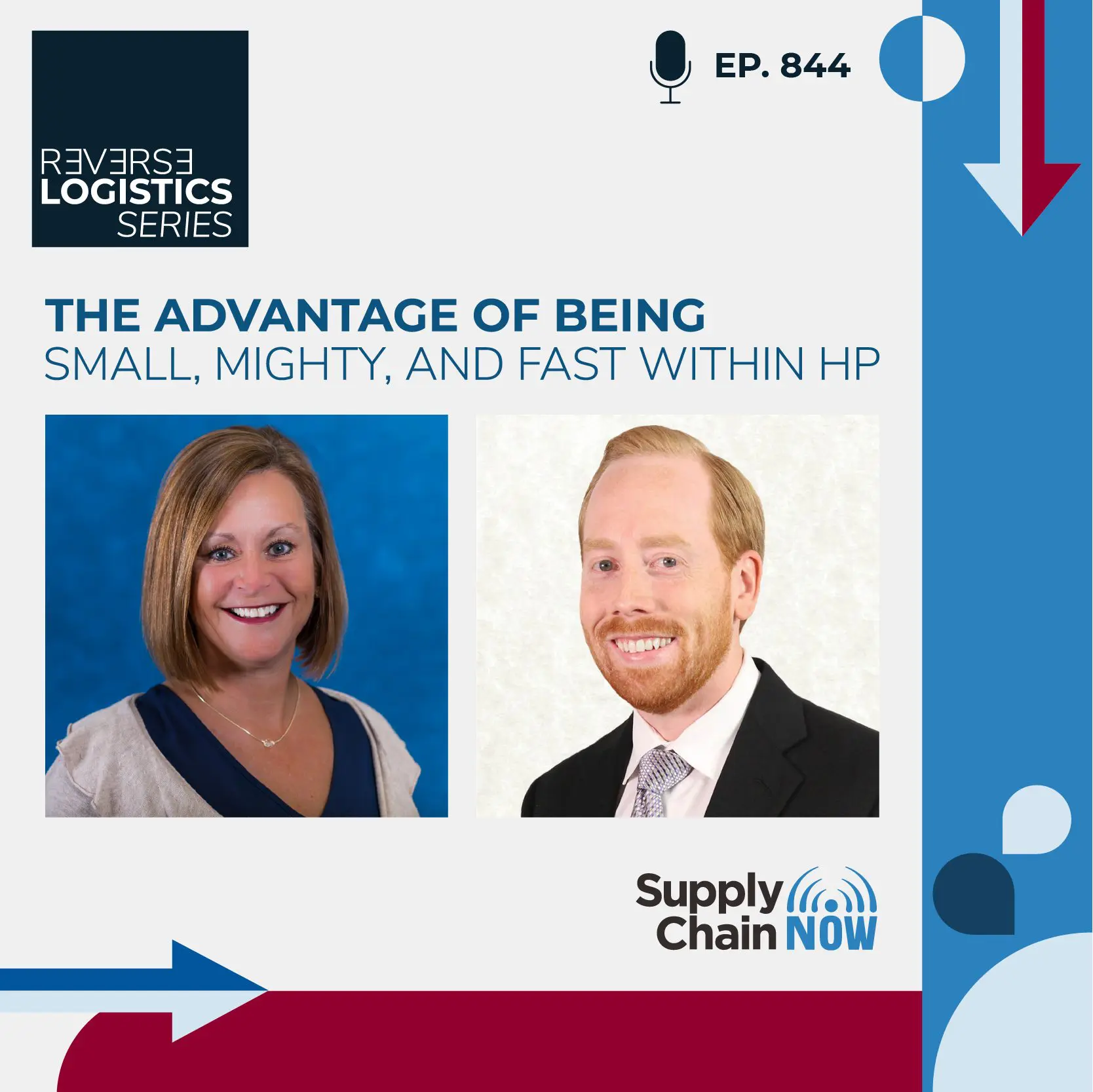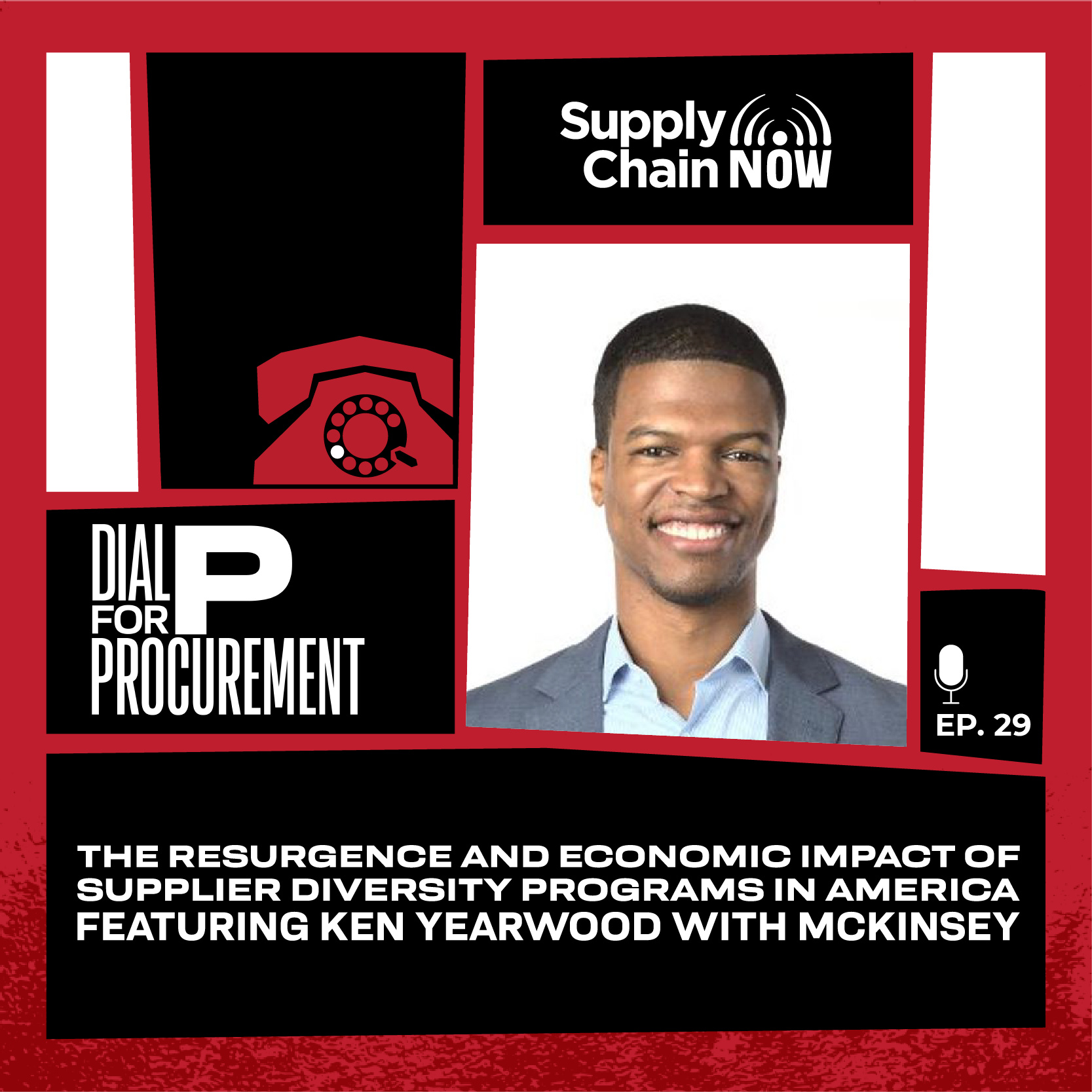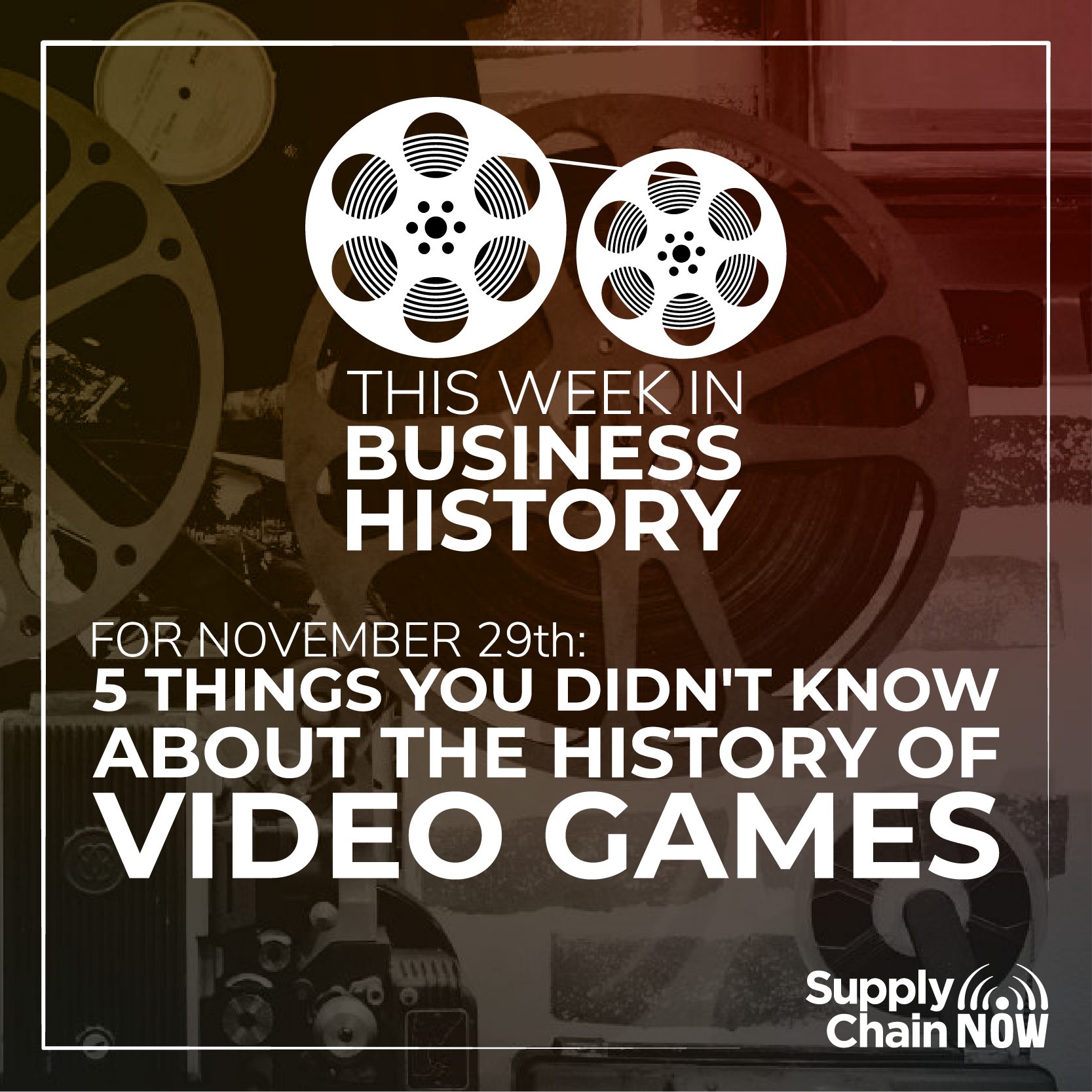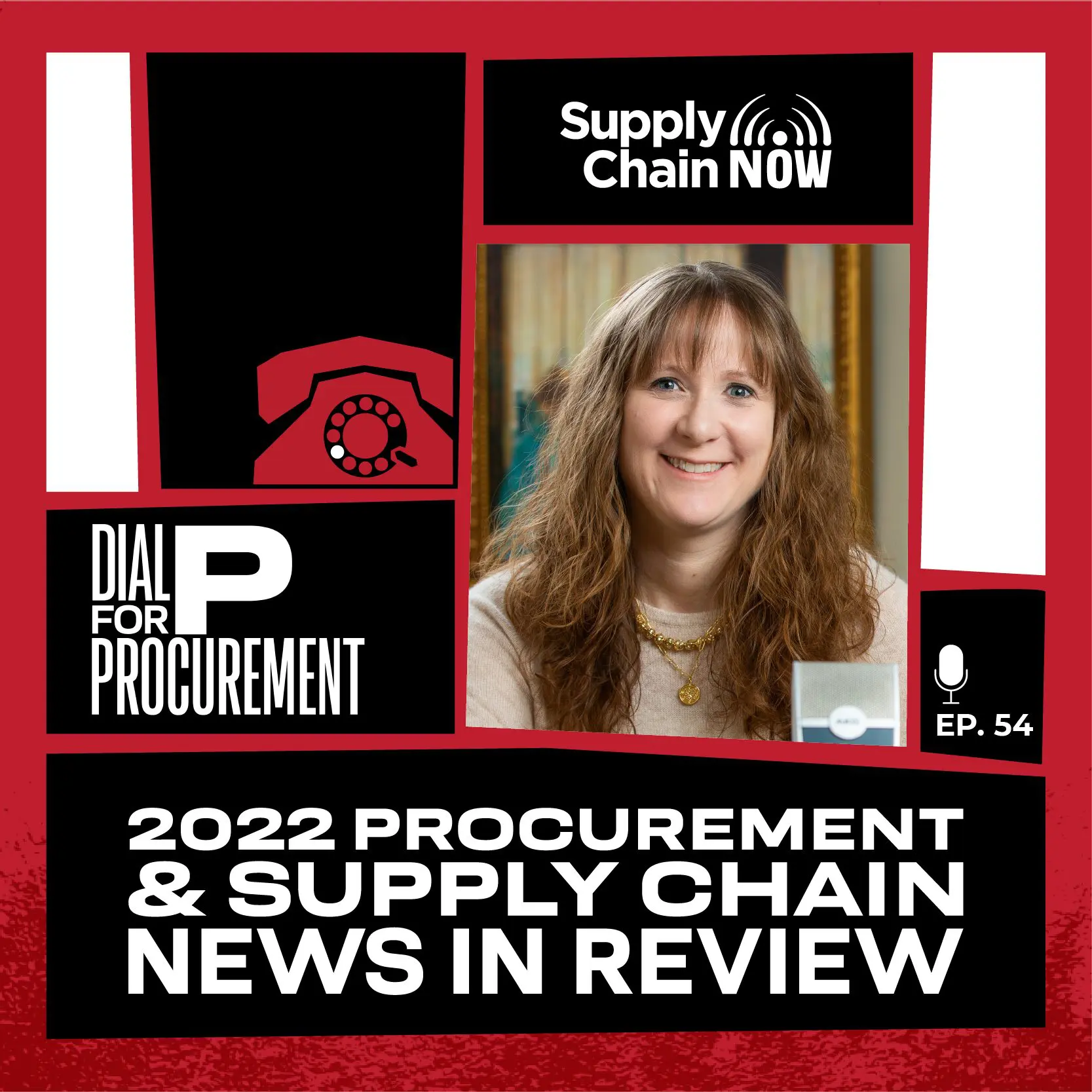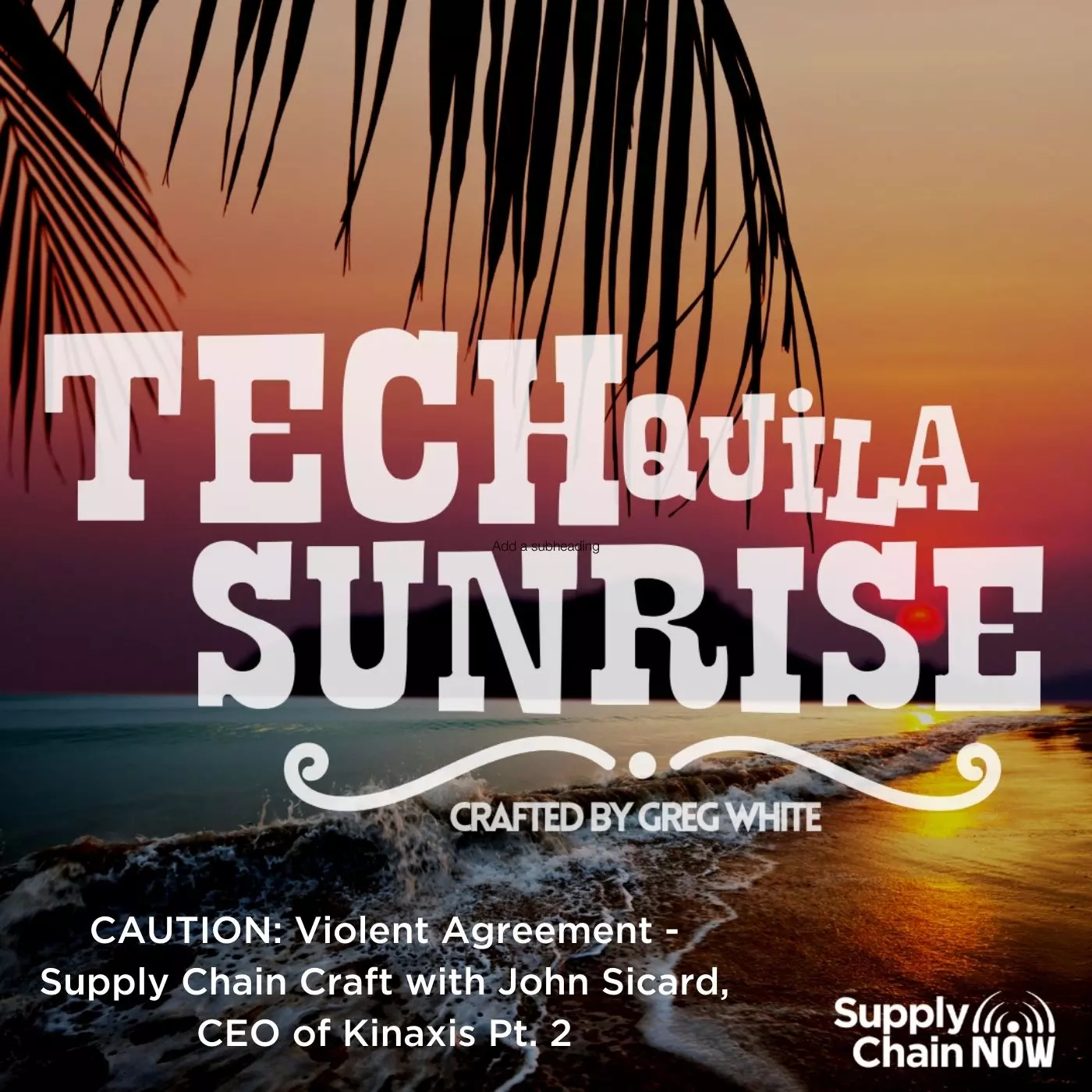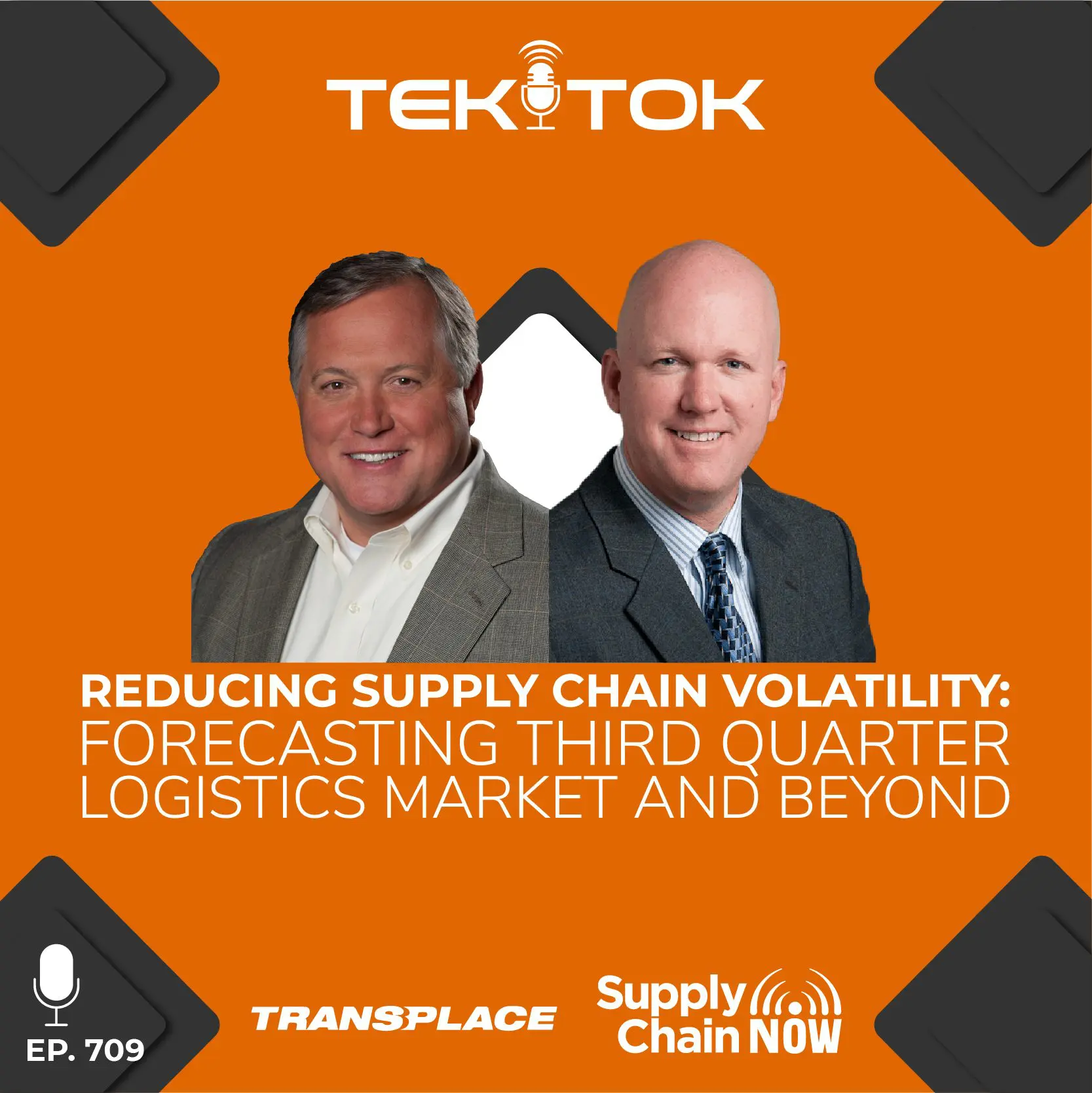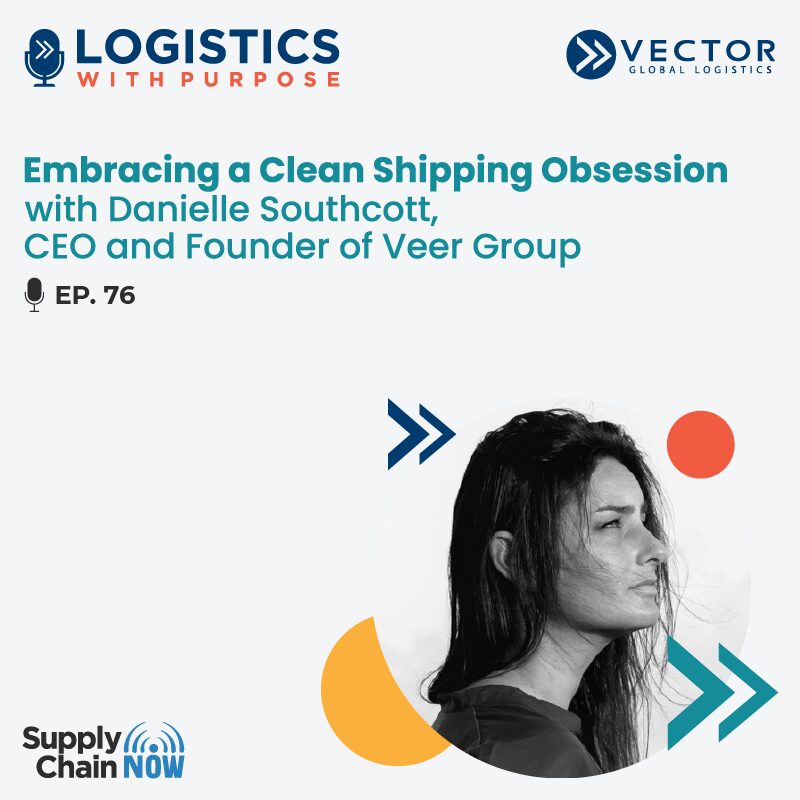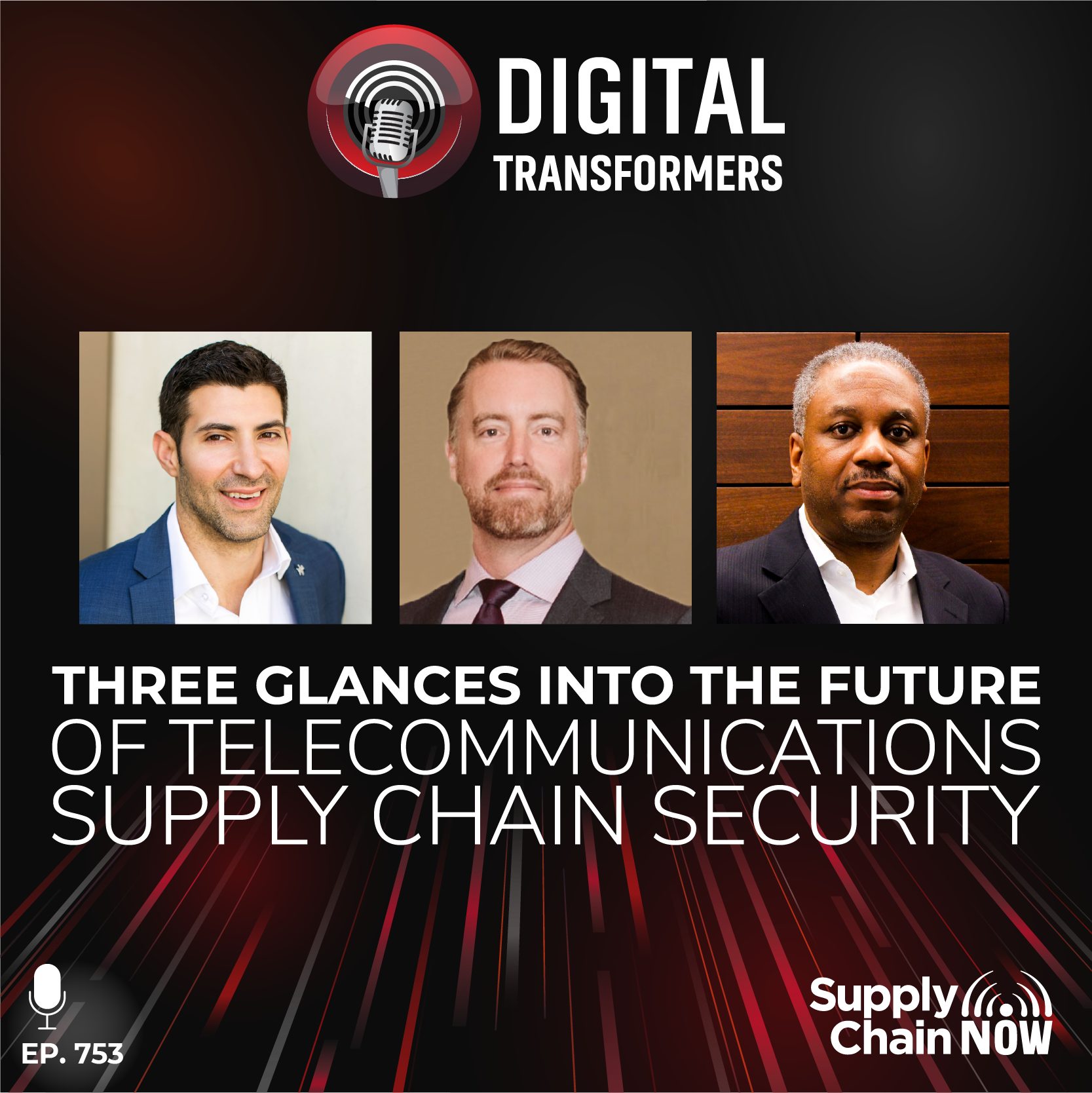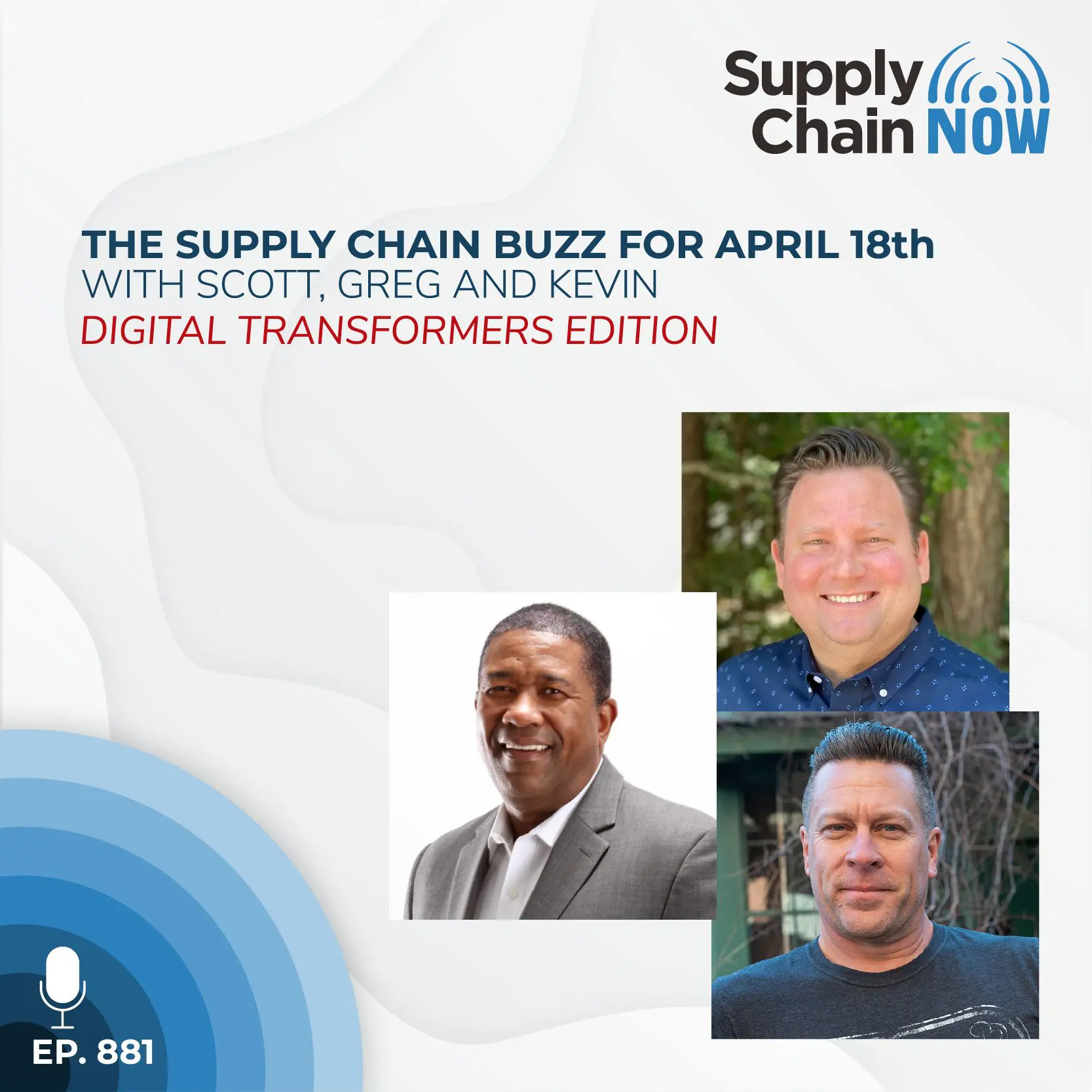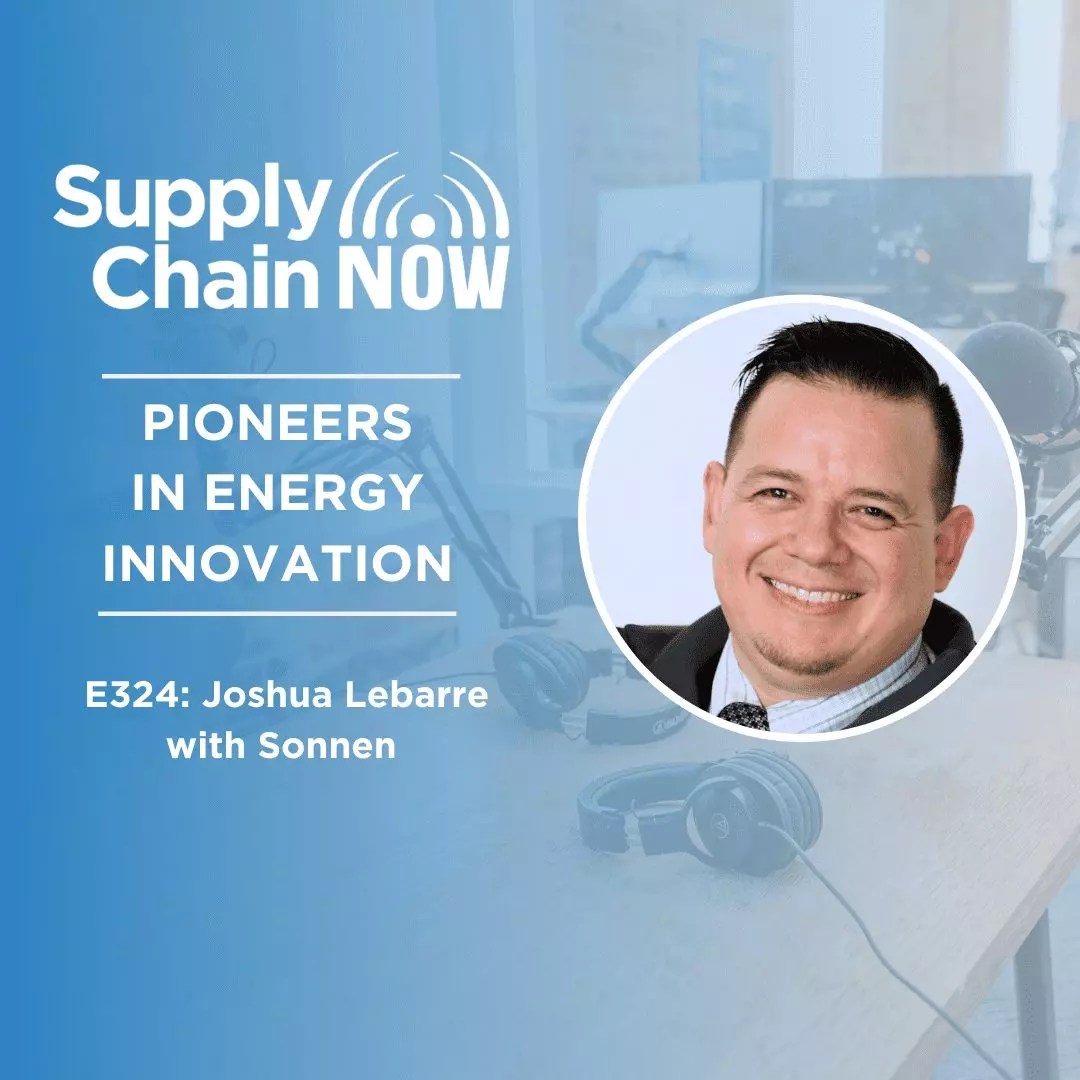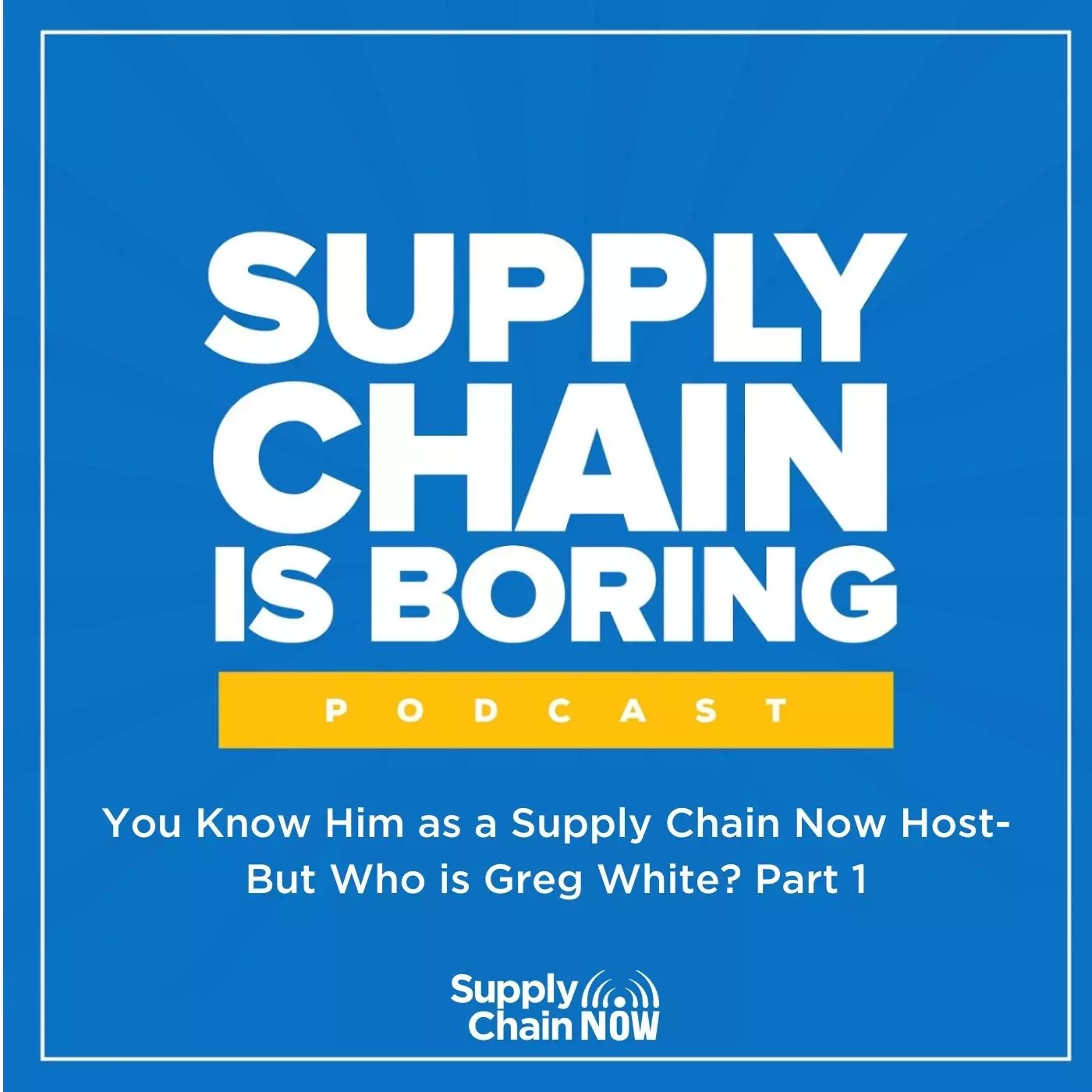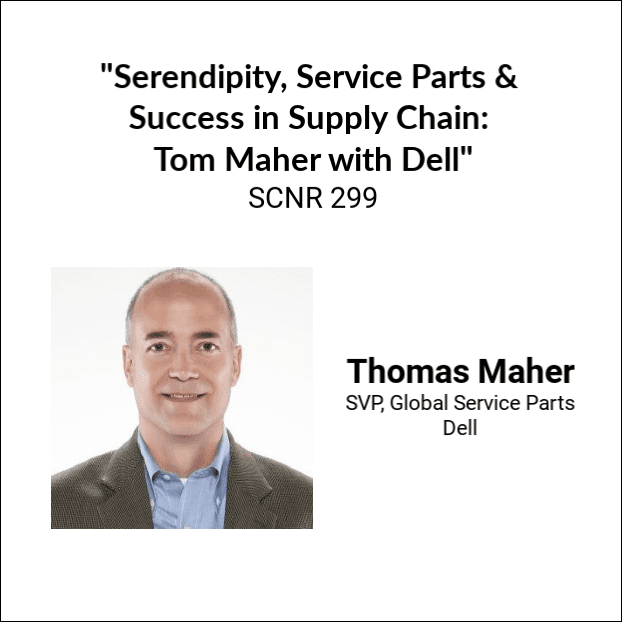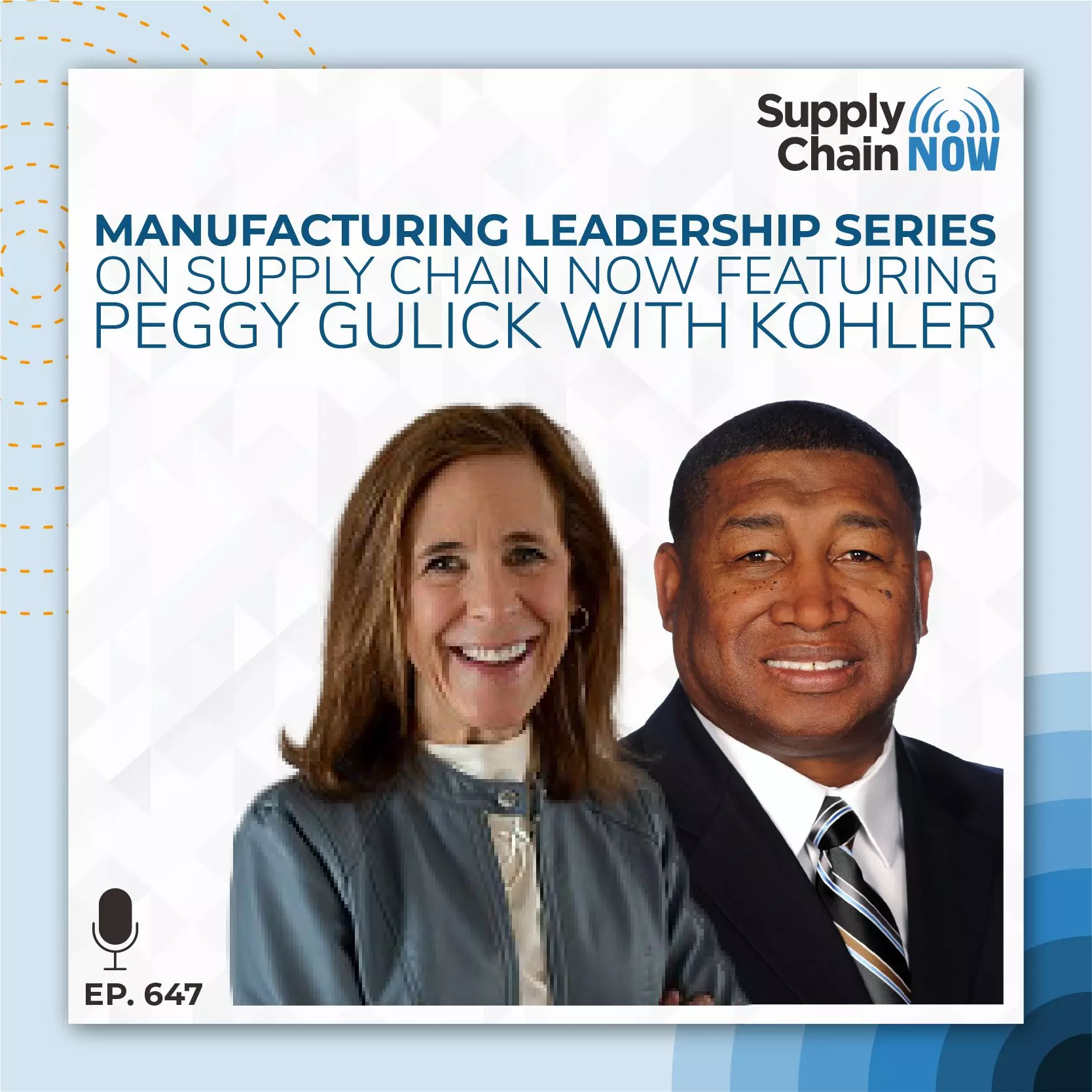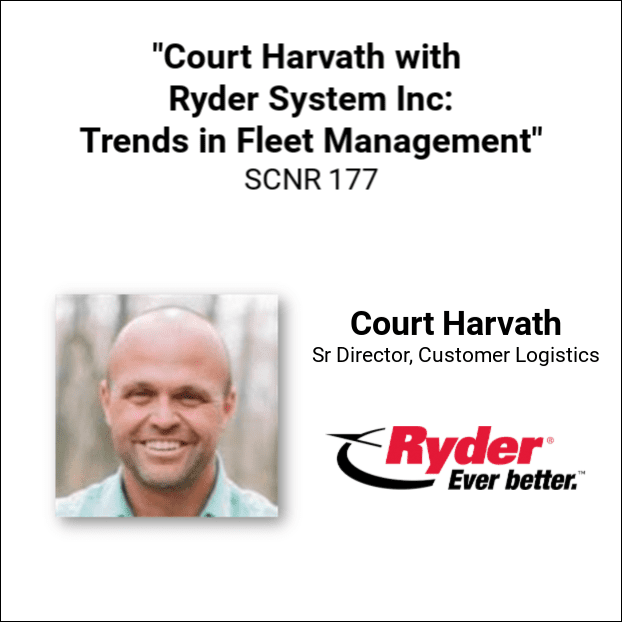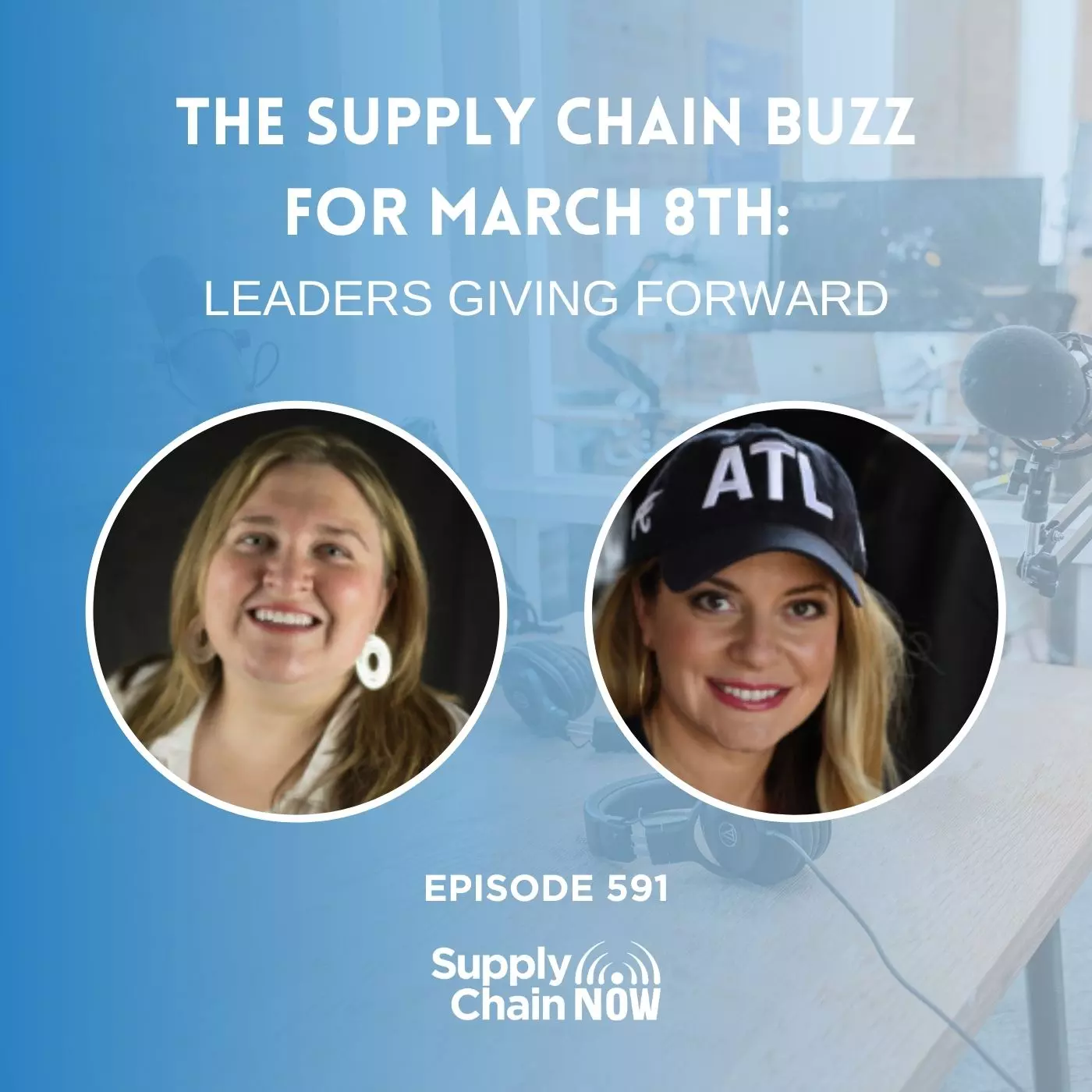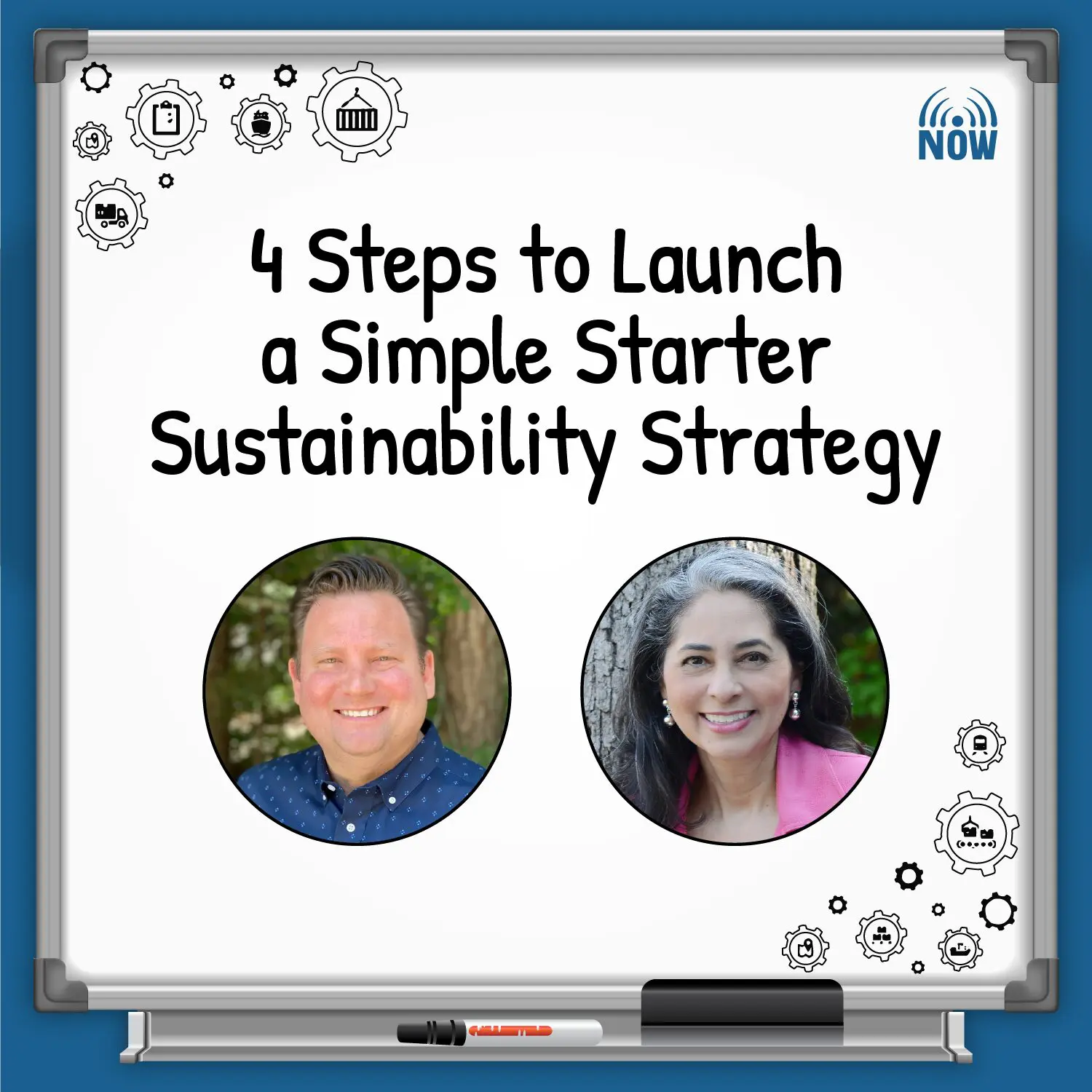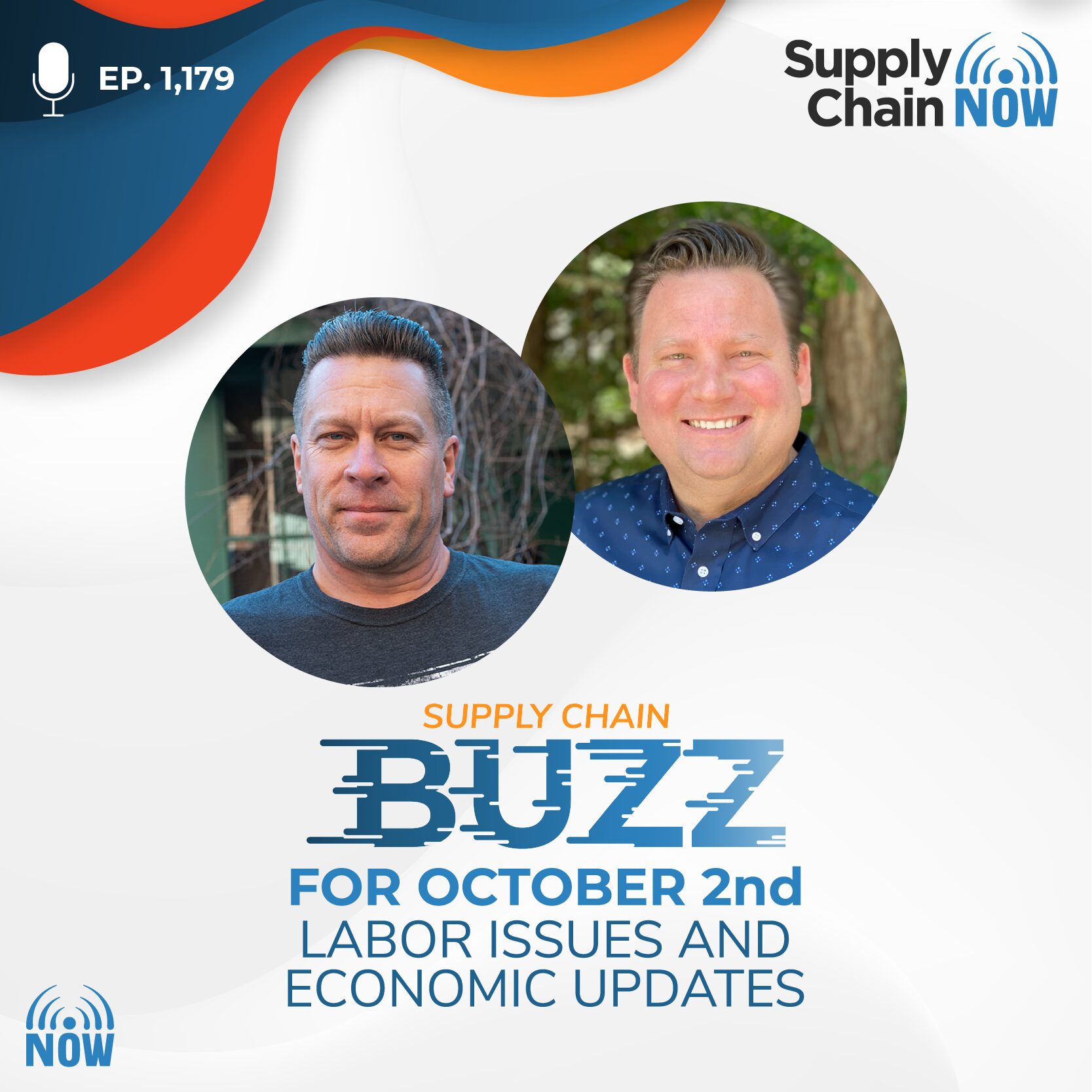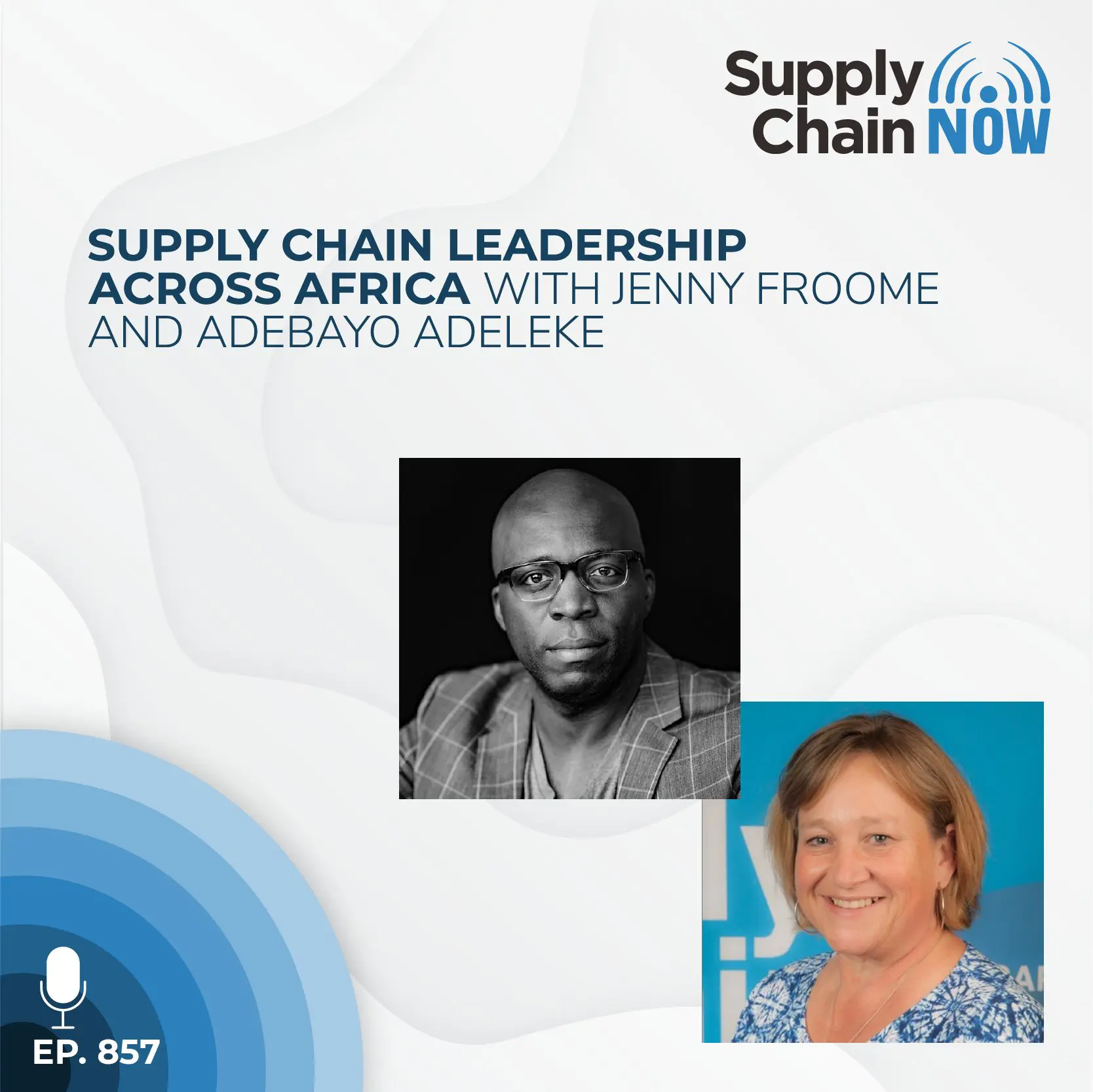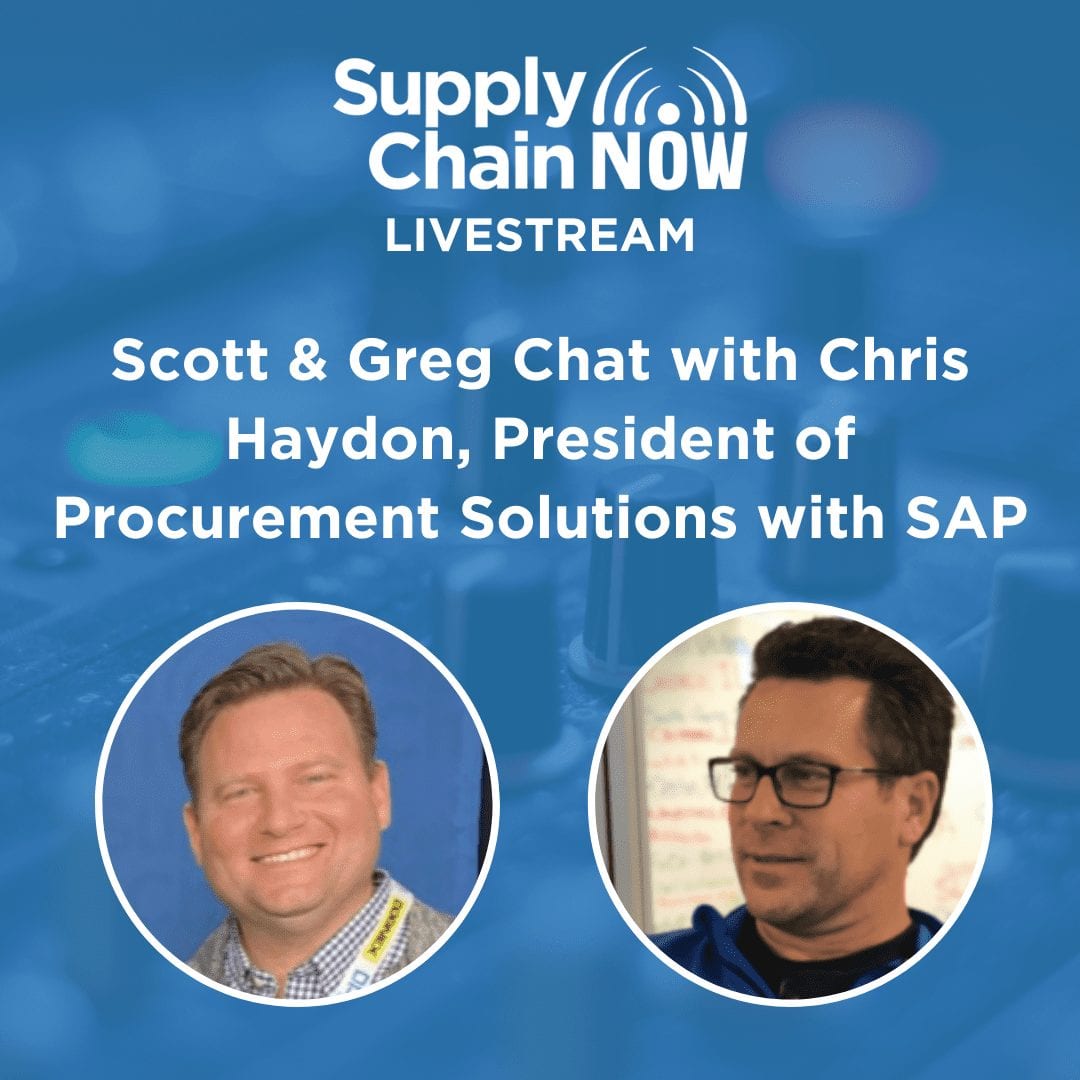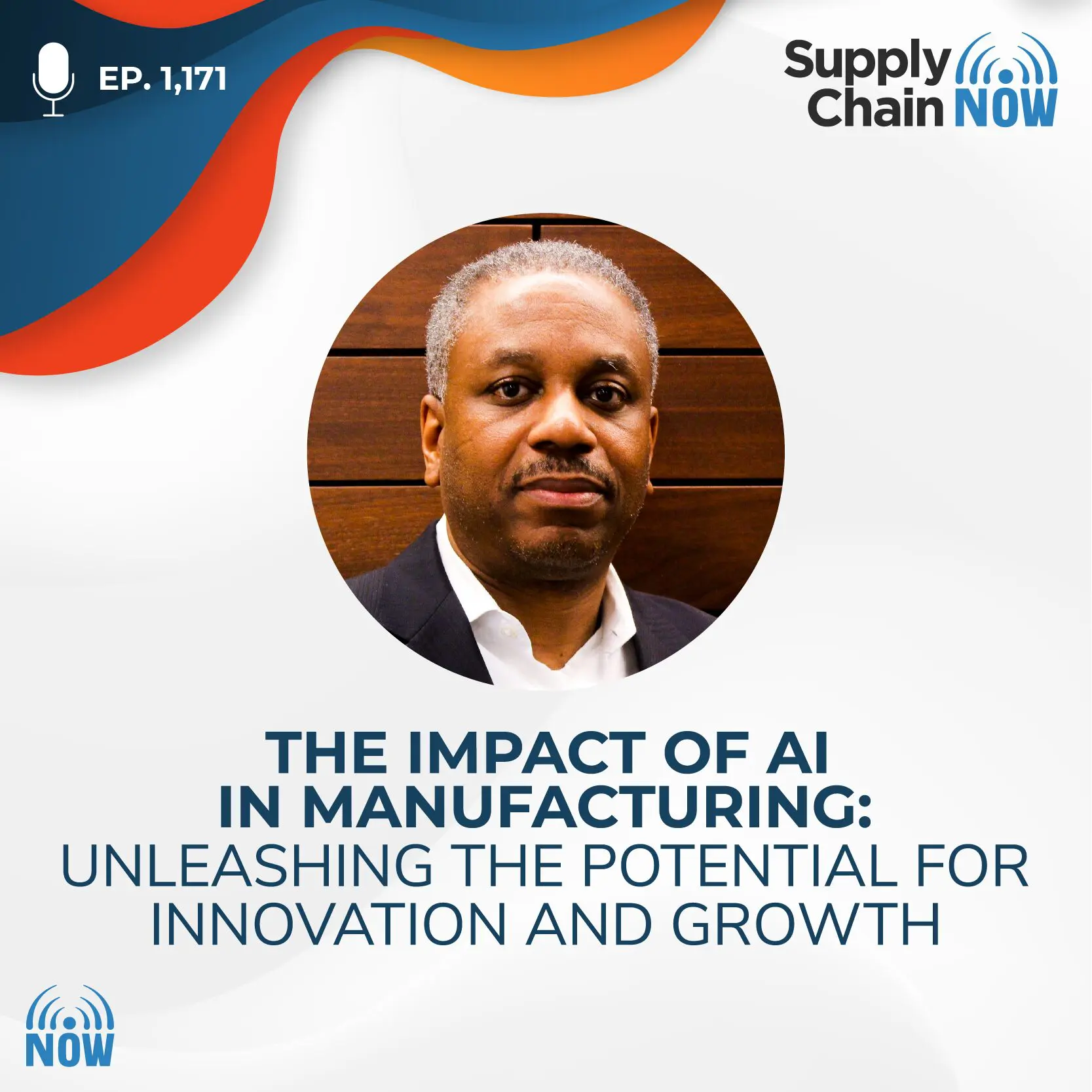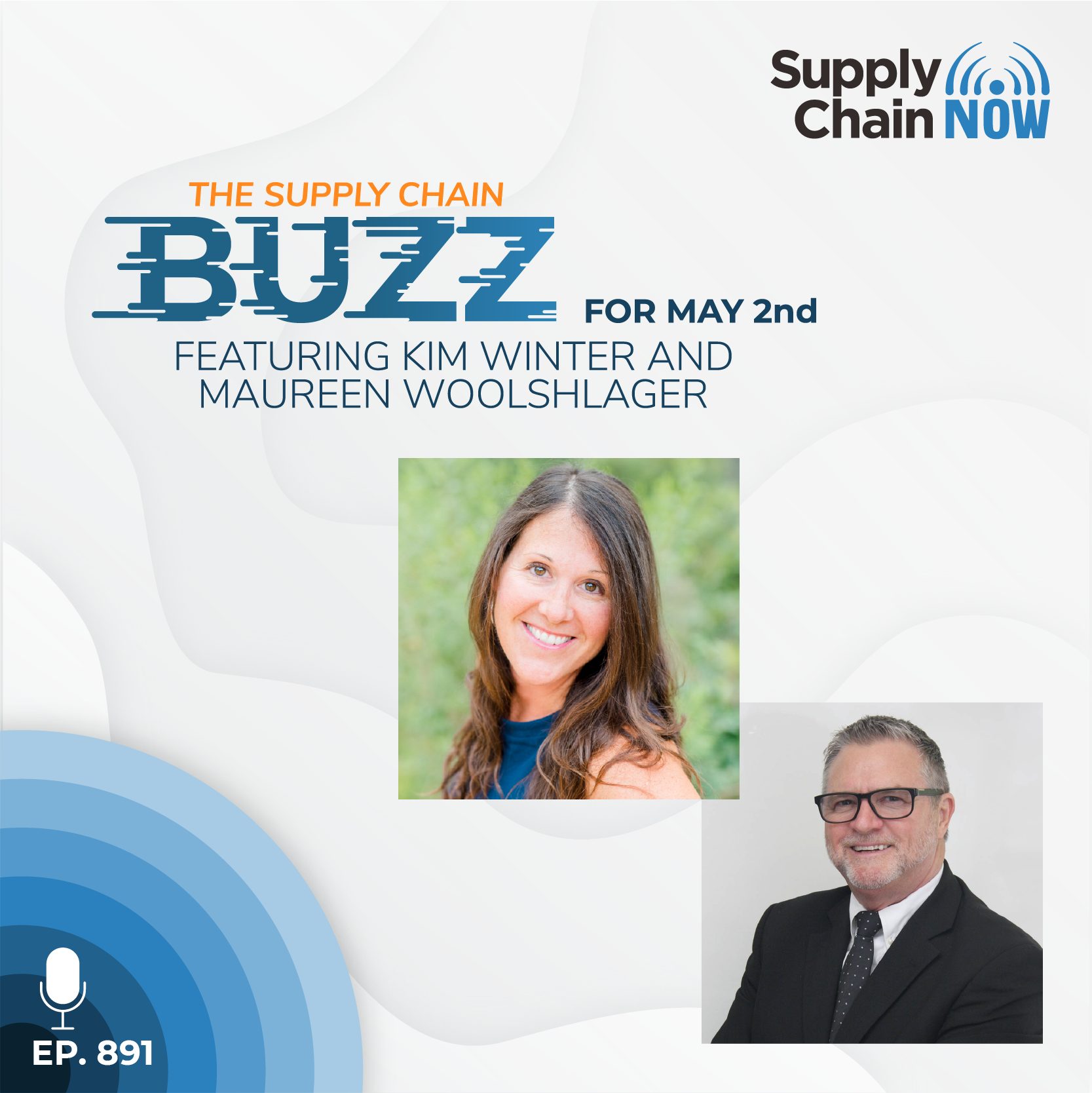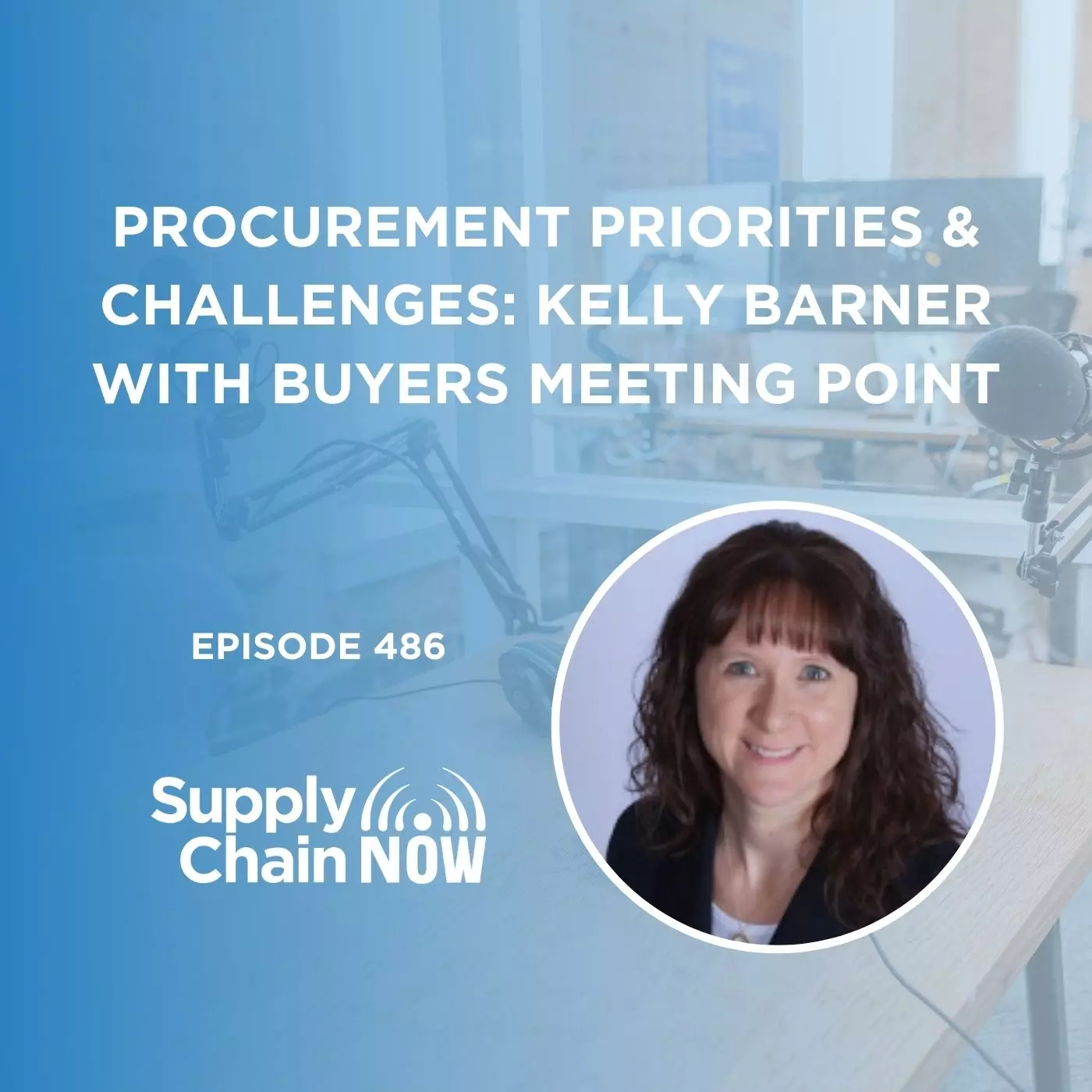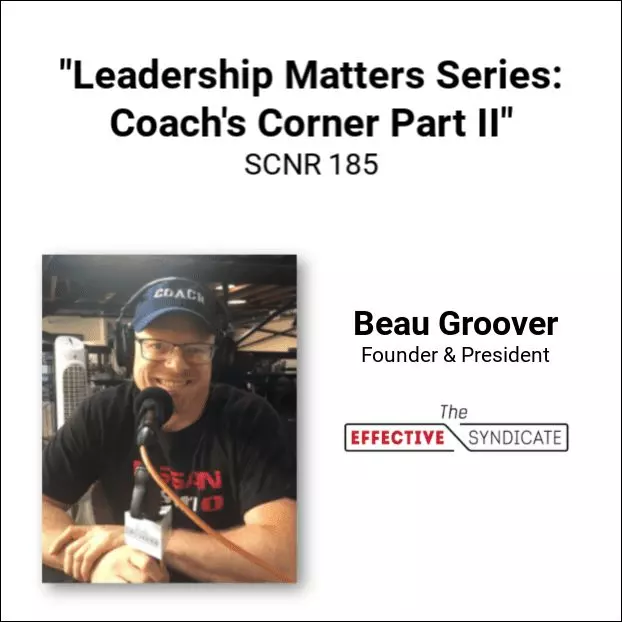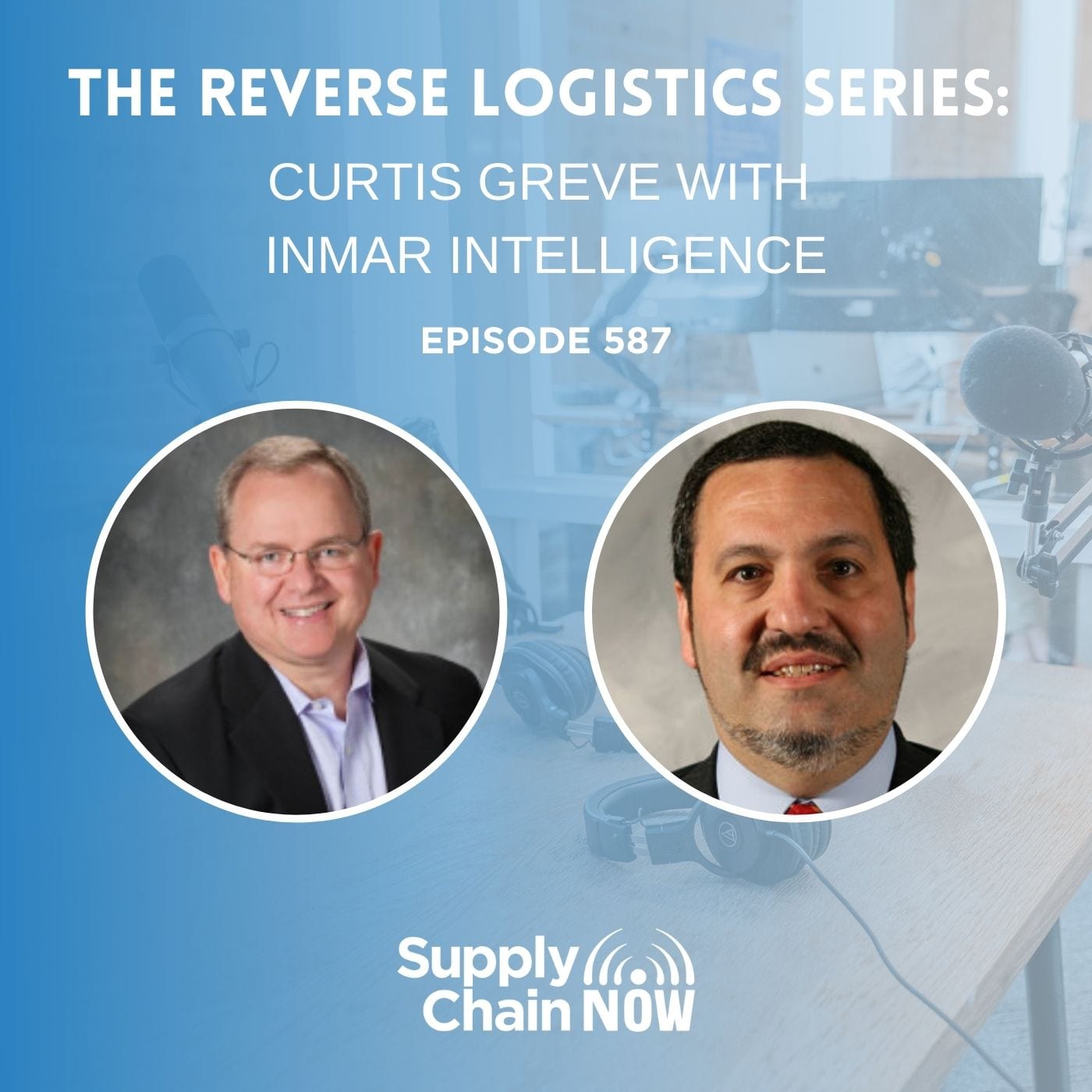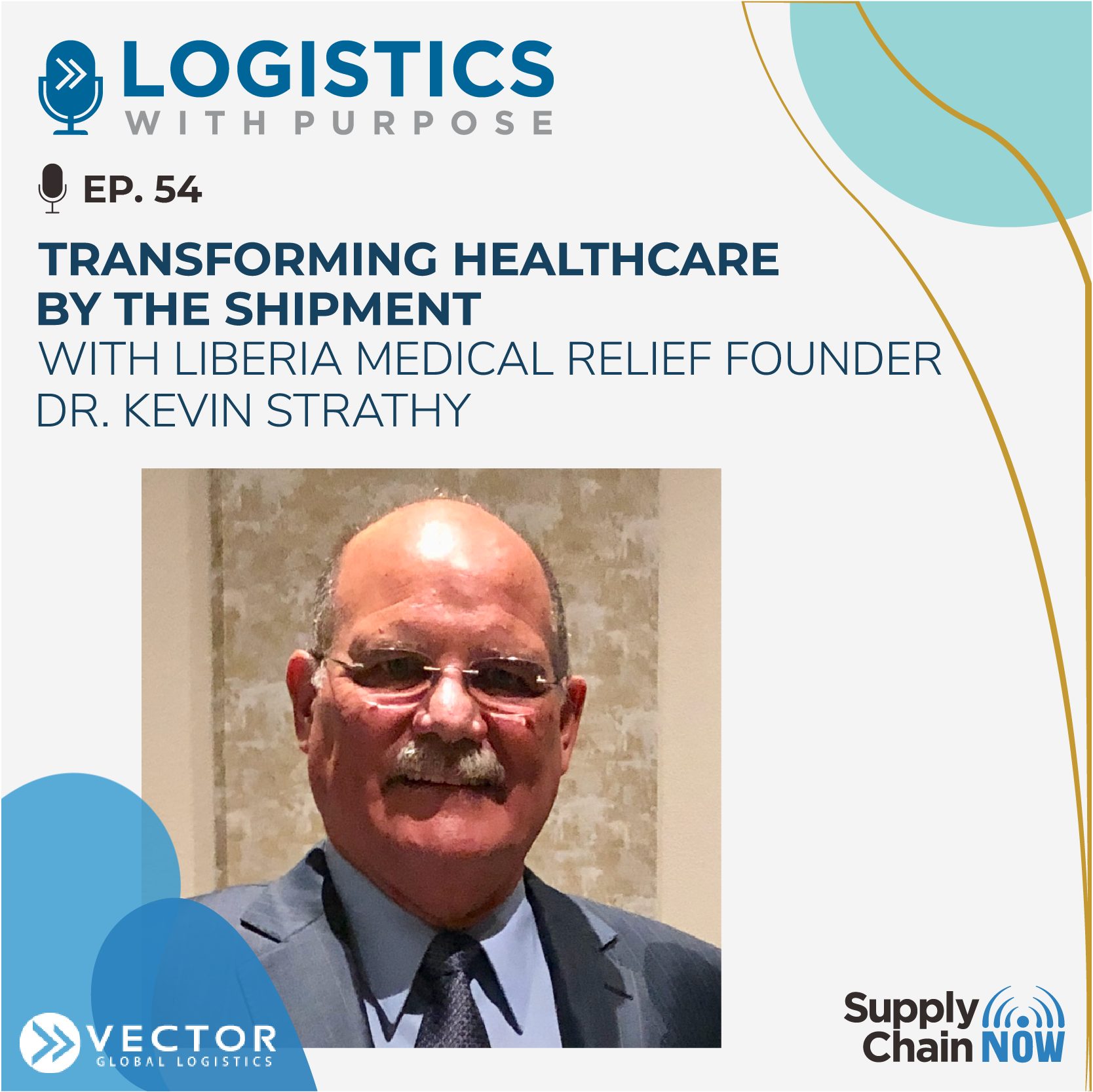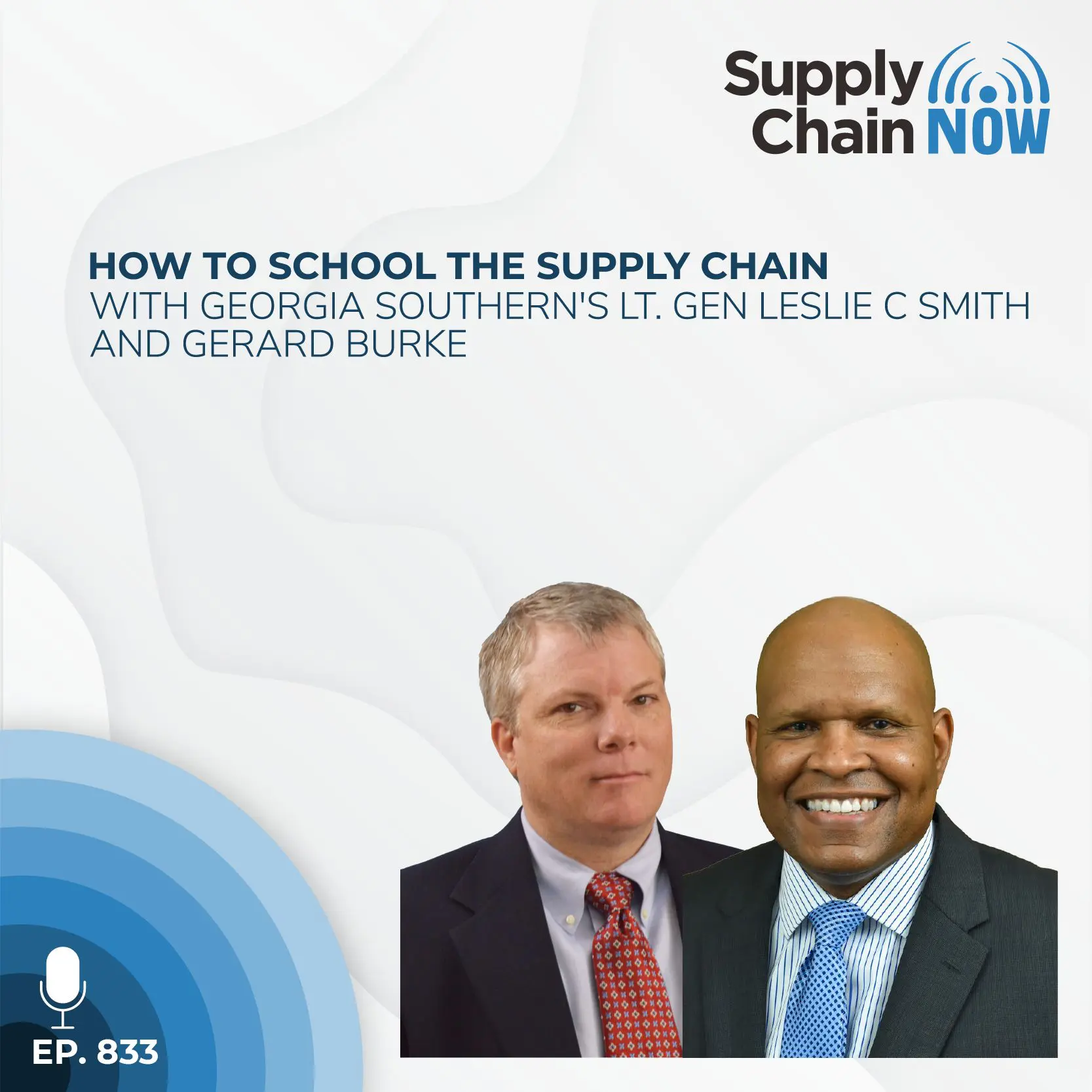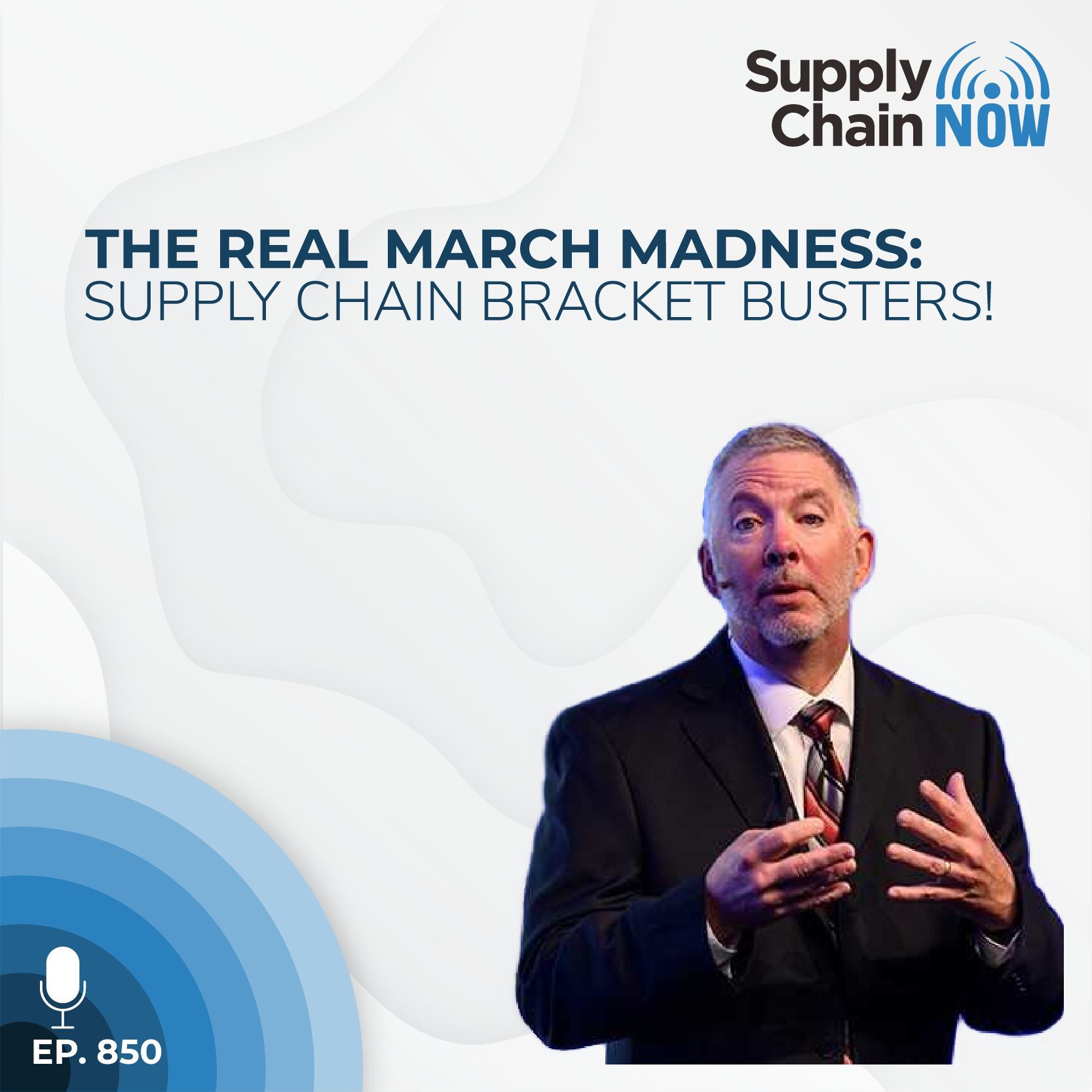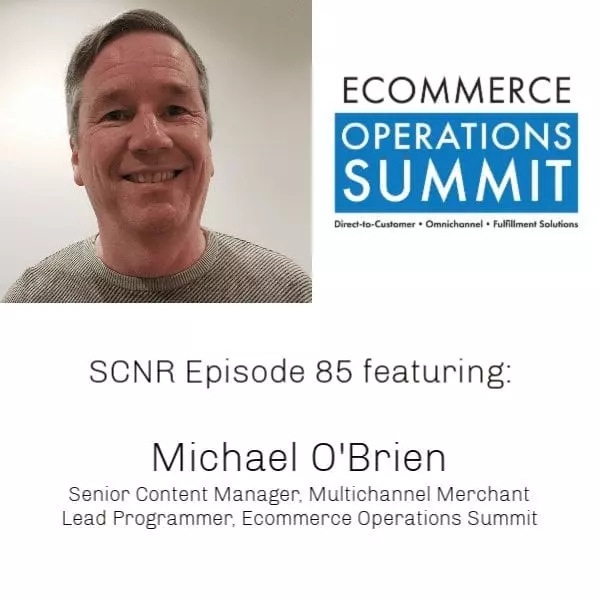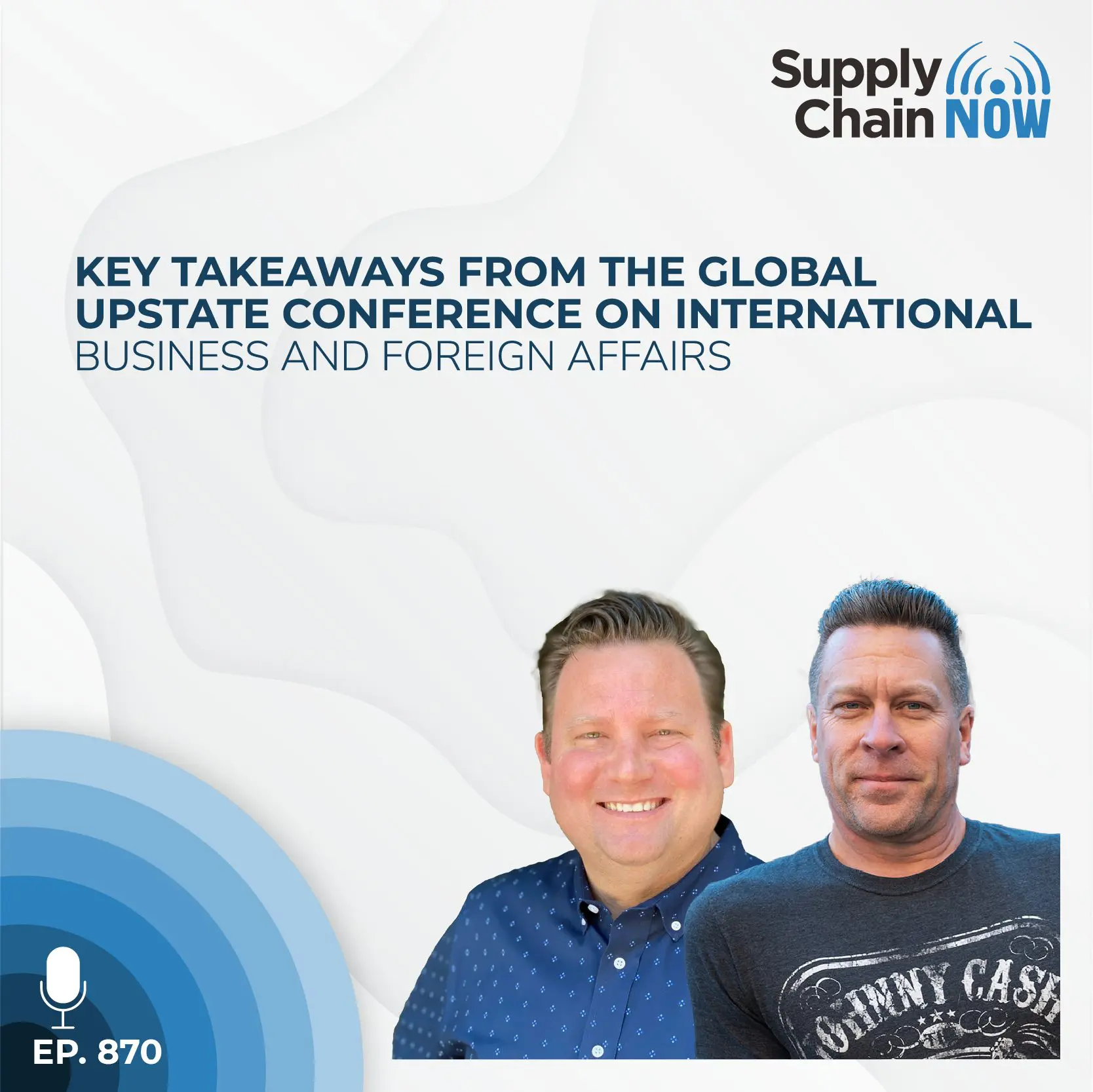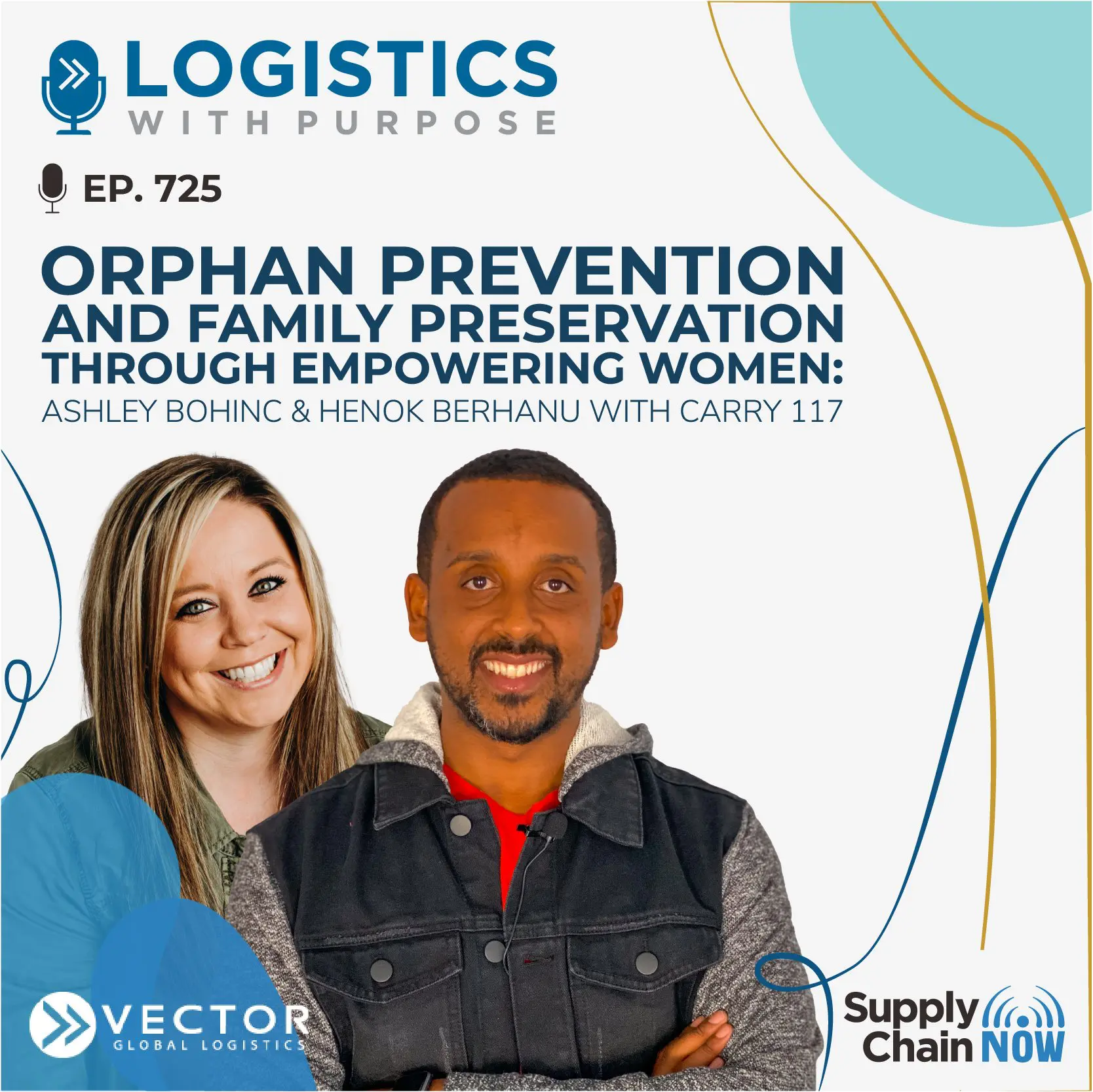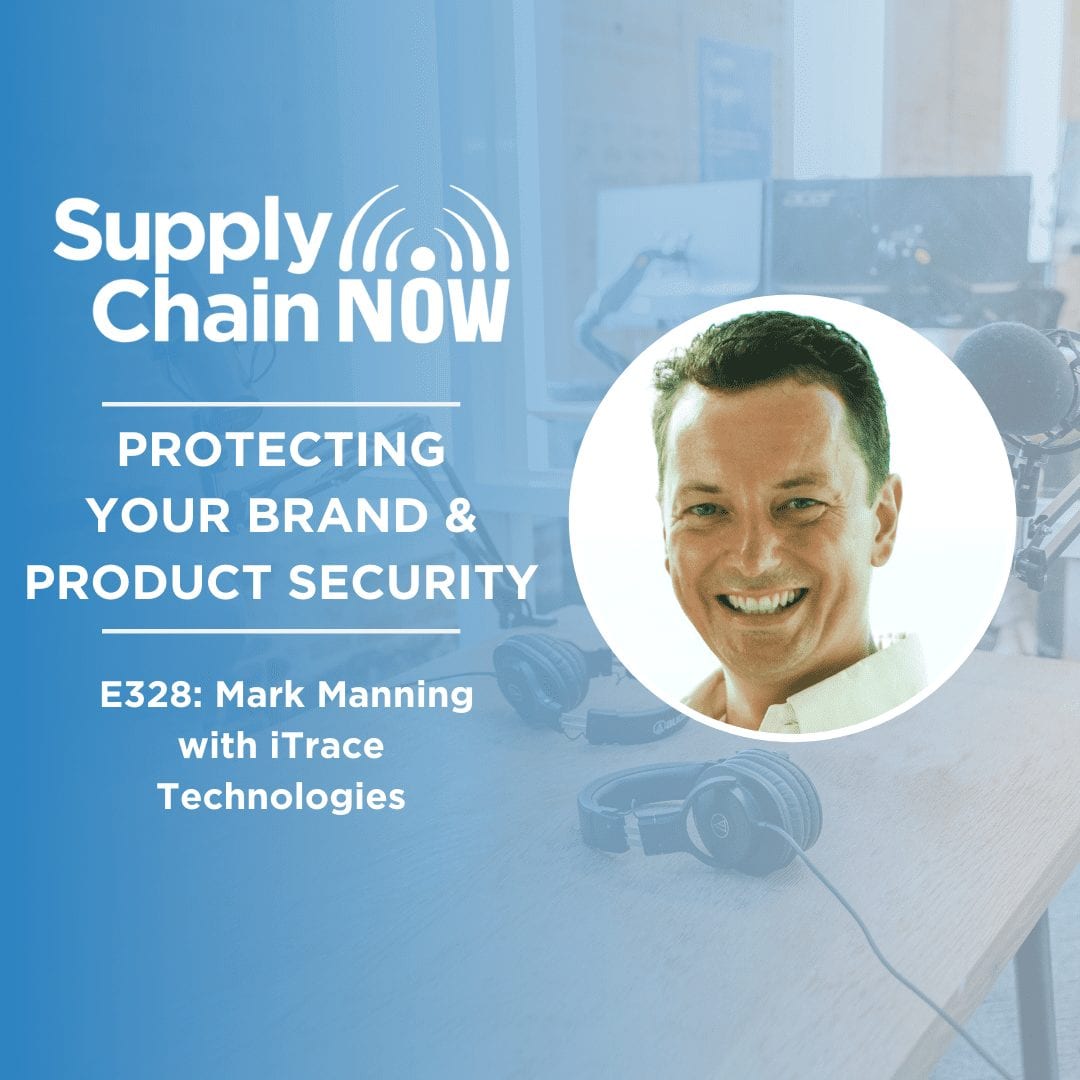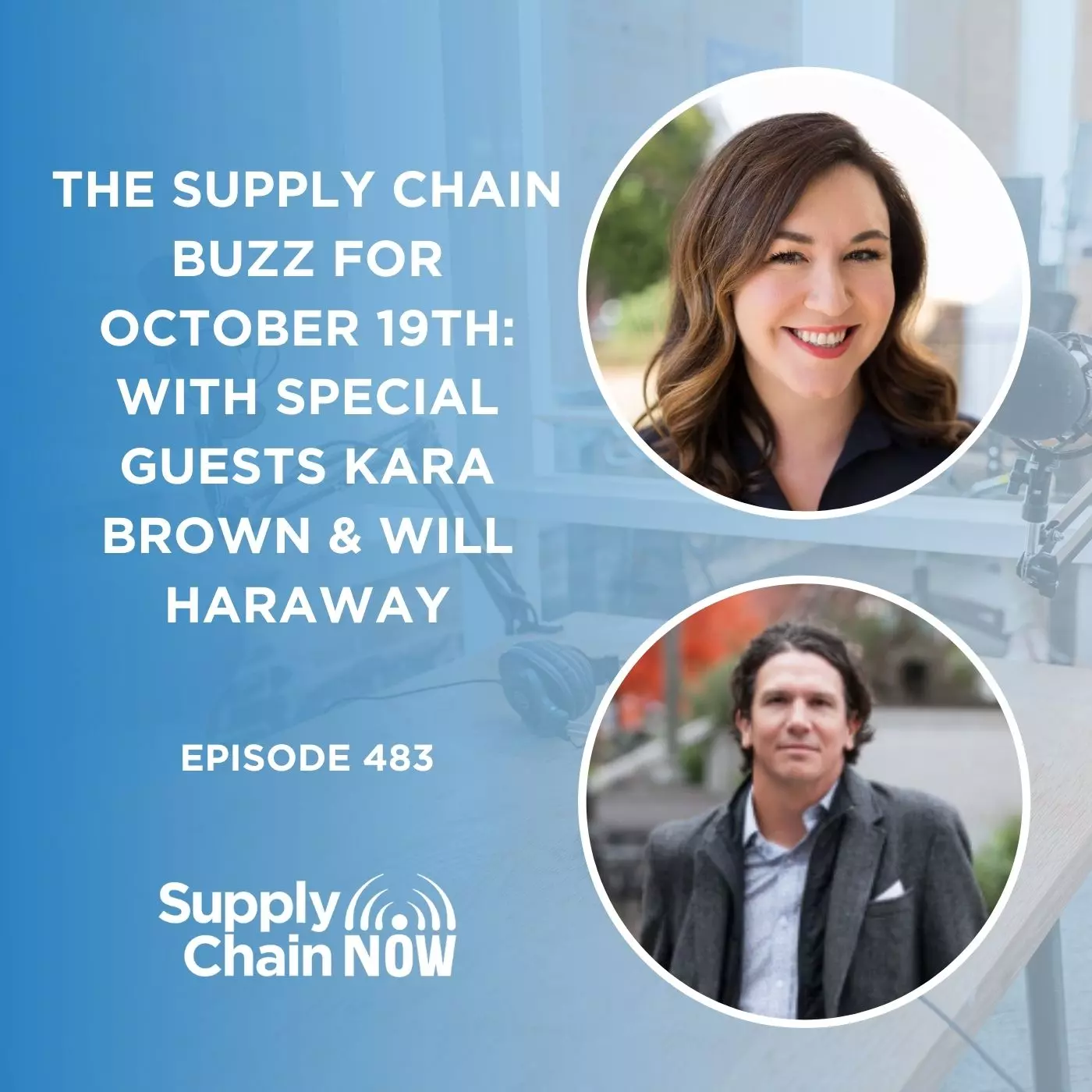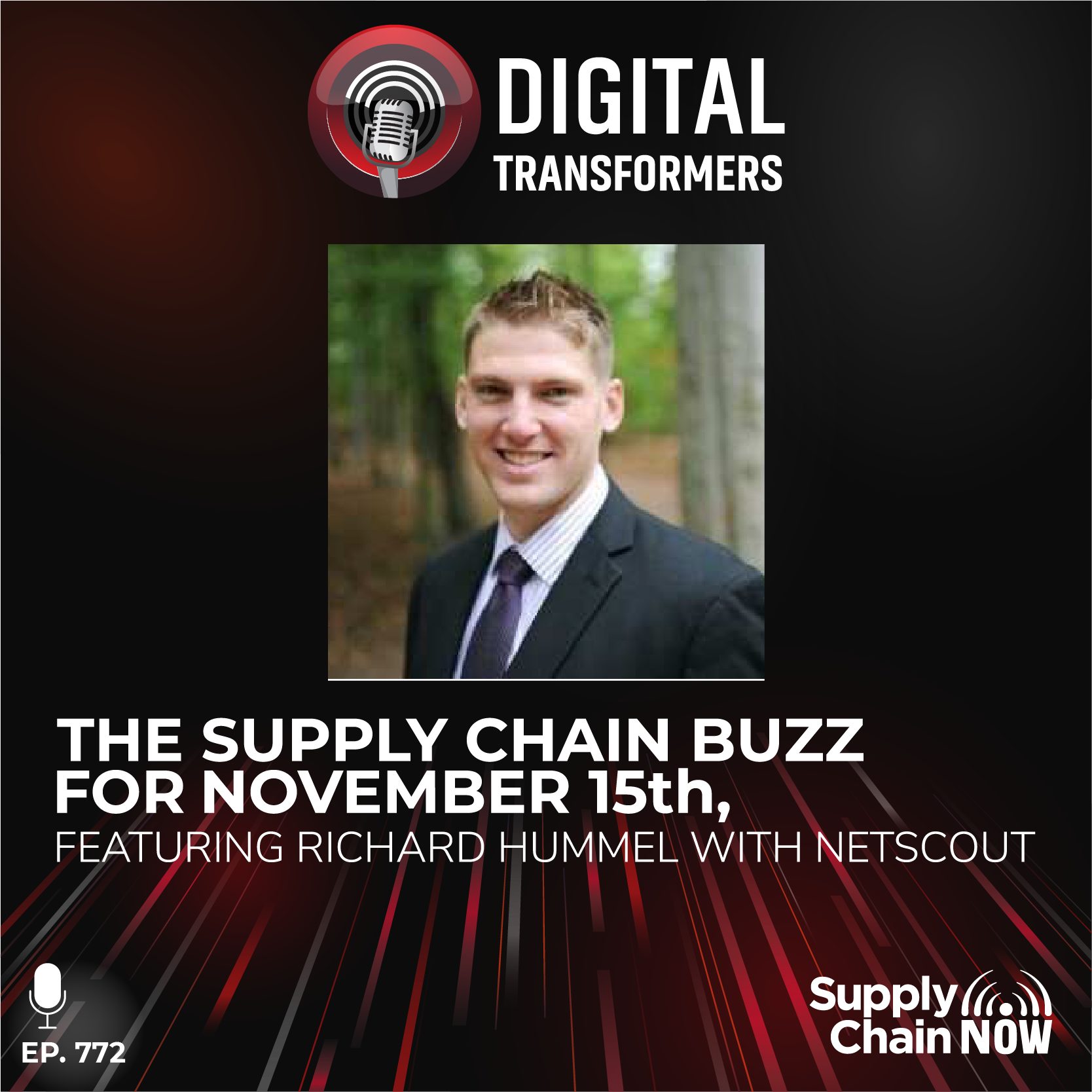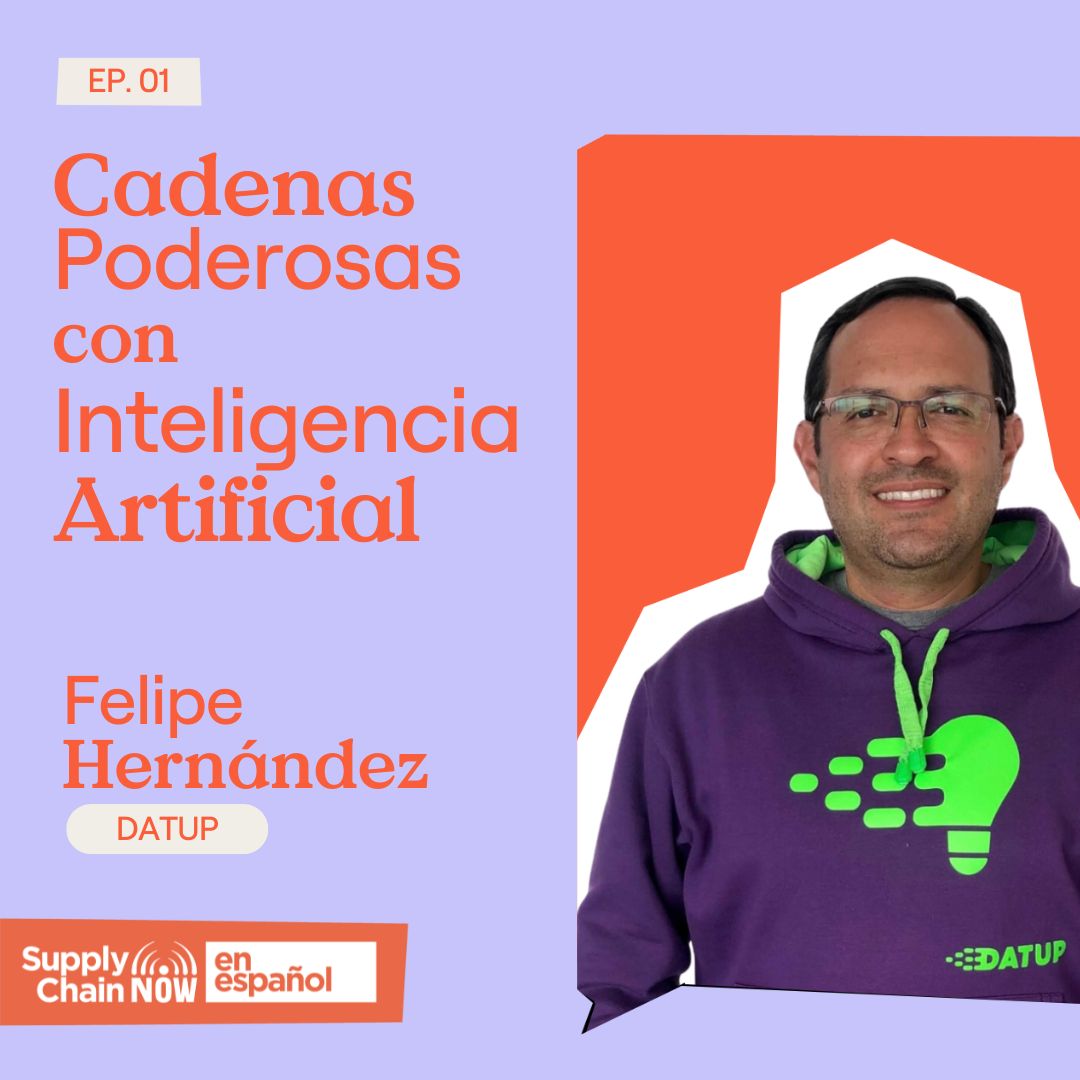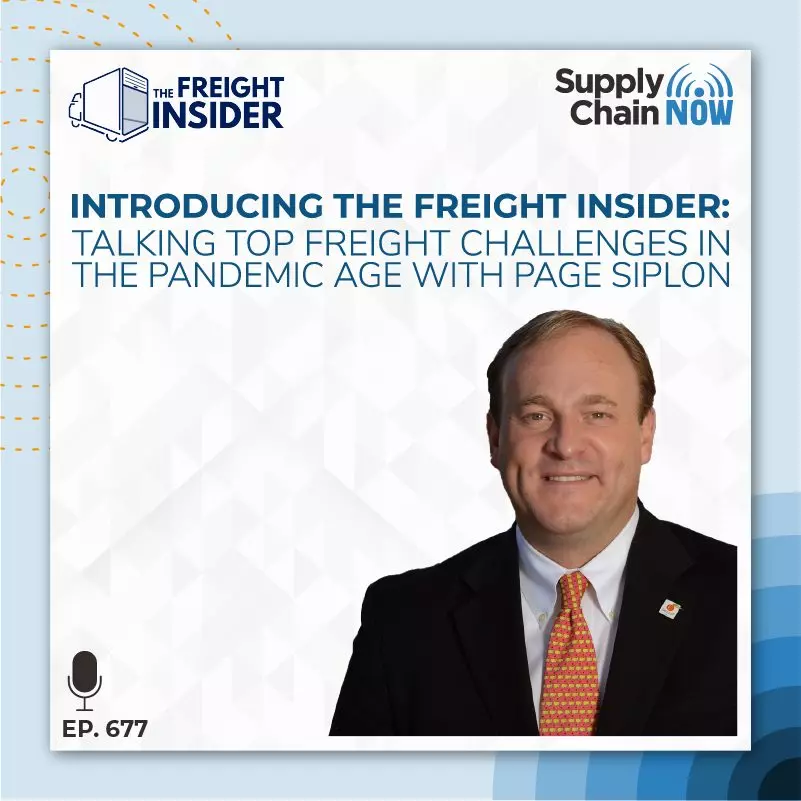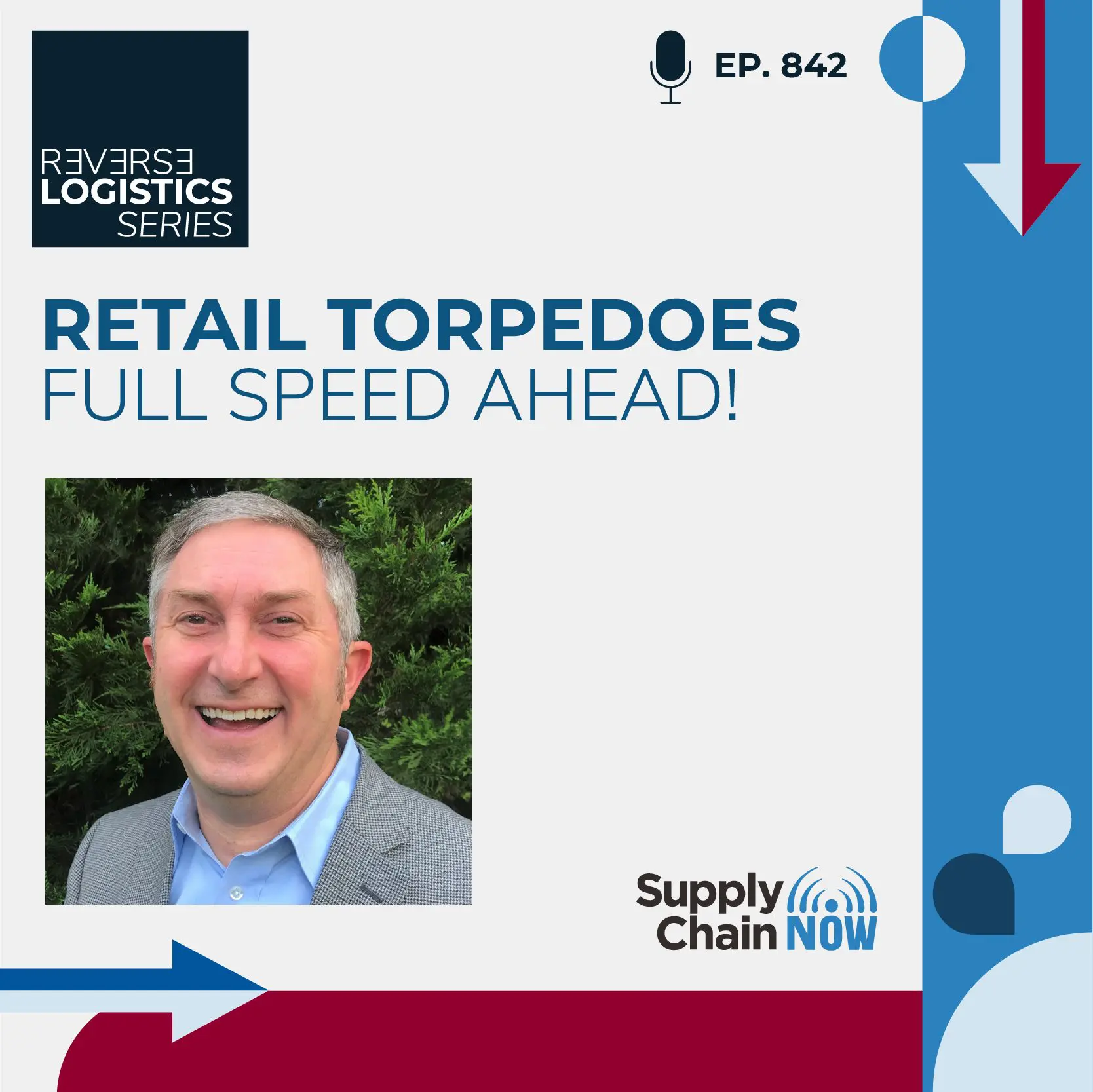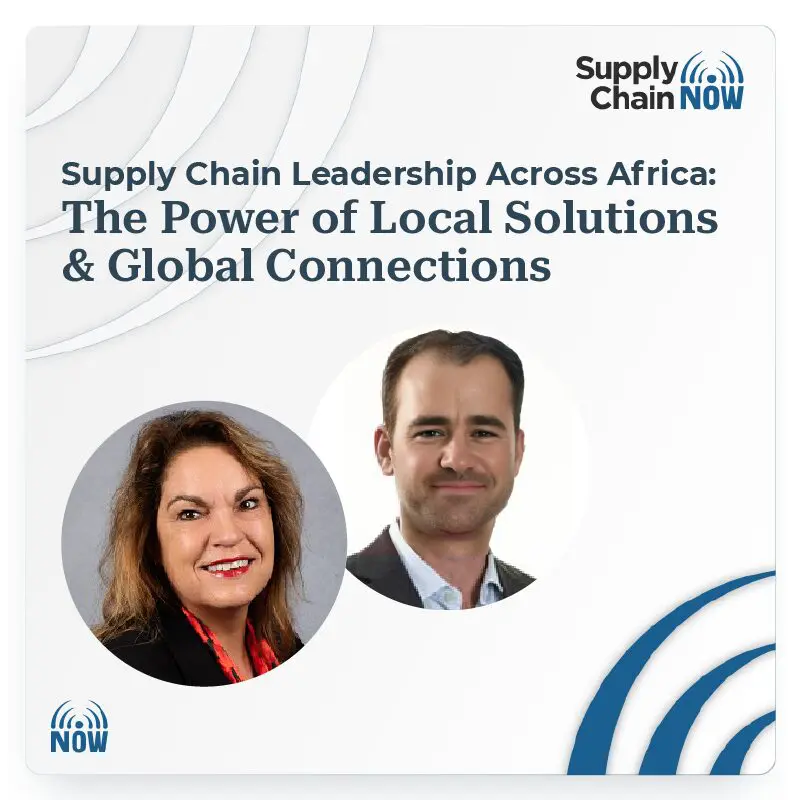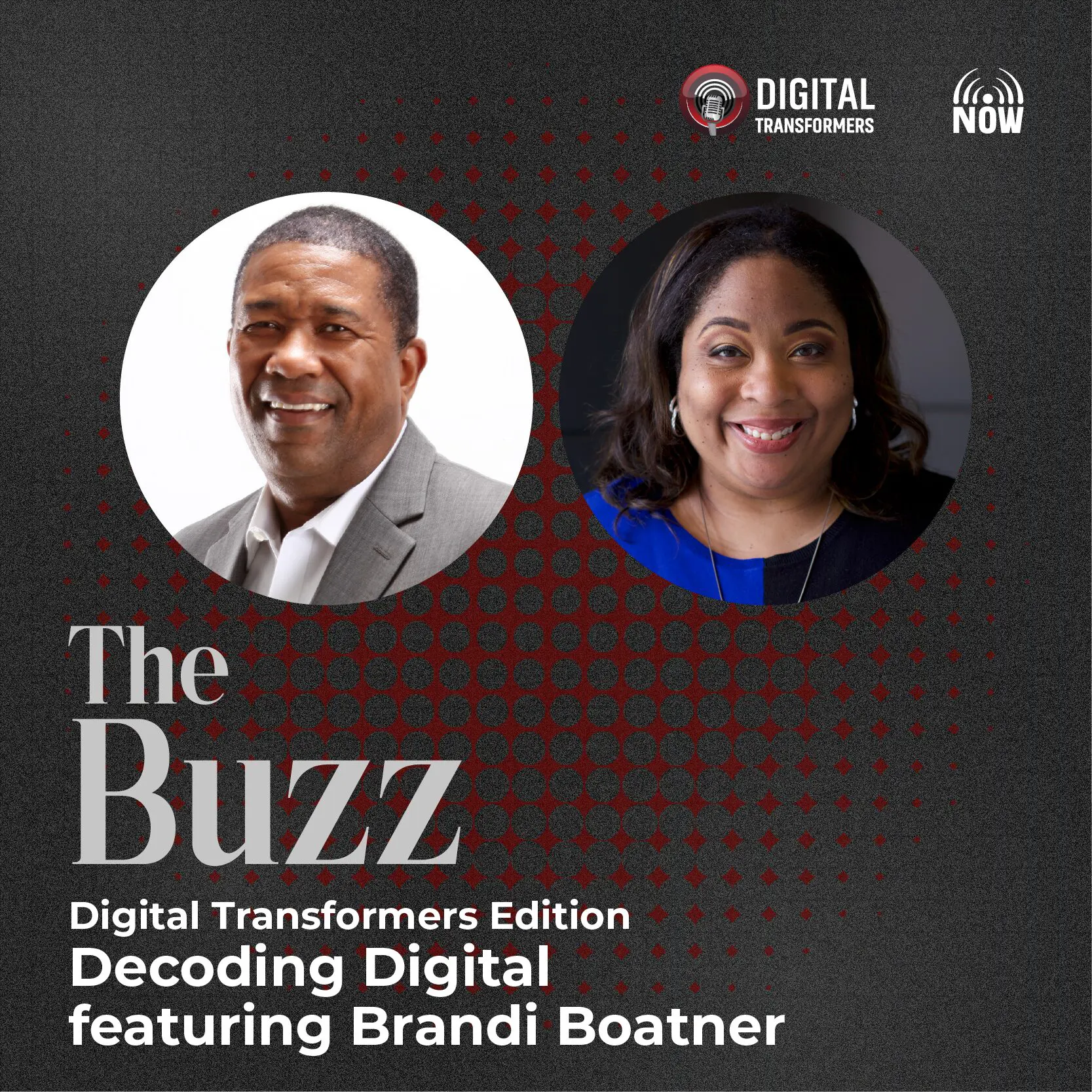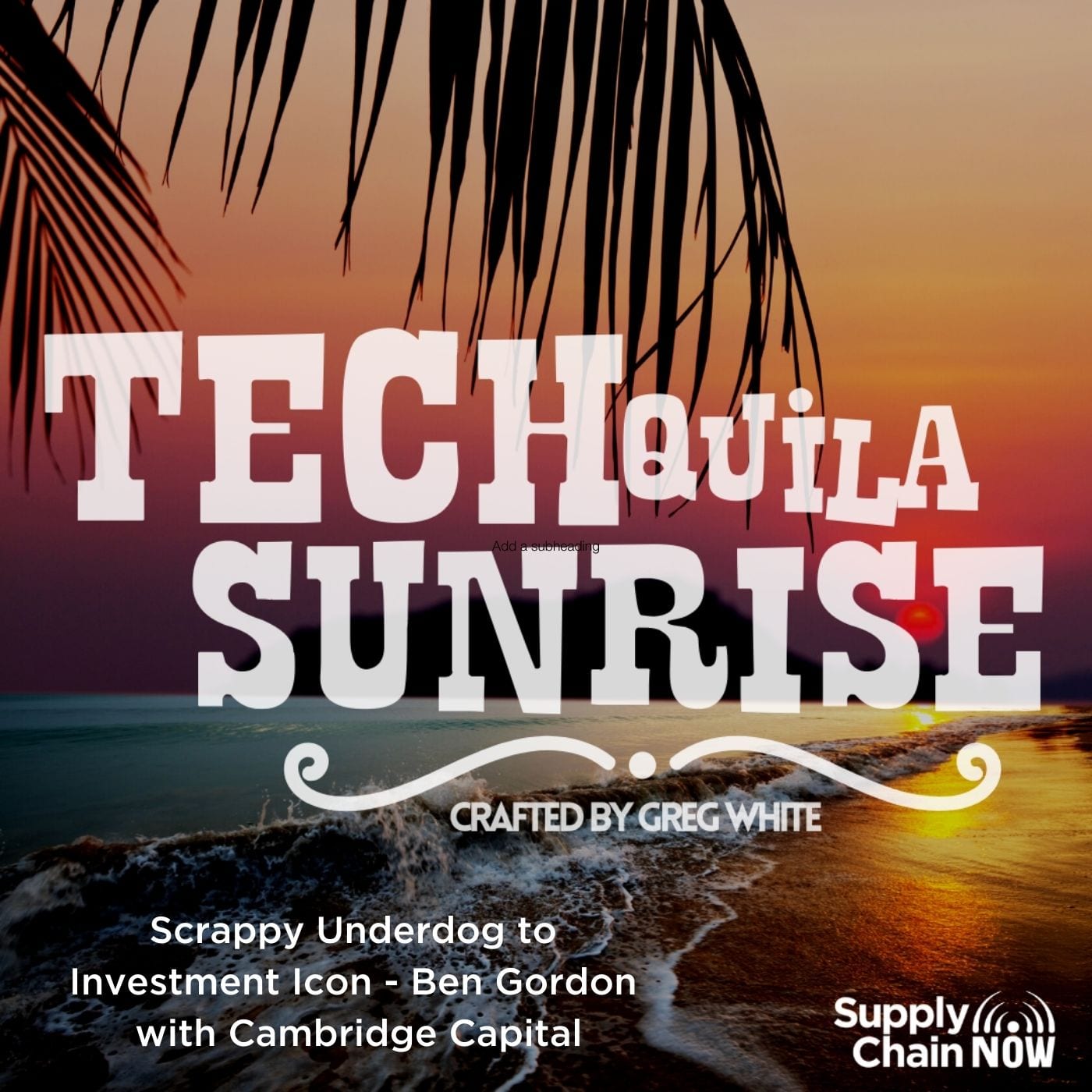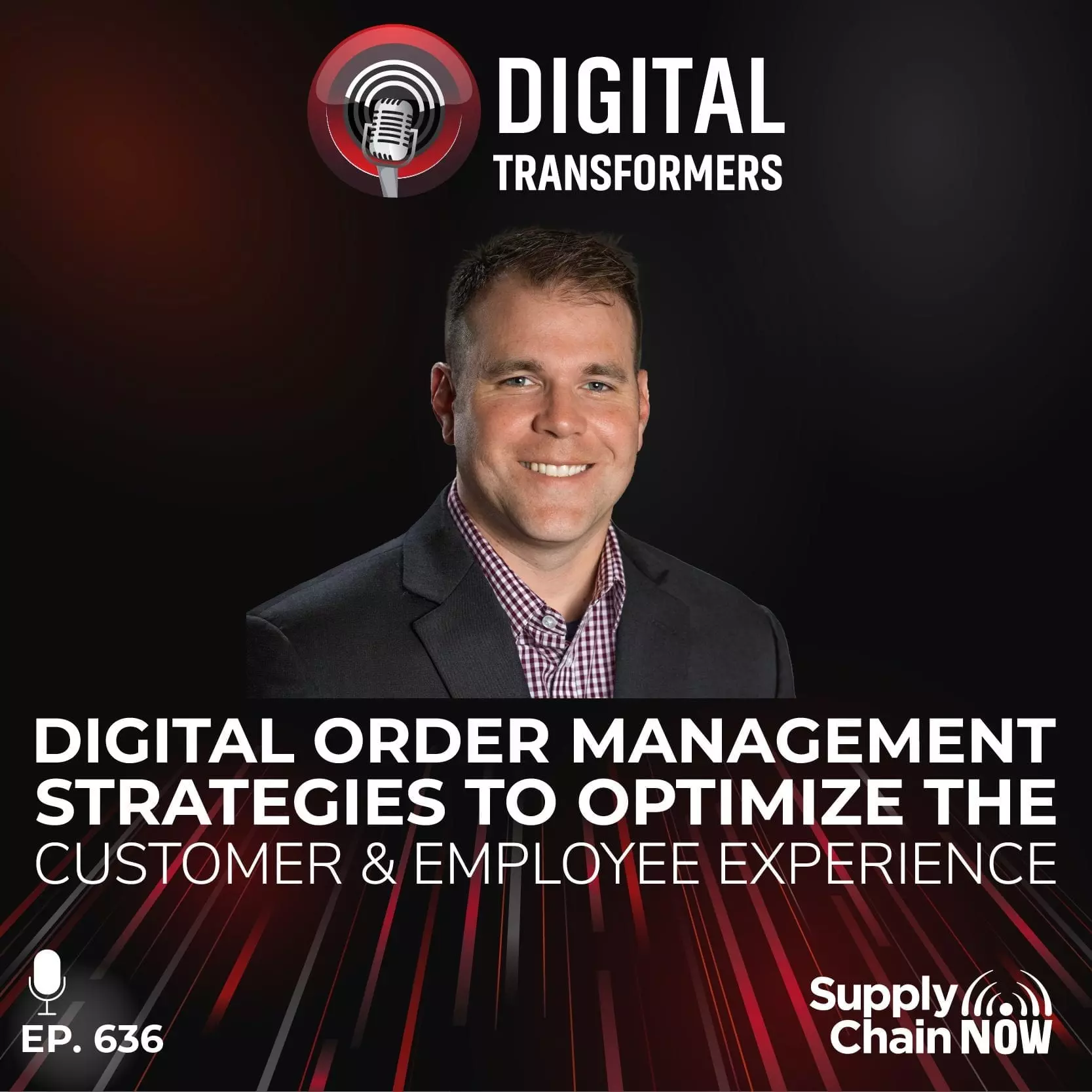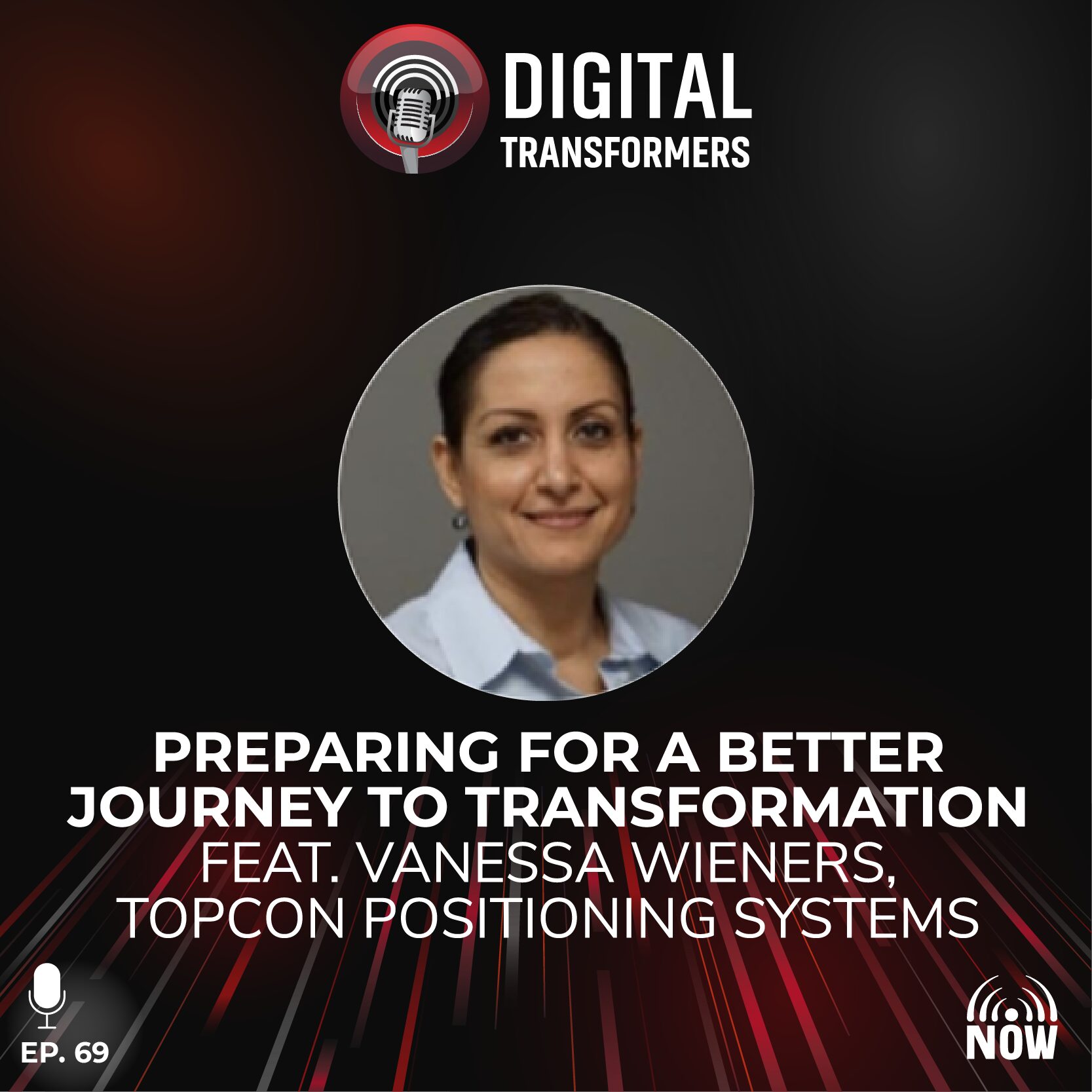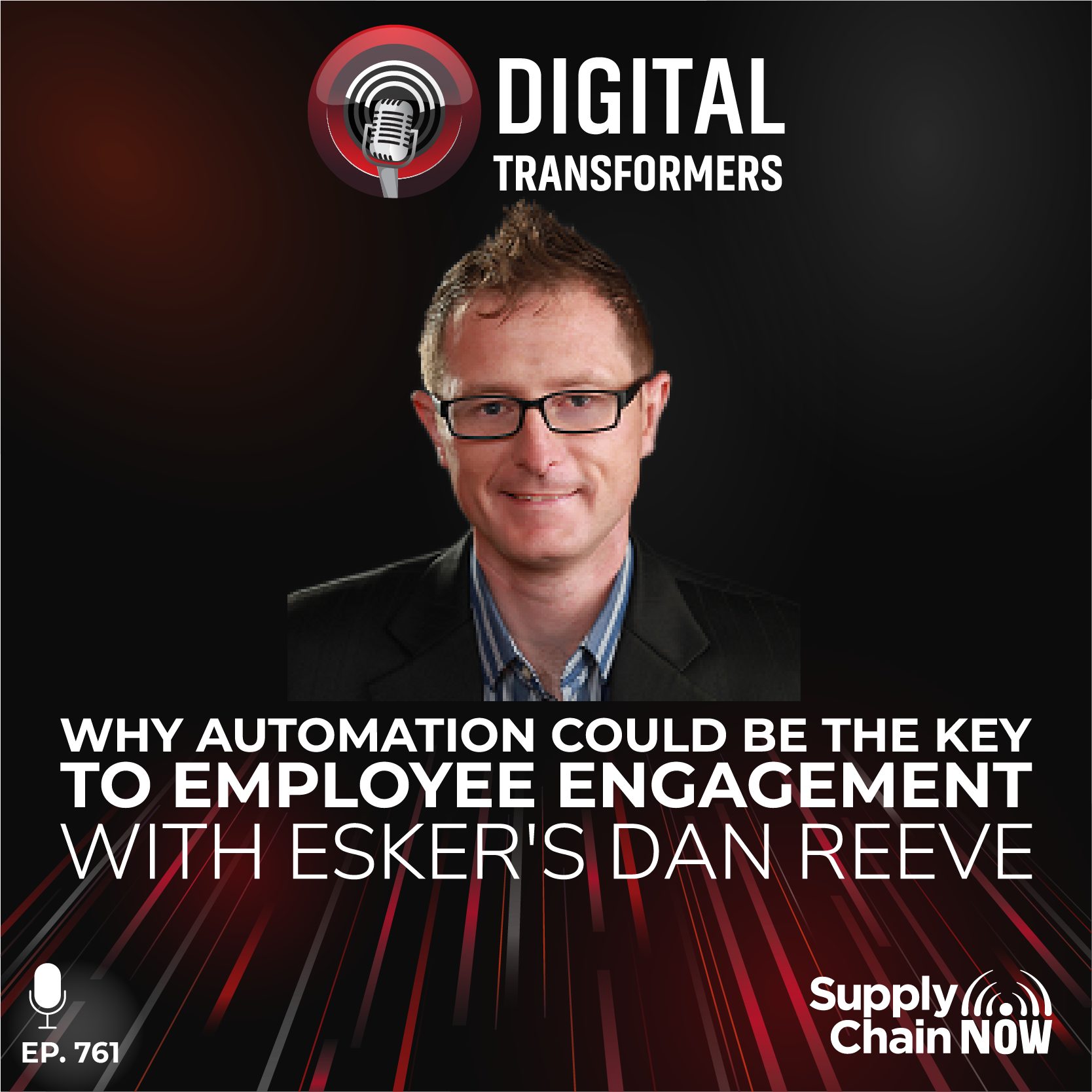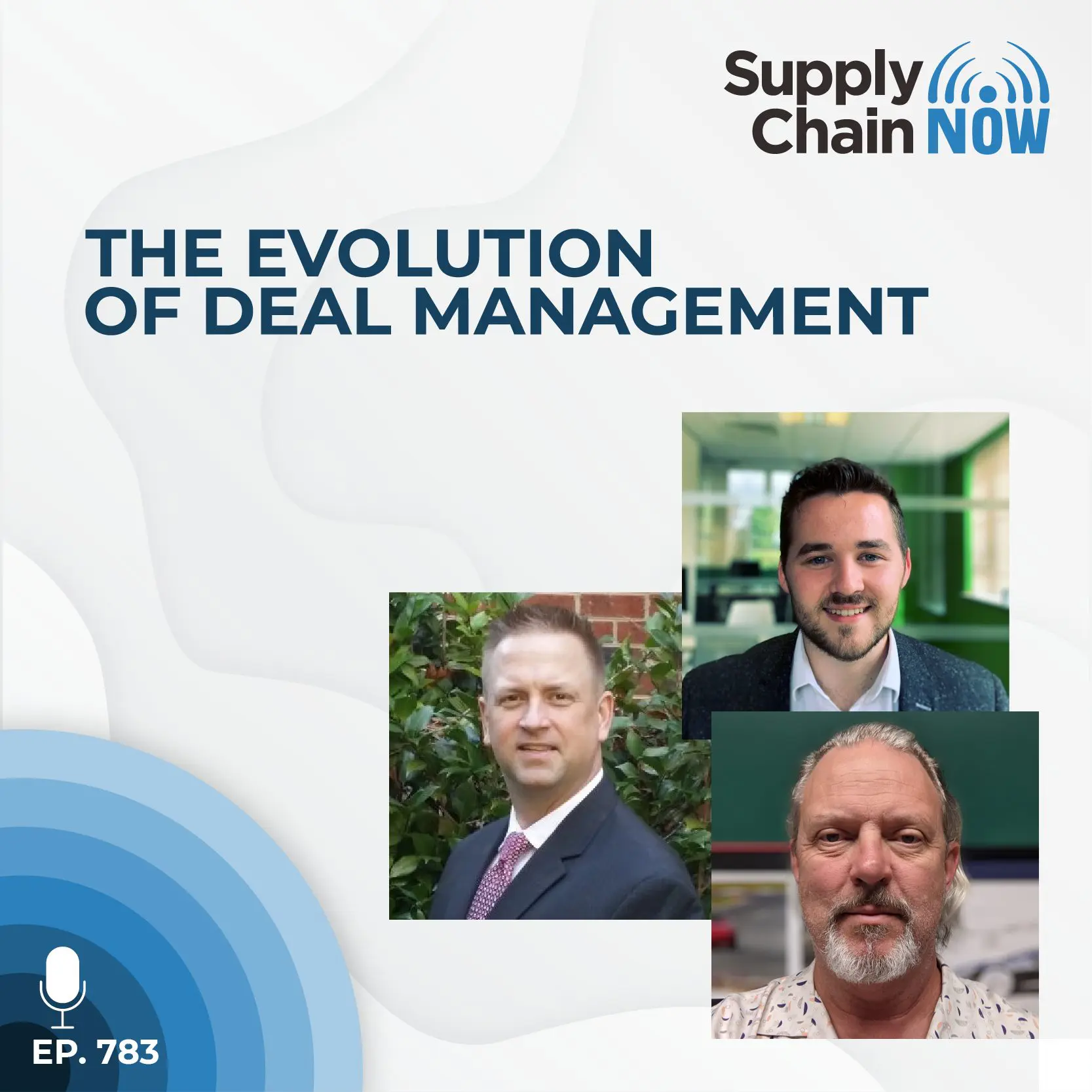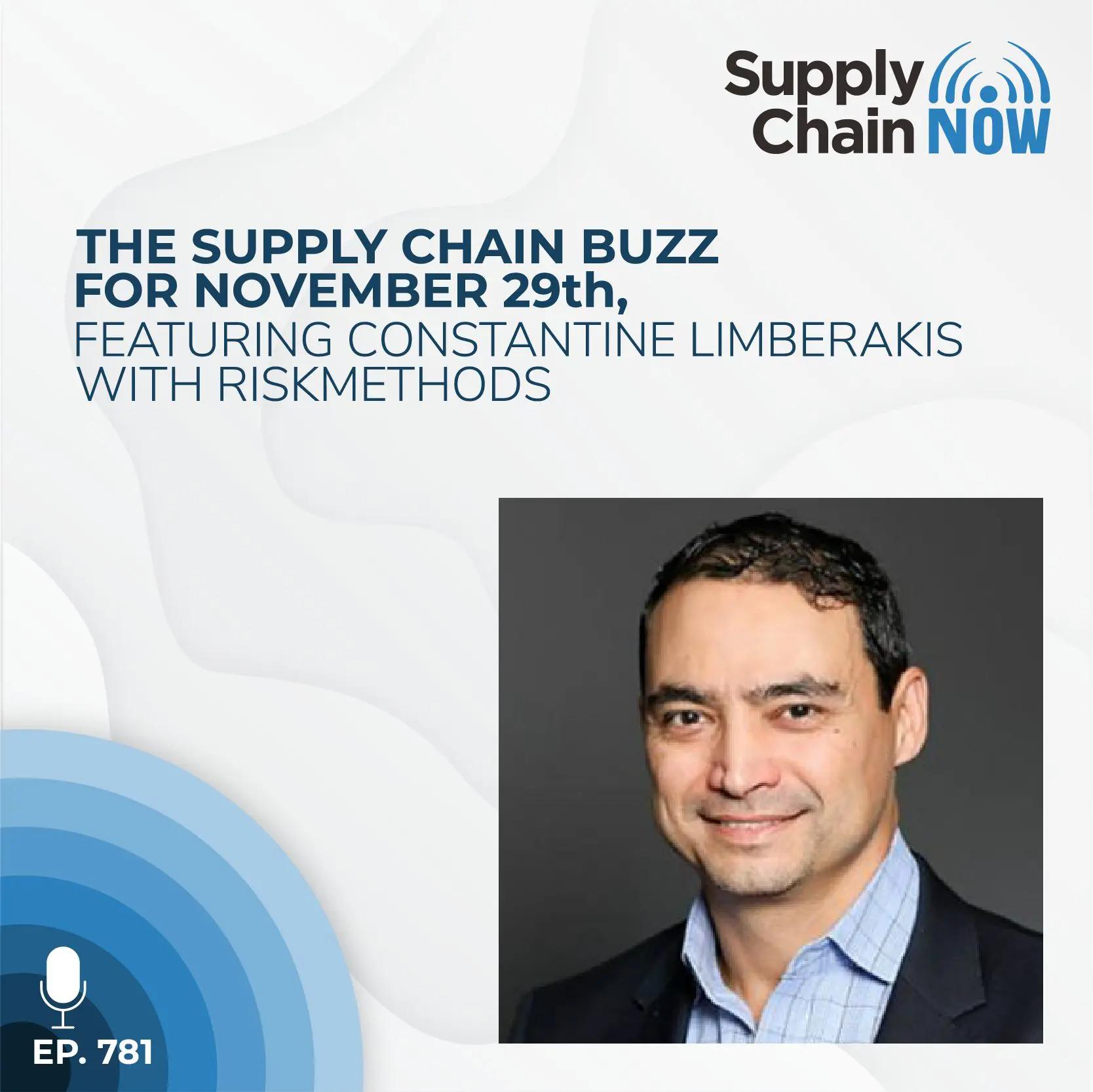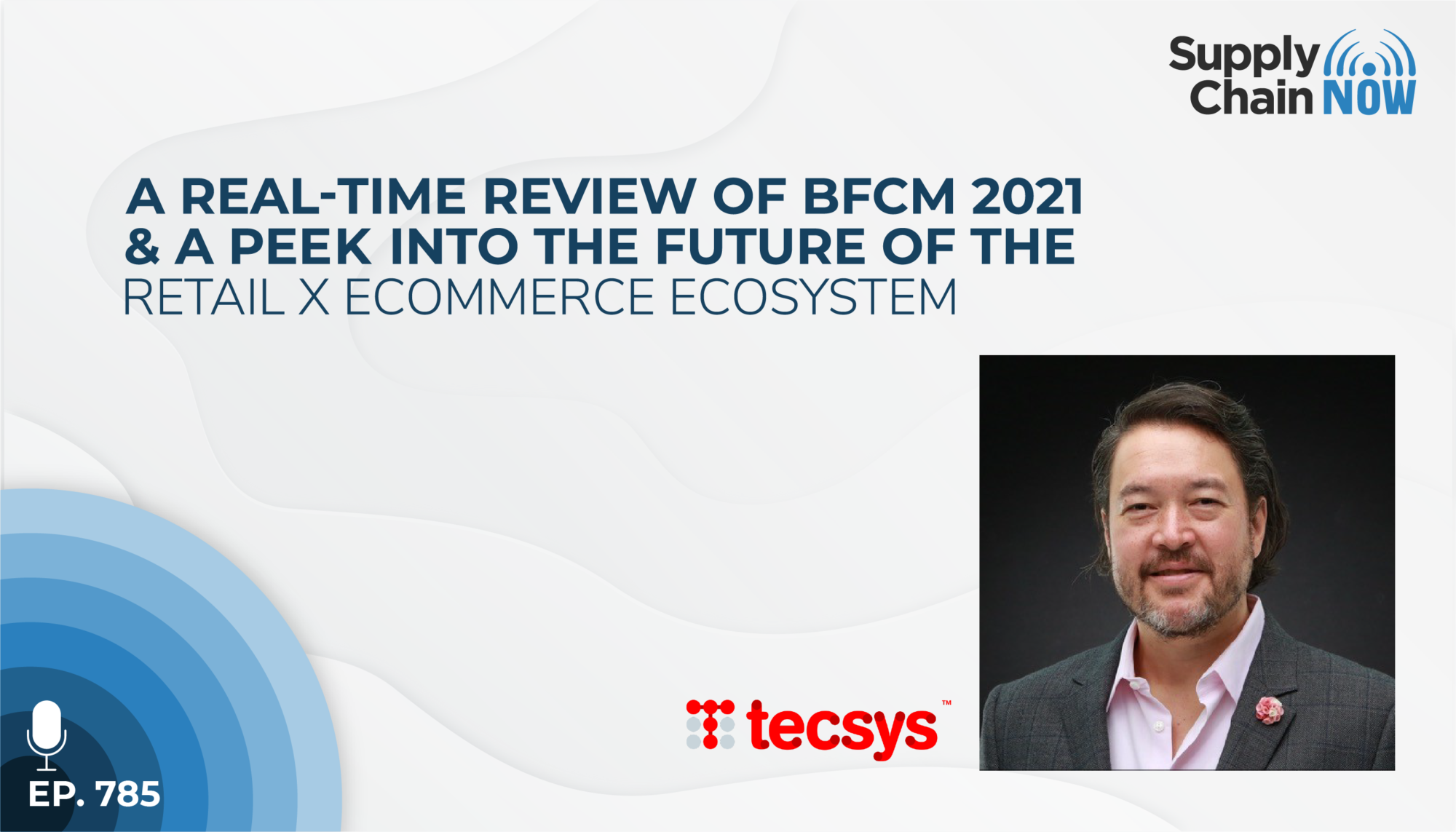
I think what you're seeing is that a lot of the value that fulfillment networks bring to the table is yes, the physical act of moving product, but the secondary thing I think is as valuable, if not more, is the amount of information they're gathering.
- Guy Courtin, VP and Industry Principal, Retail with Tecsys
Episode Summary
One of the parts of the economy where businesses observed the greatest spike in 2020 was ecommerce. With consumers staying home, people in all market segments increased the quantity and value of the purchases they made online. If we assume this trend will continue into the future, it is fair to question whether Black Friday and even Cyber Monday will continue to hold the same level of importance for retailers that they have in the past.
Guy Courtin is the VP and Industry Principal for Retail with Tecsys, a global provider of supply chain services and tools for growing organizations, including those in retail, healthcare, and pharmacy.
In this episode, Guy provides his take on Black Friday and Cyber Monday 2021 (also known as BFCM) as well as the concept of ‘experiential retail” with co-hosts Cathy Morrow-Roberson and Scott Luton:
- How the implications of BFCM for retailers and supply chain are different, and how one may affect the other
- How the returns management process has to keep pace with improvement in ecommerce to avoiding having a negative impact on the customer experience
- Guy and Cathy’s supply chain predictions for 2022
Episode Transcript
Intro/Outro (00:00:03):
Welcome to Supply Chain Now, the voice of global supply chain. Supply Chain Now focuses on the best in the business for our worldwide audience, the people, the technologies, the best practices, and today’s critical issues, the challenges, and opportunities. Stay tuned to hear from those making global business happen right here on Supply Chain Now.
Scott Luton (00:00:32):
Hey. Hey. Good morning. Scott Luton and Cathy Morrow-Roberson with you here on Supply Chain Now. Welcome to today’s livestream. Cathy, how are we doing?
Cathy Morrow-Roberson (00:00:41):
We’re doing great. How are you doing, Scott?
Scott Luton (00:00:42):
We’re doing wonderful. And it is so nice to have you back on the show as a guest host, I’ll tell you.
Cathy Morrow-Roberson (00:00:51):
Thank you for inviting me. This is fun. I enjoy it.
Scott Luton (00:00:53):
We had a wonderful time last time, say, we’re talking more transportation and freight. And today we’re going to talk about the wide world of e-commerce, and retail, and sustainability, and returns. Hey, also, Cathy, beyond our conversations together – which I always enjoy – you’re such a great follow on Twitter. And beyond all the industry analysis, your hikes and the pictures you share, it’s like a breath of fresh air. And we don’t say that often about Twitter, do we, Cathy?
Cathy Morrow-Roberson (00:01:28):
No. No. There’s all kinds of stuff out there.
Scott Luton (00:01:31):
It sure is. Well, we’ve got a ton to get through the next hour. We’re going to be talking about BFCM – yes. New acronym – Black Friday, Cyber Monday. If you’re slow like I am, we have to add that acronym to the list. Now, we’re going to be talking about the upcoming returns tidal wave, including some recent research from Cathy and the Reverse Logistics Association team. We’ve got a heck of a rock and roll star joining us here momentarily as we have Guy Courtin with Tecsys joining us here in just a few minutes. We’re going to be talking about how all of the return seasons, and really all of e-commerce, how that impacts sustainability efforts moving forward. So, Cathy, we’ve got a full plate, huh?
Cathy Morrow-Roberson (00:02:13):
Definitely. Definitely. I am looking forward to hearing from Guy.
Scott Luton (00:02:18):
We are too. We are too. But, folks, buckle up and get ready because we want to hear from you as well. So, let us know what you’re thinking as we work our way through the conversation here today. We’ll be sharing that with Guy and Cathy and, really, the rest of everybody in the skyboxes. So, let’s do this, Cathy. Are you ready to go today on this gorgeous Tuesday morning here in Metro Atlanta?
Cathy Morrow-Roberson (00:02:40):
Actually, it’s a great day to go hiking, but no. Yes, let’s do it. Let’s do it.
Scott Luton (00:02:46):
All right. Well, really quick before I bring in Guy, I want to point out what we’re all thinking. Allison – Allison, I hope this finds you well – “I’m glad you explained what BFCM was. I was making stuff up in my head and none of it was close.” Well, great to have you here, Allison. And, also, Peter Bolle, all night and all day is here. He says he Cyber Monday’ed on Tuesday, got 50 percent off a car cover for his Mustang. So, he’s officially putting, I guess, his shopping to bed today. So, great to see here, Peter. And you know this gentlemen here, don’t you Cathy?
Cathy Morrow-Roberson (00:03:21):
Yes. Hey, Tony.
Scott Luton (00:03:23):
So, great to have Tony Sciarrotta, the one and only, here with us. The fearless leader of the RLA. Great to have a couple of industry thought leaders on Supply Chain Now here today. Thanks so much for joining, Tony. And one final shoutout. Hey, Ken Armstrong is tuned in via LinkedIn here in East Tennessee listening. How about that, Cathy?
Cathy Morrow-Roberson (00:03:42):
Lucky you, Ken.
Scott Luton (00:03:44):
That paints a nice picture, doesn’t it?
Cathy Morrow-Roberson (00:03:45):
Yes, it does.
Scott Luton (00:03:47):
So, again, you’re going to have to send us a picture of the Tennessee mountains, maybe. But, hey, with no further ado, Cathy, let’s go ahead and bring on our special guest here today, Guy Courtin, Vice- President and Industry Principal for Retail with Tecsys. Guy, good morning. How are you doing?
Guy Courtin (00:04:05):
Hey, Scott and Cathy. How are you guys?
Scott Luton (00:04:07):
We are doing wonderful. Were your ears burning a little bit?
Guy Courtin (00:04:11):
Just a little bit, but it’s all good [inaudible].
Scott Luton (00:04:14):
It really is. You know, what’s really cool here at Supply Chain Now is we love our repeat guests. And as I mentioned pre-show, Cathy and Guy are two of our faves here. And we’ve got quite the conversation we’re going to be working through. But Guy and Cathy, before we do, I mentioned to Cathy how we have a full plate over the next hour, and we do, but that analogy packs a little bit more punch this time of year as we have Thanksgiving, right? We’re on the heels of Thanksgiving. So, I want to put both of y’all on the spot and talk food for just a second. And, Guy, I want to start with you. So, on the hills of Thanksgiving, you got a little travel this week, but last week as we were enjoying family and food and football and many other things, what was one favorite dish that you want to share with us?
Guy Courtin (00:05:00):
Sure. I’m going to cheat and go with two. But the first one is – of course, she probably isn’t listening – my mother made a really good – now, it wasn’t a Turkey. It was a bird – stuffed duck, which was fantastic. A little change. But the second plug and shoutout I’m going to give is, my girlfriend actually bought some pies from a pie shop in Vermont called The Southern Pie Cafe. They had what they call the Pie Blitz last week, and she and I went. And I tell you what, Scott and Cathy, talking about supply chain issues, we were waiting in line and as people were ordering, the pies are available off the board, and we’re like — I will say my favorite was the bourbon pecan pie, which, thankfully, I only had one slice and left the rest with my cousin. Because, otherwise, I would have eaten the whole thing. But those are my two shoutouts.
Scott Luton (00:05:50):
Man, I love it. You’re making me hungry already. And, hey, who doesn’t love a wonderful bourbon pecan pie to finish off a meal? Cathy, I got to come to you. What’s a dish you’d like to share with us?
Cathy Morrow-Roberson (00:06:02):
Well, okay. As you know, Scott, I was up in the mountains last week for Thanksgiving. So, we ended up ordering our Thanksgiving meal, but we had to make sure there were two important things. I’m going to cheat, too, just like Guy. The two important things for our meal, the first is cornbread dressing. You got to have the cornbread dressing done the right way, yes. And the second is pecan pie, not bourbon pecan pie, but pecan pie pronounced correctly, Scott.
Scott Luton (00:06:36):
I always say it wrong. I just know how to eat it. I don’t know how to pronounce it, but I know how to eat it.
Cathy Morrow-Roberson (00:06:41):
I miss my grandmother’s pecan pie more than anything else.
Scott Luton (00:06:46):
Well, that’s some of the best parts each year with Thanksgiving, bringing family and food and old traditional but proven recipes and memories all together. So, thank y’all for humoring us and sharing. I just want to share a couple of quick comments. I’m not sure who this LinkedIn user is, but thank you because when I say Tecsys, folks might be thinking of the state, but this is Tecsys, T-E-C-S-Y-S. And you can learn more at tecsys – spelled that way – .com. Davin, great to have you here tuned in from Canada via LinkedIn. Hope you had a wonderful Thanksgiving a month and some change ago. I can’t remember the date that we celebrate up in Canada. Charles Johnson is with us here today. Great to see via LinkedIn. Thanks so much for joining. And, finally, Maria is tuned in via LinkedIn from the Philippines. Thanks so much for joining here today. Amanda says, “Cathy, I’m a cornbread dressing girl too. My mom makes the best.” I’ll second that. All right. So, Midkiff is watching. We enjoyed our time there with the Midkiff household and, of course, with Lee Luton and the Luton household too.
Scott Luton (00:07:51):
All right, folks, we have a lot of stuff to get into. Cathy and Guy, I wish we could talk nothing but food over the next hour, but we’ve got to get into some heavy lifting. So, I want to throw a question out there, maybe a thought provoking question a bit, but just to get the conversation going. You know, BFCM, that’s where we are here today. Now, Black Friday from last week was about $8.9 billion in spending this year, which was a little bit down from 2020. But perhaps as important, foot traffic in these stores – and we’re going to talk about experiential retail down the road a little bit – is still way off pace from two years ago, 2019. But the good news is, it is up from 2020 as we continue to make gains to get back into some sense of normalcy. So, the question I’ll pose to you first here, Guy, is Black Friday dead?
Guy Courtin (00:08:45):
You know, it’s a great question. Is Black Friday itself dead? I would say, the way we believe or the way we looked at it before is dead. What I mean by that is, do we need to look at it as a day or as a whole month or as a whole season, almost? The same as Cyber Monday. You know, I think it’s interesting when we look back to the evolution of Black Friday – and I did some research on this – which was actually really eye opening how it evolved as a term. First, it was considered a Black Friday, because everybody called in sick on that day because they wanted a four day weekend. And then, it sort of evolved and then I think it was some publication, Washington Post or someone, who deemed it something around retail, around getting back in the black for their numbers.
Scott Luton (00:09:27):
Right. Meaning profit, right?
Guy Courtin (00:09:29):
Meaning profit, exactly. And this is still true where you see, I think, there’s some survey in the Wall Street Journal, like, 70 percent of retailers still believe that they make the majority of their revenue the last 30 to 40 days of the year. Which, again, for all of us who are in sales, we kind of know that cycle anyways as well. But I think the term is, it’s not dead in the sense that we’re still going to have Black Friday, we’re still going to have Cyber Monday. But I think what we’re seeing is that we’re extending that time to really capture much more of the revenue of the mind share that’s out there. And from that perspective, I think it’s dead where I don’t believe we’re going to see massive spikes in that one day. It’s going to be more spread out over a 30, 40, 60 day time horizon. So, in that perspective, is it dead? No. But it’s evolving. It has changed it. We should call it maybe BFCM month. Maybe that’s more the term to look at now.
Scott Luton (00:10:29):
Right. Right. That’s a great thought. All right. Cathy, I’m coming to you next. But really quick, I want to share Allison says, “Now, I want pie. Thanks y’all so much.” And Davin, “The second Monday of October for Canadian Thanksgiving.” Thank you for that, Davin and Allison. Great to have you both as always. Okay. Same question, Cathy. Your thoughts around is Black Friday dead?
Cathy Morrow-Roberson (00:10:49):
I’ll go out on a limb and say, yes. It is dead and I think Cyber Monday is dead too. Simply because of the growth of e-commerce. I mean, e-commerce has been growing, even pre-COVID. And I think that, combined with omni-channel strategies, you’re going to see more waves and valleys throughout the entire year. Now, this is just my thoughts and I read a few articles prior to this, the reason why there was a decline, that slight decline on Friday and on Monday, inventory issues. I mean, there’s not a lot of inventory out there. And, plus, the fact that so many retailers, particularly since COVID hit, has been really doing less promotions, less clearance sales. I noticed that when I’d go visit Marshall’s, and Macy’s, and such, it’s like, “Where are the clearance racks?” They’re not there. And I just kind of think we’ve been heading this way, and COVID and the whole shmil of all of that has just exasperated it.
Scott Luton (00:12:07):
Right. I’m with you. Really quick, Vince tuned in from Atlanta via LinkedIn. Great to see here today. And Allison agrees with you, Cathy. She says, “I agree. I think the past 20 months have caused one month to bleed into another. Time is a weird thing these days.” That’s a great phrase in the comment there. And Peter who’s posted – I’ll call it – an overture from email, yes. Reply to Mr. Lasar. Yes. Let’s all have some fun with that. So, Peter, great to have you here. All right.
Scott Luton (00:12:38):
So, Guy, I want to pose just a couple of numbers as we continue on Cyber Monday before we get into returns. So, Cyber Monday sales also dropped 1.4 percent this year from last year. I think it came in about $10.7 billion. And that was the first time that Cyber Monday sales have ever fallen. So, not that Cyber Monday has been around a hundred years or anything. And, by the way, I loved your historical take on Black Friday. That’s really important perspective these days. But your take, Cyber Monday versus Black Friday kind of in the greater scheme of things.
Guy Courtin (00:13:11):
Yeah. And I want to mirror what Cathy just brought up, too, which is spot on. Let’s go back in the history time machine here, you know, why was Cyber Monday a name? And like you said, it’s not been around a hundred years. I mean, it’s been around maybe 15 years. And for some of our listeners when I say this, they might be like, “What are you talking about?” You know, when I started my career and I worked at Forrester Research, we had high-speed access, we cover the internet. But I go home and I do this thing called dial-up. And a lot of us who were old enough remember that, you’d have that very strange noise and then you connect and then, miracle, you could get your email. But heaven forbid, you want to try to surf the web. Now, there wasn’t a lot of video or highly graphical intensive stuff out there yet, but, still, it was sort of a block if you will to do much more than email or read an article.
Guy Courtin (00:14:05):
So, of course, I’m reminded. Why? Because I remember when I worked at Forrester, we were in the office, we had a T1 line coming in, we had high-speed access. Not around Cyber Monday as much. But for us – and, again, I’m going to date myself – we all went in the office to go download stuff on Napster. Why? Because I could download all these songs super fast, so it was great. So, that was the motivator for this notion of Cyber Monday. But to Cathy’s point, I think all of us listening, we’re carrying a supercomputer in our pockets, whether it’s an Android or an iPhone. And then, guess what? We’ve got 24/7 unfettered access to this thing called the internet. And, now, we can get videos, we can go shopping.
Scott Luton (00:14:43):
Anytime.
Guy Courtin (00:14:44):
Anytime. And then, Cathy, you talked about something really interesting – which was, again, dating ourselves – going back, I remember watching late night, those Ginsu knife commercials and all that. Now, that sort of switched over to the social media world, right? You scroll through Instagram or Twitter, all of a sudden, you’re given opportunities to transact. And, now, with things like Apple Pay and PayPal and Google Pay and all this, the ability to make the transaction via your phone becomes that much easier. You’re two or three clicks away with your credit card information, your banking information, your mailing information to make that transaction. So, this need to go into an office and to sort of leach onto the high-speed access that’s there for you to go do work, and not shop or go to Napster, is now gone away because we can do a 24/7. And I think that’s why this notion of Cyber Monday is going to go away. Now, I believe that retailers will continue to leverage a term to drive traffic, drive promotions, drive some demand – but I think that we’re going to get to this a little bit later – that’s artificial. And I think we’re going to see more of these artificial demand driving events being created by retailers and brands.
Scott Luton (00:16:00):
Excellent point. And, of course, consumers can do it 24/7 as long as the retailers have a platform and a technology to equip that supply chain and that supply chain greatness. I know you’re familiar with that, Guy.
Scott Luton (00:16:13):
All right. I want to share a couple of quick comments, and then, Cathy, maybe I’ll come to you for one last thought around Cyber Monday and Black Friday. And then, we’re going to move into returns, one of our favorite topics here. It’s such a fascinating aspect of global business, really. Diana, “Dial-up. LOL.” That’s just a wonderful comment there. I love that, Diana. Peter says, “AOL on line. Oouuff. Such memories.” Allison says, “Good point, Guy. When being connected is already the norm, Cyber Monday may just be another day. And as a side note, as an avid online shopper, the Cyber Monday sales were weak this year.” How about that? Davin says, “LOL. Dial-up still lives. I just spent the last seven months on it.” And let’s see, Tiffany, it looks like they’re going back to the rla.org, which we’re going to touch on in just a second, where you can join for free. Also, download the report we’re about to dive into that.
Scott Luton (00:17:14):
One other comment I was going to share really quick, so Mateusz, I believe this is. And if I get your name wrong, I apologize. Just shoot us a note, we’ll make sure we get it right. This is a great point. Mateusz says, “For me, it feels like Black Friday is having its Renaissance in all other countries, other than the U.S. It’s thousands of miles away and every second commercial on TV or radio is about a Black Friday sale.” And that’s a good point because as we talked about, Cathy and Guy, before today’s session, Singles’ Day, the Wiley, Chinese New Year, El Buen Fin – which is a new one for me – which is based out of Mexico. There’s so many more big time shopping days other than BFCM. And I think that’s an important perspective, especially as the war continues to be one big global business community. So, Mateusz, thank you for this point. Cathy, your final word on BFCM. And then, we’re going to move into returns.
Cathy Morrow-Roberson (00:18:10):
I think he is right, the Cyber Monday and such, honestly, every day is Cyber Monday now. And talking about the dial-up – oh, my gosh – “You’ve got mail.”
Scott Luton (00:18:25):
You know, it feels like it was just yesterday. That was some 25, 30 years ago. That pains me in my heart, Cathy.
Cathy Morrow-Roberson (00:18:33):
Oh, I’ll date both of you here. I remember having to pay per the minute of being online. This was when I was in grad school, having to structure your search query before you go online. Go online, run it real fast, get your information, and link.
Scott Luton (00:18:53):
Yes. You did that to date everybody, I think. But things have changed and thankfully. Two quick comments here. Thank you. It’s Matt. I always choose a harder path. Matt, thanks for being here today. I really appreciate that. And let’s see, David shares, “Don’t forget the carrier capacity can’t support a traditional BFCM sales campaign. The carriers forced retailers to ship earlier and often three to four years ago. If I recall Black Friday started on a Monday and the month of November. The retailers and carriers have now forged a nice strategy to support capacity.” Excellent point there.
Guy Courtin (00:19:32):
Sorry, Scott. One last point, I think what Matt brought up, which I think is an excellent one and what you said too, which I think all of us – and I will be the first to admit I’m very guilty of this – I always think in a very North America, if not U.S. centric mentality when it comes to this. But, of course, globally, we have to look at this where if you look at some of the big e-commerce players, like in South America or in Europe, they’re not named Amazon. I think we have to separate what Matt brings up, which is an interesting point, I think we have to separate Cyber Monday will never go away from a promotional marketing tool that retailers will use. I think what we have to continue to look at from a supply chain perspective is not what we’re promoting out there or what we’re saying in the marketing message. It’s what’s actually being transacted and what is then being fulfilled based on Cyber Monday behavior. I think that’s what we’re looking at, where the behaviors can be spread out over a month or beyond.
Guy Courtin (00:20:26):
The marketing teams and all this are still going to run their crazy promotions, you know, door busters, wake up on Monday at 12:01 a.m. to get that Cyber Monday deal. That, I don’t think will stop. But I think what we need to look at as supply chain professionals is more what are the actual transactions being done, which in a way, too, that’s kind of secondary. The big one is what is actually needed to be fulfilled. And I think the last point was great by the audience, which is, what is the fulfillment schedule now needed to meet that new surge, if you will, of people making orders. And we need to separate the marketing from the fulfillment from that perspective.
Scott Luton (00:21:04):
Excellent point, Guy. Excellent point and great perspective. And thank you for that, David. And Nor Mohammad, great to have you here today as well. All right. So, we’re going to move right along, there’s so much to dive into. I feel like we should have six hours here today. But I want to add this, too, we’re going to be talking about returns next, Cathy and Guy. So, of course, it’s a one season wraps here in December, the tidal wave of returns, and maybe then some, kicks off in late December and, certainly, into January. So, Cathy, of course, you lead research for the Reverse Logistics Association, which just published their Returns Management Index and then some survey results. I think this is the first annual study, I believe, or maybe quarterly – you’ll correct me I’m sure. And, folks, you can download this at rla.org – give us some key takeaways from this survey here.
Cathy Morrow-Roberson (00:21:56):
You’re right, it’s a quarterly survey. And this is the first one that we’ve done. And the next one will be coming out in early January, and that will cover Q4 and Q1. So, what we’re trying to do here is to build an index to measure by the number, the volume, as well as the cost of returns across all industries. And this first one, it started off already really interesting. We just asked four simple questions – the current situation which was third quarter – were your returns higher, lower, or the same in terms of volume as well as in terms of cost? And what do you expect the next quarter to be in terms of volumes and cost, higher, lower, the same?
Cathy Morrow-Roberson (00:22:54):
And the results were really interesting because everybody equates January as the month of returns. Well, returns never end. They’re throughout the entire year. January is a big month, naturally, because of the holiday season. But one of the biggest takeaways, it was kind of like, “Ha. Was that before COVID?” Only less than half, about 45 percent, said that the number of returns increased. And I’m standing there thinking, to me, I thought that was low. But then, I got to think, “Well, duh, Cathy. It’s the inventory issue, the whole inventory issue.” There’s nothing to return because customers, they’re keeping what they’re buying. So, that finally hit me.
Cathy Morrow-Roberson (00:23:44):
But the cost for third quarter definitely went up. And we have several comments noting a higher supply chain cost, a higher freight cost, trucking, the ocean ports situation, and so on. They are attributing that to the higher cost. And for fourth quarter, guess what? Higher cost, higher units. So, that was not really a surprise. And, also, in this survey, we did ask five questions. We have a one-off question. That one-off question was asking folks, did they outsource their reverse logistics or did they insource. And over 70 percent keep it in-house, which I found fascinating. I’m still learning this space and –
Scott Luton (00:24:34):
Because we’re seeing a rise of specialists organizations that process so many returns, right?
Cathy Morrow-Roberson (00:24:41):
Exactly. Exactly. So, yeah, I was going to ask Guy about that whole outsourcing, please explain that one to me.
Scott Luton (00:24:49):
So, Guy, weigh in there. Cathy, a lot of times I feel like with both of y’all, we could have a please explain it, Guy, hour on a regular basis with both Guy and Cathy. So, Guy, weigh in on what some of the key takeaways you saw from the research and to what you’re seeing from maybe outsourcing and just in general standpoint.
Guy Courtin (00:25:11):
Yeah. No. I thought this study was great and I’m very excited about you guys continue to do that, too, Cathy. I think it’s good to have an index and to look at numbers. I think we all kind of have a sense of where returns are going. But putting the numbers behind it, obviously, makes it that much more stronger. And I think from that perspective, no surprise. Returns are going up. People continue to see them going up. I’m not surprised either that 70 percent are still doing it in-house. And I think that will continue in my opinion, this is just my cents.
Guy Courtin (00:25:43);
Part of it is, I think, there’s (A) it is part of your brand. So, I think there’s a fear that if you let someone else handle the returns process, is it a good process? Does it go well? The way I always position it, is, when you think about returns, it’s a lot of times a little bit of a negative. What I mean by that is, you’re giving something back that wasn’t right. It didn’t fit right. It was damaged. And there’s a little bit of a disappointment in that. So, if I allow a third party to handle that, if they’re not well-trained – I’m going to sound really corny here – if I turn that frown into a smile or I turn upside down, if I can’t, then all of a sudden I’ve lost that customer. That customer value proposition kind of goes away.
Guy Courtin (00:26:27):
Having said that, I also think that as returns and the wave of returns are coming back are going to only increase. And I look at places like Europe. I know in Germany, you’re looking at 40 to 50 percent return rates on apparel. They have a very different way of purchasing online and paying, and that gives them much more flexibility from the consumer perspective to return products. I look at here in the United States, our good friends at Amazon, I am freely guilty of this that I order probably way too much to them. But I also return a lot, and they’ve made it very easy to return products, unpackaged. Just bring it back, the QR code, and off you go. And you have up to sometimes 90 days to return it.
Guy Courtin (00:27:12):
So, I think at some point this oncoming tsunami of returns will force some of these companies to go out and to look at third parties to help them with the returns. And I think there’s an opportunity there for whether it’s a savvy 3PL or a dedicated returns specialist to sell their services and to provide extremely high end customer service to taking back those returns and satisfying the customer. And then – and we’ll get to this a little bit – is to understand, “Well, what do I do with the return? Put it back into my supply chain? Do I recycle it? Do I break it down?” I’m dating myself again, right? Choose Your Own Adventure books I love as a kid, this is the same thing in returns, right? I get it but there’s multiple paths I can go buy, which one do I want take? Which one’s more profitable? Which one’s more environmentally friendly? There’s a whole host of decisions to be made there.
Scott Luton (00:28:10):
And some of the good news here is, there’s so many more options here in 2021 as opposed to, maybe, even five years ago. Cathy, you and I have chatted along with Tony and others in the reverse space, unfortunately, so much of it. And this is less and less the case, I believe, filling up the landfills. But we’re finding new ways of getting it back on shelves or recycling or other disposition that’s more friendly to the environment. Would you say, Cathy?
Cathy Morrow-Roberson (00:28:38):
Yeah. Definitely. And, you know, there are startups in this space that’s focusing on this whole re-commerce, which is great to see everything out of that landfill.
Scott Luton (00:28:52):
Agreed. And that re-commerce industry, to your point, is just blowing up. I can’t remember the last number I saw in terms of just how burgeoning of an industry it is. I bet Tony will drop in the comments, so we’ll see. Speaking of comments, I’m going to share a couple. And then, I want to kind of talk more about return sustainability, the impact it’s having on sustainability and any other things we’re seeing in that critical space when it comes to global business, but certainly global supply chain.
Scott Luton (00:29:17):
Tony says, “Black Friday used to mean people got in line at 5:00 a.m. for super loss leader specials.” He did, too, he’s raised his hand there. Tony Hines says, “Consumers are more savvy. They are not fooled by the marketing promos anymore. Black Friday does not offer value for most. You can get better deals before and after BFCM.” Tony, first off, thanks for joining us. Secondly, that’s a great point. I would argue to what Cathy and Guy both have kind of alluded to, we have perhaps the smartest consumers with the most data at their fingertips than ever before. So, yeah, we’ve got to make some adjustments to your point, Tony. And then, let’s see here, Matt – and thank you again, Matt. I’m trying to cover up with Guy too long – “Just to be sure, I asked if the data will also be divided into North America and Europe regions. From my work experience, I know that the markets and services are different as the target customers are different. Europe has many countries with an open market and U.S. is on a first look, one market, but huge in its capacity size and expectations. Key call-out for me, let’s get as many possible surveys to have a good understanding of the needs of both customers and companies.” That’s a great point. Cathy, you’re nodding your head there.
Cathy Morrow-Roberson (00:30:31):
I totally agree. He makes a great point. And that’s something that we hope to get to with our surveys. The more that respond to the surveys, the more that we’ll be able to break out everything, by industry, hopefully, breakout Europe by country, that would be awesome.
Scott Luton (00:30:54):
It’s a startup. You know, you’ve got to start somewhere and grow the universe of data. So, I look forward to where it goes from here. Adam Polka is with us here today, the one and only. Guy, Adam’s podcast is called The Great Supply Chain Podcast, right?
Guy Courtin (00:31:13):
Correct.
Scott Luton (00:31:14):
All right. And as many of y’all may know, Guy is an OG, as is maybe Adam, in making great digital content around supply chain. So, that’s reason number 982 that makes Guy a cool guy. But Adam says, “Some more of Guy’s thoughts on returns as an opportunity to turn that frown upside down.” And he dropped the link in there, too, at Tecsys blog, so y’all check that out. One final comment, and then we’re going to move and talk sustainability for a second. Charles says, “Return volume will be up this year as a percentage of e-commerce grows as a percent of total retail sales. One big concern for many retailers will be the over inventory position due to product missing the seasonal sales window due to supply chain delays.” A little bit of the bullwhip effect is what Charles is speaking to there. So, who knows? I think we’ll all welcome days, perhaps, when we’ll have bins and bins of bins of semiconductors, maybe. We’ll see.
Scott Luton (00:32:10):
All right. So much to talk about, so little time. Let’s talk about sustainability and just get a couple of additional thoughts there. Guy, I’m going to stick with you, as it relates to BFCM or as it relates to other things you’re seeing, especially supply chain retail oriented, any additional thoughts around its impact on sustainability?
Guy Courtin (00:32:28):
Yeah. I think one of the underlying themes that we’re driving out here, which I think is related to sustainability, too, is that, our behavior as consumers now is sort of 365. I think some of the comments were well-made talking about we have constant access. There’s no more being spiked by driving sales through BFMC. And I think what that also is leading to when we talk about sustainability, is, we have to worry about at the end of the year or certain parts. I think it’s becoming a constant. And it’s also becoming, not to some, but to a very big degree a business proposition for retail and brands.
Guy Courtin (00:33:09):
I think a statistic I read is – again, I apologize, as North America is U.S. centric – on average, a person in the U.S. throws away something, like, 80 pounds of textiles a year into landfills. Now, we don’t each do it individually, but as a collective, if we average it out. So, when you think about that – you mentioned that, Scott – getting stuff out of landfills. And you, too, Cathy, this whole notion of re-commerce-ing, it’s still a big issue. And I saw another statistic – and I’m going to botch this, so I apologize – I think we buy stuff twice as quickly. We use it half as much. I hate to say this, but if you ever look at my closet, you could tell. Like, [inaudible] she and I fight of closet space.
Guy Courtin (00:33:59):
But that is the reality of the world we live in. And there’s kind of different phases, I think, when we look at this. And I look at it multiple phase. I look at how we source products. How we manufacture a Levi’s is a great example of trying to take water out of the process of making jeans. How to move products, we want to be efficient to make maximum truckloads, use sustainable wastes. And then, how we take products back, I think that’s sort of the last leg, which is, “Okay. Now, listen. We re-ingest products, how do we re-commerce them, how do we recycle them.” And I look at folks like in the consumer electronics space, now, part of it was driven by governments, the EU and the U.S. –
Scott Luton (00:34:42):
There’s some big differences there, right?
Guy Courtin (00:34:44):
Big differences. But, you know, the ability of saying, “All right. My phone’s only a year old. I need a new one.” “What?” So, [inaudible] the old phone. The old phone has a whole host of parts in it that I can’t just throw in a landfill. It’s going to be there beyond my kid and my grandkid’s lifetime. So, that’s something we all need to think about. And I feel as if it’s a very positive move. I just feel like there’s a tremendous amount of work ahead of all of us, both us from a solution and service point of view, from the retailers, from the manufacturers, from the transportation and logistics players. We all play a part in this. But I think we have to make it so that it’s a sustainable sustainability.
Scott Luton (00:35:34):
Right. And I think one of the things you mentioned there is, as consumers, perhaps our greatest challenge responsibility. I mean, we make big, that seem like little decisions every single day, that impact some of the challenges that you spoke to, Guy. Cathy, I’m going to come to you next for your final thought or two around sustainability before we get into experiential retail and kind of a look ahead after a look back. Tsquared, great to have you back here today. Tsquared holds the fort down for us on YouTube. He says, “Great nourishment here. And definitely segues to reverse logistics, especially when folks are buying for essentials and replacing obsolete items.” To your point, Guy, “i.e, anything Apple, if nothing has changed.” But, Guy, that’s a great point. We’ve been almost trained as consumers that once that calendar flips, we got to have the latest and greatest, even though the older unit is working fine. But, hey, there’s always challenges as we continue to progress and innovate and things change. All right. So, Cathy, your final thoughts around sustainability, and then we’re going to move forward.
Cathy Morrow-Roberson (00:36:39):
Well, I mean, I agree with everything Guy as well as you’ve been saying about the whole sustainability. More awareness of this, actually having to change the mindset. But, also, the packaging that these items are coming in. I mean, we need to be a little bit more mindful of the packaging. Think of all the cardboard.
Scott Luton (00:37:00):
That’s such a great point, Cathy. And I’d like to start a movement – I talked to Amanda, my dear wife, a few years ago about this – let’s eliminate shop wrapping paper. I mean, you can recycle all those boxes from e-commerce or use newspapers. I’m not sure what the most sustainable thing is. But it drives me crazy to see bag after bag of wrapping paper throughout the holidays. Juliana, great comment here via LinkedIn, “We, as consumers, have a great responsibility on the sustainability of the supply chain.” I can’t agree with you more. And Tony gets a little more specific, “Phones are a good example of built-in obsolescence. It’s time for phone suppliers to support their products longer.” Excellent point. Tony is bringing it today. Great to have you. That right to repair conversation will continue to persist really across the industry. I think farming equipment and automotive and a lot more.
Scott Luton (00:37:58):
Okay. As much as I hate to, Cathy and Guy, I want to move forward to talk about 2022. But before we do, Cathy and Guy, we’ve invited you to, not only bring your perspective today, but also bring your crystal balls. And we’re going to see what you’re thinking and can predict for 2022. But first I got to pull up this graphic here. So, Guy, our collected team did some digging and you had a really popular blog article back in 2011. I’m going to pull this up here. So, y’all notice I put a very creative red circle around the date, December 13, 2011 and, Guy, that’s one heck of a picture. Just when I think Adam’s getting the edge on greatest hair in supply chain, out comes Guy to remind everybody he is a top contender.
Scott Luton (00:38:48):
But back in December 2011, the top ten as it’s entitled – or make that the top 12 thoughts for supply chain in 2012. This is courtesy of our friends over at Progress. So, I didn’t pull up all 12 of the predictions you made about ten years ago, Guy. But I did pull a couple of them here. Planning is dead. Long live planning, bidirectional elasticity, and a lot more. But as you think back – before we look ahead – when you think about the 12 things you were talking about ten years ago and how accurate a lot of what you were talking about was, what’s one that really comes to mind?
Guy Courtin (00:39:24):
Well, you know, one of the sayings I have is, “If you stay around long enough, whatever you say kind of comes true.” So, [inaudible] that’s longevity. It’s interesting, the other thing in this is funny, I tell my kids this all the time, “The internet never forgets.” So, I think it’s a valuable lesson for that. But one other [inaudible], which I went back, I had to reread what I wrote. But one of them was interesting, I was talking about fulfillment networks, fulfillment nodes, really taking much more responsibility in terms of the data and the analysis.
Guy Courtin (00:39:57):
And I think we’re starting to see that. It’s interesting if we look at folks like Shopify, like Amazon, like Walmart, who have created sort of fulfillment networks themselves, let alone the 3PLs that are out there. I think what you’re seeing is that a lot of the value they bring to the table is, yes, the physical act of moving product is what they’re doing. But the secondary, which I think is as valuable, if not more, is just the amount of information they’re gleaning. And they’re able to analyze and look at things like sustainability, like efficiency, like heat zones, things like that. I think that’s really something we’re starting to see much more of now.
Guy Courtin (00:40:37):
And I’ll sort of use a recent example, sort of on a smaller scale, but I used to work at 6 River and we were selling cobots. And one of the interesting side products we had – and I mean, not side products – but, really, one of the interesting spin-offs we had was the amount of data the robots were collecting during the day, doing the pics, moving around the warehouse. And, all of a sudden, now you realize that information is hugely valuable – to use Gartner’s term of a digital twin. All of a sudden, you’ve got this massive digital twin of your fulfillment or part of your fulfillment node. And, now, the question becomes or the challenge becomes, what can I do with that? I think the exciting part that they were going to see more and more of. And I do believe, especially in retail, we’re going to see more retailers, small, medium, and large cluster around fulfillment networks that are going to, yes, provide them the ability to do the fulfillment, but also provide them rich insights into what’s actually happening on the ground.
Guy Courtin
Because at the end of the day – and, again, I’m going to go back to my days of Forrester – I can put up a website, put great pictures, and sell you really cool stuff on your phone or your computer. And all of a sudden, you tell me, “Well, how do you get it to me?” And you’re like, “Wait. I got to move this stuff. Oh my goodness.”
Scott Luton (00:41:48):
“I thought it was just a transaction.”
Guy Courtin (00:41:51):
“That wasn’t part of the equation. Like, no, we can’t have that. That’s someone else.” And I think that’s what we’re seeing today, you need the physical ability to move products, but you also need the data to make it that much better when you’re doing it.
Scott Luton (00:42:03):
Excellent point. Okay. I’m going to come to you next, Cathy. But quick program note, I skipped right over our experiential retail observations, so we’re going to get to that. I’m so excited to get to 2022, as many of us are probably. But we’re going to get to that after we talked prediction, so y’all stay tuned. And really quick, Chuck says, “Amen on eliminating wrapping paper.” I’m with you. Max says, “Changing phone chargers always puts me off in buying a new phone.” My three kids, I think, we purchased about 37 phone chargers in the last 18 months it feels. Davin says, “Legacy versus longevity.” That’s a great simple phrase, we could have a whole conversation around that. And Russ Thorne, the one and only Russ Thorne is with us here today. He agrees with Juliana’s earlier sentiment. He says, “I think we can influence the supply chain more as consumers than the government can by mandate.” Interesting comment there, Russ. Great to see you.
Scott Luton (00:42:57):
Okay. So, Cathy, any response to what Guy just shared? And then, we’re going to get both of y’all to give us a bold prediction or two for 2022. Your comments, Cathy.
Cathy Morrow-Roberson (00:43:07):
So, I printed out Guy’s predictions from way back when. And, yeah, what’s not on this list was the one that really hit me. And it was number three. How about that? Floods, earthquakes, and war force companies to rethink their supplier strategy but at what cost? We can also add to that a certain virus pandemic, because a lot of retailers are having to rethink their supplier strategy. They’re finding out they need to diversify more. And perhaps not be as dependent on one particular country. And, yeah, I saw that and I was like, “Yeah. We have been having that problem after all these years.” How about that?
Scott Luton (00:43:55):
You’re so right. You’re so right. And after a lot of freeze and assessment and analysis, we’re starting to see, especially in apparel, those big sourcing decisions being made. I think the Country of Turkey has had an all time high in retail manufacturing, if I saw that right last week or two. All right. So, Cathy, I love that. And that’s just like me in my Vegas odds, both of y’all picked your favorite that wasn’t on the five that I threw up there. That’s why I don’t mess around in Vegas, folks. My luck is never good on my end.
Guy Courtin (00:44:28):
All right. So, Cathy and Guy, now that we’ve kind of did a look back and, Guy, what a perspective you had there ten years ago. But let’s get one or two bold fearless predictions for 2022. And, Guy, I’m going to start with you, then we’ll go to Cathy, and then we’ll talk experiential retail. So, Guy, what are you projecting for next year?
Guy Courtin (00:44:50):
So, the big one for me, and we’ve touched upon a lot through this conversation where it gets fantastic, I look at the retailers and brands, I’m calling it the 3R’s they’re going to focus on moving forward. And that’s returns, re-commerce, and recycling. And I think that’s going to become an active part of people’s business plans moving forward, How do we accept returns? What’s our policy? How do we handle them? Do we outsource it? Do we keep it in house? And then, it’s going to be, How do we re- commerce this? How do we put this back in the market? Maybe not in the same form that it comes in, but are there ways I can do things differently with that inventory to extract more value out of it and to put it back out there? And if I can’t, how do I recycle it?
Guy Courtin (00:45:36):
And I think we just touched upon the consumer electronics space. I think that’s a really good example. Now, could they do better? Yes. But I think it’s a good start. You know, how do we figure out how can we break down some of the parts? How can we break down into the raw materials, things of that nature? And I think the re-commerce thing part is going to really have the 3Rs be the one that’s going to get the most momentum in 2022 and beyond. I think we’re starting to see that already. We’re seeing some big retailers and brands go out and either purchase or partner with these re-commerce-ing sites or services. So, I think we’re going to see more and more of that. You know, if you go to like a real, real folks like that, you see they have a luxury side. But I think you’re going to see it go sort of downstream, if you will.
Guy Courtin (00:46:20):
And I also think, we’ve gone almost 47 minutes, we haven’t brought this topic up. The millennials, I think, are going to drive a lot of this behavior where they’re going to be looking for – they’ll call it – vintage, because it sounds cooler than re-commerce. But I think you’re going to see a bigger push for that. So, vintage Levi’s jeans, things of that nature. We see Nike do it, where they have a whole section store dedicated to this re-commerce-ing of their product. So, I think we’re going to see those 3Rs for 2022 really take hold and look for retailers and brands to, not only just give it sort of lip service, but to really put some strategy, some money, and some investment, and some people behind it.
Scott Luton (00:47:06):
Excellent point. And I would just add, whether it’s millennials or Gen Z or whatever generations are coming behind, as employees, and as consumers, and as industry leaders, their demands are making global industry better. And we love that. So, keep making those demands, folks. Cathy, I’m going to come to you next, but really quick for all the folks in the skyboxes with the comments, we appreciate y’all being here today. We’d welcome your predictions for 2022, so drop them in throughout the next 15 minutes or so. And we’ll try to get those as well. All right. So, Cathy, Guy talked about the 3Rs, what is your fearless prediction for 2022 and beyond?
Cathy Morrow-Roberson (00:47:46):
Guy took mine.
Scott Luton (00:47:47):
That’s okay. We love sharing around here.
Cathy Morrow-Roberson (00:47:49):
But, no, I do believe, next year is going to be the year of the returns. I think retailers spent last year investing in a lot of technology to link their online presence with their physical presence. I think, there’s going to still be a lot more. There is a lot more need to invest in technology moving forward. But, now, that they’ve kind of got the basics of those, that down path, now it’s like, “What are we going to do with all these returns?” Because we’ve heard that whole 30 percent number thrown out for – I have – at least 20 years, you know, 30 percent of all retail sales are returns. We don’t know. But I think next year we’re going to find out once and for all how much these returns are costing retailers and us as a society.
Scott Luton (00:48:42):
Agreed. And as Tony Sciarrotta has said, and we’ve spoken too many times, when you make returns easy, don’t be surprised when folks return things. So, what I want to do is I want to talk about experiential retail just for a second before we make sure folks want to connect with Cathy and Guy. And we’re not going to do this justice in, you know, five minutes here or so, but it’s such a growing aspect and an expectation, really, of consumer experience. Good old CX that we’re going to hear a lot about. As we talked about pre-show, shoe companies, Nike and Adidas, have these customized factories that measure and take into consideration every component you think plays into the right shoe for you. And then, those that are on the peripheral, you’d never think of. Casper, the mattress company, these mattress wars have been interesting. They’re offering nap appointments for folks to come in and give their mattress a try. It just reminds me, we finally need to upgrade ours. Amanda and I, we’ve got the dogs hanging out. I mean, it’s not a pretty picture, folks. But it’s amazing what you do for your canines, right? Our beloved dogs. All right. So, we’ll get y’all’s observations on experiential retail. Guy, I’m going to come back to you first, what’s something you’re seeing?
Guy Courtin (00:50:03):
You know, I think it’s an interesting move – well, not interesting. We’ve seen this, really, I think, for the past 5, 10, 15 years, which is, how do I bring people into my store and make it more than just a transactional opportunity? Because if it’s all a transaction, then I’ll just do it online. So, we’re seeing everybody from Dick’s Sporting Goods to Golf Town and folks like that who have really added an experiential part, try out the climbing wall, try the golf clubs, et cetera. But I think when we look forward, what’s going to be really important in the experiential side of retail now is going to be wellness and healthcare. So, if you look at companies like CVS, yes, they added mini clinics in there a long time ago, so it’s nothing new. But when you think about it, yes, it’s a great service to add. But it’s also experiential, right? You’re bringing people in because, yes, I could do telemedicine. But at the end of the day, if my knee hurts or I need someone to check my throat, I got to come in and have that taken care of. And, oh, by the way, if I need to pick up a carton of milk and some eggs or something there, or if I need to pick something else up, it’s there as well.
Scott Luton (00:51:05):
A new phone charger.
Guy Courtin (00:51:08):
A new phone charger or a new phone case. But I look at this expanding from an experiential standpoint. Recently, Best Buy made an acquisition of a company in the life science healthcare space to bring more of that. I look at Apple, their Apple Watch, for lack of a better term, is just portable EKG, blood monitoring system. So, all of a sudden, I could see companies like that or retailers like that expanding their experiential side into the wellness, into the healthcare, into your medical wellbeing. And then, finding a way to potentially drag you or to pull you back into the physical location to understand, “Hey, your EKG said this, you better come in. Well, guess what? We’ve got a doctor on call at the Apple Store. Come in and come see her. And, oh, by the way, pick up that new iPad while you’re here.”
Guy Courtin (00:51:56):
But I think, you know, wellness, healthcare, as much as COVID has shown that we can do a lot through telemedicine, I think that’s one area still that majority of us realize that telemedicine only goes so far. And that I need to actually go see a physical person, a doctor in a location. I think you’re going to see retailers and brands leverage that to bring people in as part of the experience into their stores.
Scott Luton (00:52:23):
That’s an excellent point, Guy. And really quick before I come to Cathy, think of the blood pressure machine at your local pharmacy. Those has been around for 20 years. Always, those things are never available when I pop into it. That’s how popular they are. They add that value to that visit. So, I think that’s a great call out there and prediction and observation. Cathy, when it comes to experiential retail, what’s an observation on your end?
Cathy Morrow-Roberson (00:52:46):
Well, it’s really nothing new. It’s just now becoming mainstream. I mean, we were talking before we went live, me, personally, I remember when I was little, midnight, 1:00 in the morning, and there’s that guy selling the whole Ginsu knives, or QVC, or something similar to QVC was selling jewelry in the middle of the night. That’s all now coming back. And I think we also noted how China is so far out, really, in this whole experiential retail. And we’re just now beginning to catch up with all of that. Yet, it is all about getting consumers into the stores, trying out stuff. I think it’s awesome. I love it.
Scott Luton (00:53:38):
I agree with you.
Cathy Morrow-Roberson (00:53:41):
[Inaudible].
Scott Luton (00:53:42):
But wait, there’s more. But wait, there’s more. Hey, two quick thoughts to add to what you all have shared here. I think I would argue that experiential retail has been around here in the states, at least, back to the days of Mr. Macy setting up the first big grand store where you could get sandwiches as you shop, you can get tailored suits. There are some other things that Macy’s was a trailblazer on.
Cathy Morrow-Roberson (00:54:07):
The rides. The Thanksgiving thing.
Scott Luton (00:54:08):
That’s right. I think the tricky part, perhaps to your point, Cathy, catching up is that digital side, how can we leverage omni-channel to enhance, as well as some new things we are seeing in the physical side of experiential retail. So, a lot of good stuff there. A couple of quick comments here. Diana says, “Influencer culture will bring the millennials,” perhaps, Diana. Thanks for being here today, Diana. I loved your comments. Tony says, “Experiential retail are becoming more of a virtual experience.” Kind of that last point we were just talking about there. And he also adds, “Visibility through data to manage continued disruptions and delays will be key to rethinking the future of supply chains in the short to medium term.” And, you know, there’s a lot more coming. We just don’t know exactly what they all may be. “Planning for the upturn and beyond and focus on the customer managing returns sustainably along with the good points made by Guy and Cathy.” Lots of good points here.
Scott Luton (00:55:07):
All right. I should add, Tiffany says, “Don’t forget the pink pig ride. Macy’s does it in Atlanta in December.” Tiffany, you know what? They discontinued that. They stopped doing that as a result of pandemic. And they announced, Cathy, I want to say just a few months back, that it’s not coming back. I hate that. I hate that.
Cathy Morrow-Roberson (00:55:27):
Did you ever ride it?
Scott Luton (00:55:32):
I did not.
Cathy Morrow-Roberson (00:55:29):
I didn’t either.
Scott Luton (00:55:31):
I did not. But, of course, when it made that announcement, you had a chance to go through the historical annals of all of the folks that have, and it was, certainly, a traditional aspect of the holidays here in Atlanta. But you’re right, I never rode it, so maybe it was time for it to go. So, Guy, let me get back to our famous rock and roll futurist here that was ahead of the times ten years ago. You are publishing a new look ahead for 2022 with your friends there at Tecsys. And I believe we’ve got a link for you that you can sign up and download what Guy is thinking. Does your girlfriend ever want to sign up for what you’re thinking, Guy?
Guy Courtin (00:56:14):
No, because she hears it all the time and then she just kind of rolls over in bed and kind of [inaudible].
Scott Luton (00:56:20):
Well, hey, we want to drop that link in the comments now if we could. And big thanks to Amanda, Clay, and Jada behind the scenes making production happen here today. I think we also have it in the show notes itself. You all check that out. You can download it for free. Guy, as we’re thinking and I know we’ve kept the conversation today really focused on e-commerce and returns and sustainability, but you and the Tecsys team are up to big things as you’re equipping supply chain greatness, especially holistically in the bigger picture. So, any quick comments around what Tecsys is up to? And how can folks connect with you?
Guy Courtin (00:56:54):
Yeah. You know, I think like all of us – and there’s a lot of great service providers out there – I think we’re addressing a lot of the issues that are there when it comes to things such as transportation, warehousing. But, also, order orchestration. I think at the end of the day, a lot of those functions are the underlying tools you need to address some of the things we talked about. So, of course, shameless plug, we’re always happy to talk and converse more about issues that folks are having and how we can give you some thoughts and ideas about how to solve them. With regards to contacting me, obviously, find me on LinkedIn, Guy Courtin, very easy to find me there. I don’t think there’s a ton of us out there like that. You can also find me on Twitter. It’s just G-C-O-U-R-T-I-N. I don’t always tweet about supply chain. I’ve been running a couple of rants about the Red Sox [inaudible], so I try to provide some entertainment [inaudible].
Scott Luton (00:57:47):
Yeah, you do. You know, it’s rare do we say we’re rubbing elbows and offering up two great Twitter followers here on the same stream. But, really, Cathy and Guy, it is entertaining and informative of your approach to social media. So, folks check that out. And I don’t know anything about hockey, but I know Guy is very passionate about hockey and I’ll add soccer to that list. So, y’all jump on there and exchange thoughts with Guy there. And, of course, tecsys.com, T-E-C-S-Y-S.com, for more information. And it looks like we dropped the link for his fearless 2022 predictions in the comments.
Scott Luton (00:58:23):
Cathy, I’m coming to you next, but I got to add this from Tony. Tony says, “Was the pink pug returned to the makers? Another victim of unmet expectations.” How about that? All right. So, Cathy, Logistics Trends & Insights, the Reverse Logistics Association. You’ve got a lot of really cool initiatives and a lot of research and data, analytical insights that you offer up. It’s one of the reasons why you’re a great follow on Twitter and beyond. But how can folks connect with you?
Cathy Morrow-Roberson (00:58:58):
Well, honestly, Twitter’s probably the best way, cmroberson06. I’m also on LinkedIn. And me, personally, as well as my little company, Logistics Trends & Insights – now, don’t go to the website because the website is down right now. I am learning how to update a website. That’s been fun. I’m much better at crashing them than I am at creating them. Also, catch me at rla.org. I hang out there a lot. I’m doing a lot more and learning a lot more from the great Tony Sciarrotta, and it’s been fascinating.
Scott Luton (00:59:43):
Agreed. And as both of y’all, we’ve spoken about this ad nauseam, returns and reverse logistics in general has only become a bigger and more critical field in the years to come. So, I really appreciate that aspect of our discussion here today. Which reminds me, Supply Chain Now will be at the Reverse Logistics Big Annual Event in Vegas. That’s going to be February 6th through the 9th. And you can learn more at rla.org. Crissa, thanks for chiming in today. Great to see you here. She says, “Great discussion. I see technology driven decisions and automation driving 2022. But, also, unfortunately, as we all know, supply chain woes will continue as retailers and manufacturers struggle to balance supply and demand.” Excellent point. And Davin says, “Spot on, Crissa.” Preach, preach, preach. Come on.
Scott Luton (01:00:36):
All right. So, Cathy and Guy, I really have enjoyed the conversation. I can’t believe we got in at 62 minutes. We had so much to get through. But really appreciate both of your time here today. Thank you, Guy. Thank you, Cathy. Big thanks to the team behind the scenes, Amanda, Clay, Jada. Big thanks to Adam, Becky, and many others that helped make today’s production happen. Folks, if you do anything this week, help someone in need. Do good, give forward, be the change that’s needed. And on that note, we’ll see you next time right back here on Supply Chain Now. Thanks everybody.
Intro/Outro (01:01:12):
Thanks for being a part of our Supply Chain Now community. Check out all of our programming at supplychainnow.com, and make sure you subscribe to Supply Chain Now anywhere you listen to podcasts. And follow us on Facebook, LinkedIn, Twitter, and Instagram. See you next time on Supply Chain Now.
Featured Guests

Guy Courtin, Vice President and Industry Principal for Retail is a well-respected thought leader and speaker on the topic of the future of retail; in his current role, he leads omnichannel supply chain technology provider Tecsys’ go-to market strategy. He brings over 20 years of experience in the supply chain industry, having held senior leadership roles at 6 Rivers, Infor, Progress Software, and i2 Technologies. In addition, he has been an industry analyst covering the supply chain and retail spaces for SCM World, Constellation Research and Forrester Research. Guy holds an MBA from the Olin School at Babson College, a Master’s degree from Loyola University Chicago, and a Bachelor’s degree from The College of the Holy Cross. Guy has been featured on numerous industry publications, podcasts and panels speaking on the evolving retail ecosystem, the role of technology, and the interplay between physical and digital customer experiences; he proffers insight into the future of the store, the new goalposts for customer loyalty, and how hybrid retail is forging new shopping paradigms. Connect with Guy on LinkedIn.

Cathy Morrow-Roberson began her career as a librarian working in libraries in North & South Carolina and in Georgia. However, during the first wave of e-commerce startups, Cathy accepted a position at an e-commerce consulting startup working on such projects as the first internet bank and providing strategic analysis on other projects. After a couple of years, Cathy moved on to UPS where she was part of the team that created UPS Supply Chain Solutions. Cathy was responsible for logistics research and analysis including competitive and market analysis and more. With eleven years of UPS experience, Cathy returned to the consulting world, first working with a British-based firm and then launching her own business in 2015, Logistics Trends & Insights LLC, a supply chain market research and consulting firm.
